Special Report
The Size of a Home the Year You Were Born
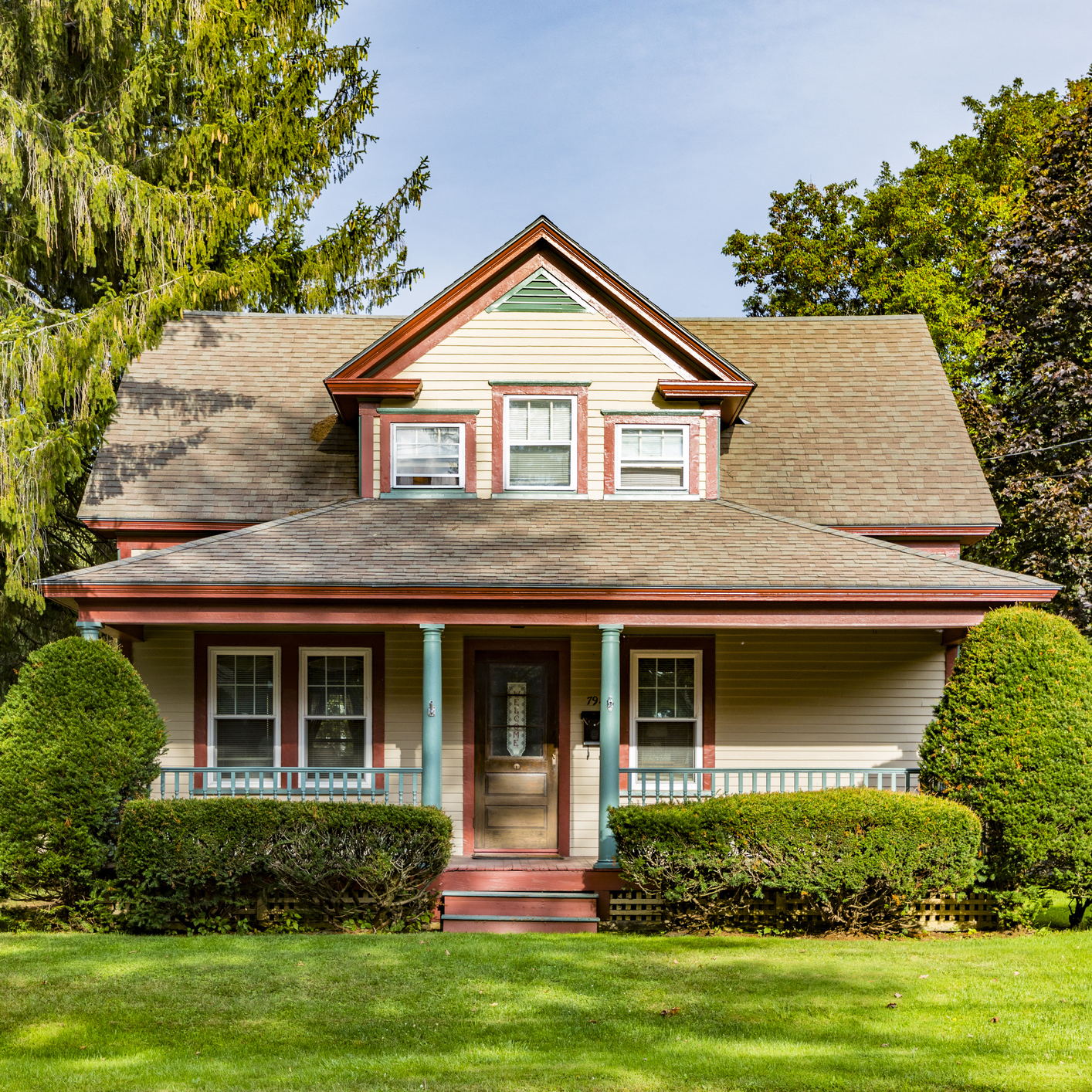
Published:
Last Updated:

While the U.S. housing market has largely recovered from the effects of the subprime mortgage crisis, homes are being built at barely half the rate they were in the early 2000s. The history of the U.S. housing market has been one marked by periods of rampant building and of lulls, even as the population has expanded relatively steadily.
U.S. housing starts in February 2018 clocked in at a seasonally-adjusted annual rate of 1.2 million. The 2017 rate is less than half the 2.5 million housing starts in 1974 — a time when there 100 million fewer people living in the country.
The American housing market has not only been through substantial fluctuations in the number of housing units built, but also by changes in the size of homes. Changing family size, rising incomes, and suburban expansion have all led to changes in the size of the typical single-family home.
To determine how the size of homes has changed over the past century, 24/7 Wall St. determined the size of a newly constructed single-family house between 1920 and 2016 by reviewing official U.S. Census figures and providing our own estimates for years the Census did not release numbers.
Click here to see the size of a home the year you were born.
Click here to see our detailed findings and methodology.
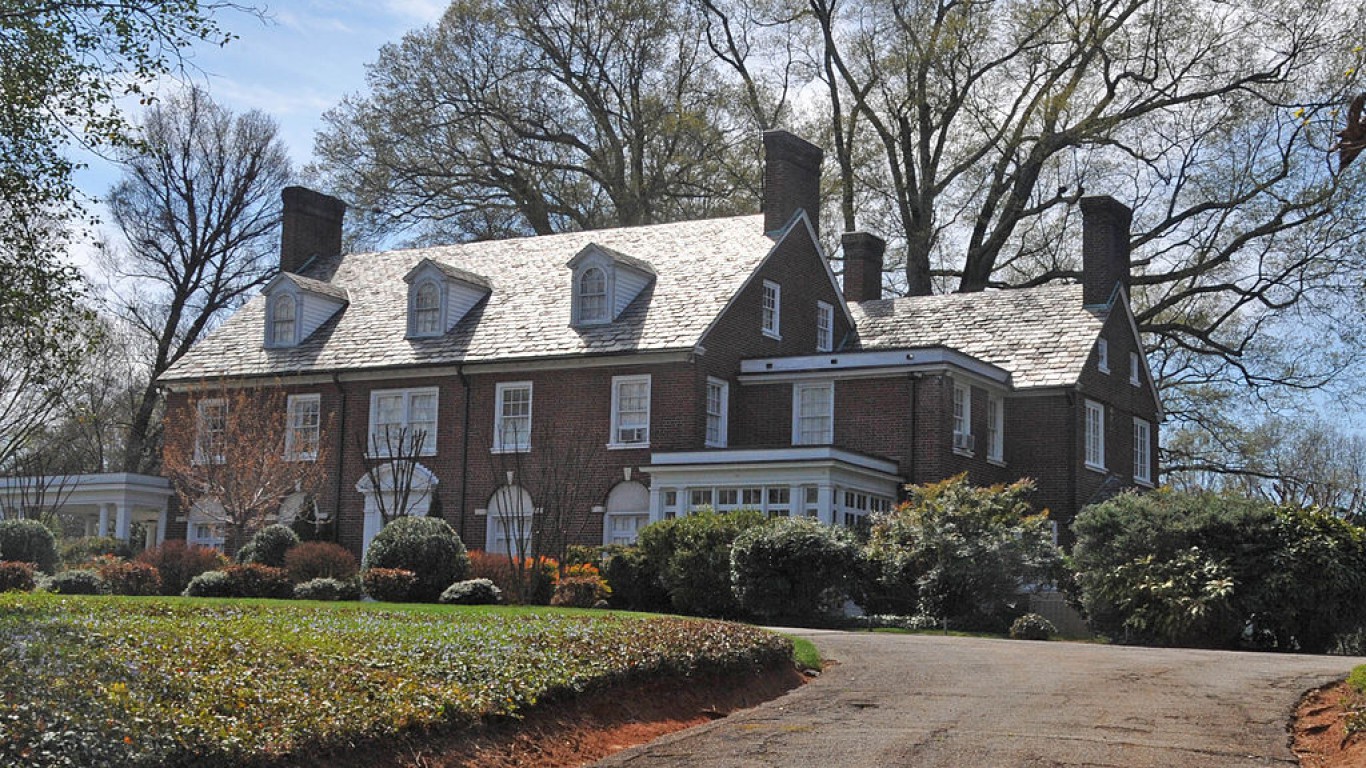
1920
Avg. floor area of a new single-family home: 1,048 sq. ft.
Avg. floor area per person: 242 sq. ft.
New homes started: 247,000
GDP per capita (inflation adjusted): $10,164
[in-text-ad]
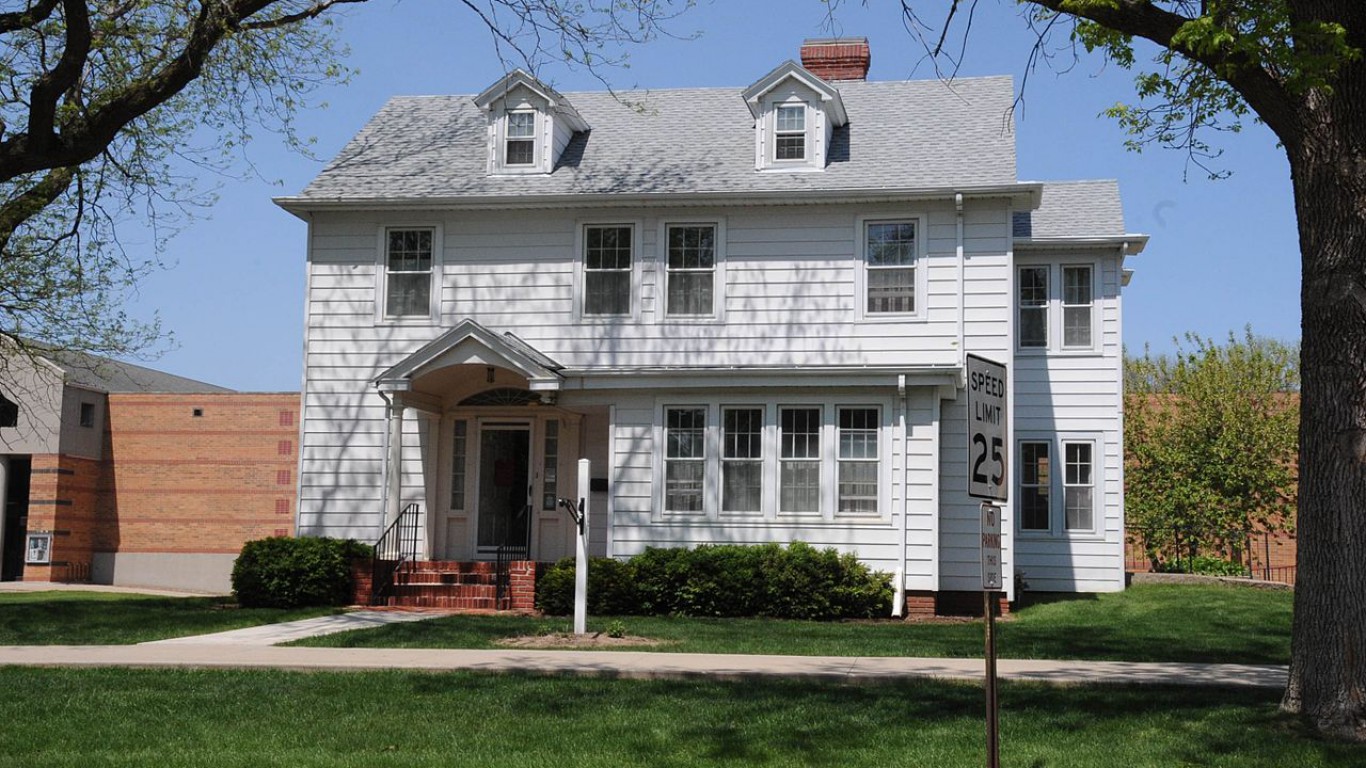
1921
Avg. floor area of a new single-family home: 1,011 sq. ft.
Avg. floor area per person: 233 sq. ft.
New homes started: 449,000
GDP per capita (inflation adjusted): $9,743
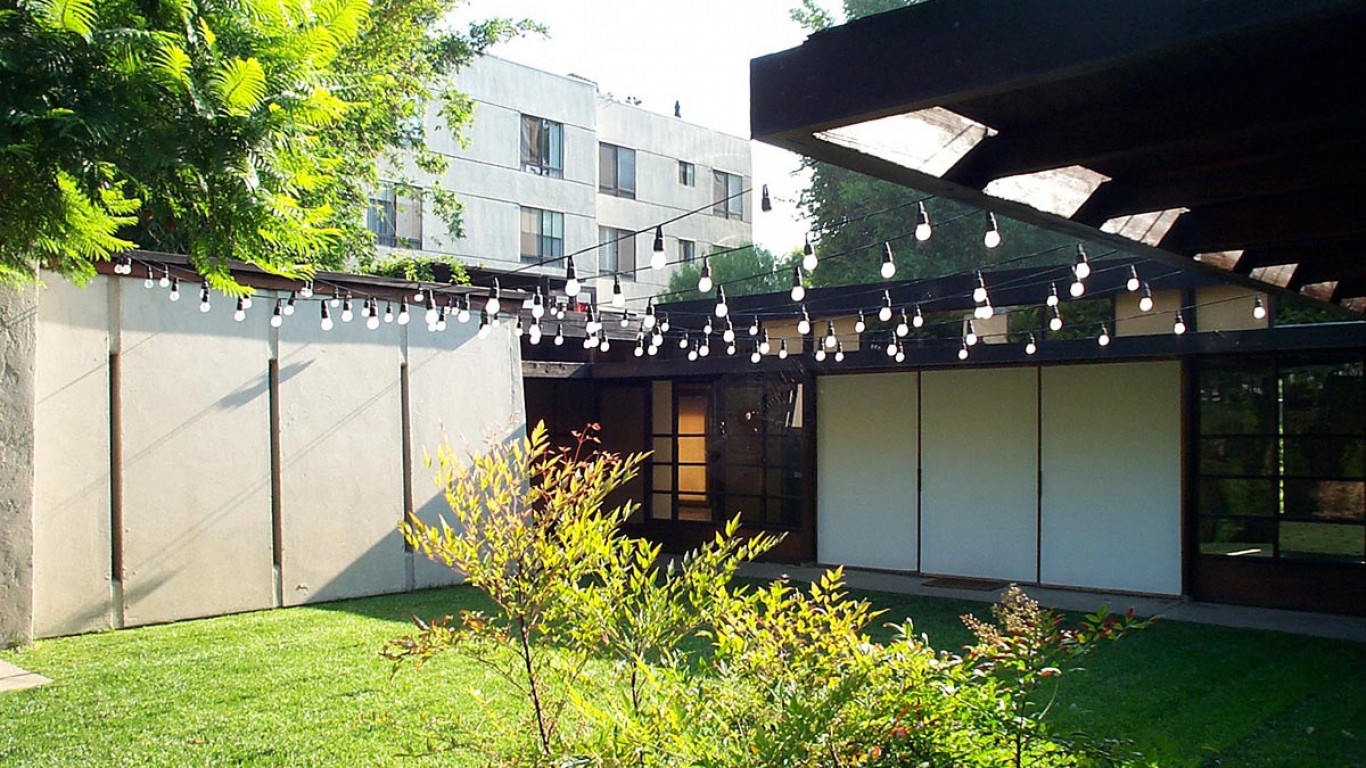
1922
Avg. floor area of a new single-family home: 818 sq. ft.
Avg. floor area per person: 188 sq. ft.
New homes started: 716,000
GDP per capita (inflation adjusted): $10,141
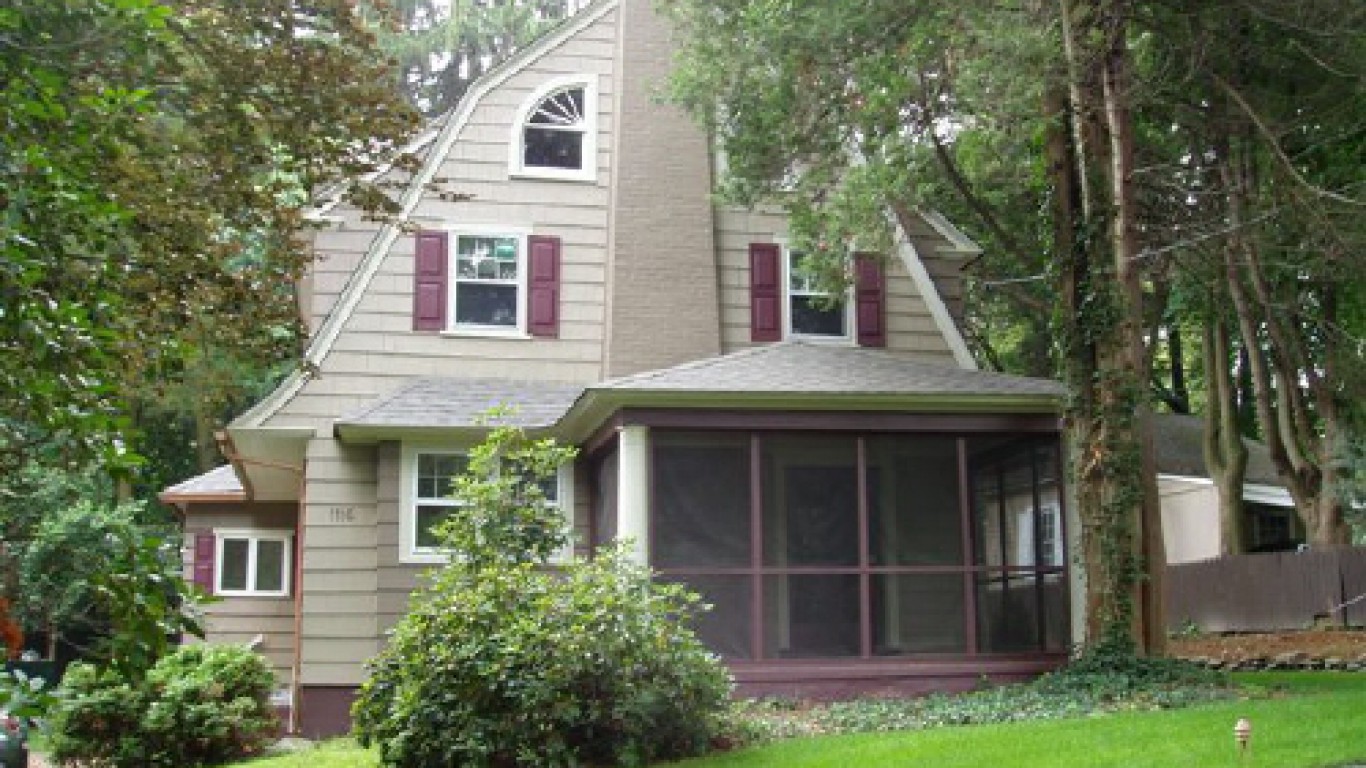
1923
Avg. floor area of a new single-family home: 742 sq. ft.
Avg. floor area per person: 171 sq. ft.
New homes started: 871,000
GDP per capita (inflation adjusted): $11,284
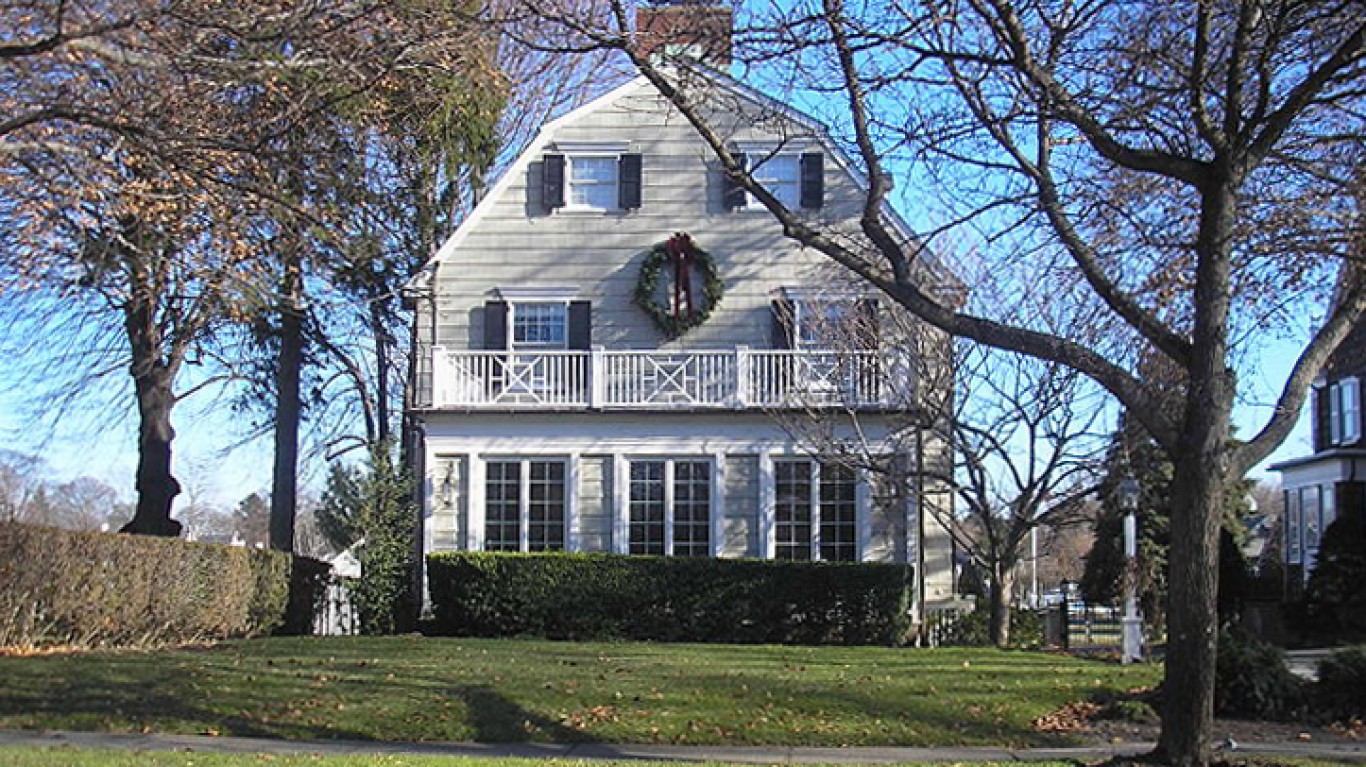
1924
Avg. floor area of a new single-family home: 777 sq. ft.
Avg. floor area per person: 179 sq. ft.
New homes started: 893,000
GDP per capita (inflation adjusted): $11,409
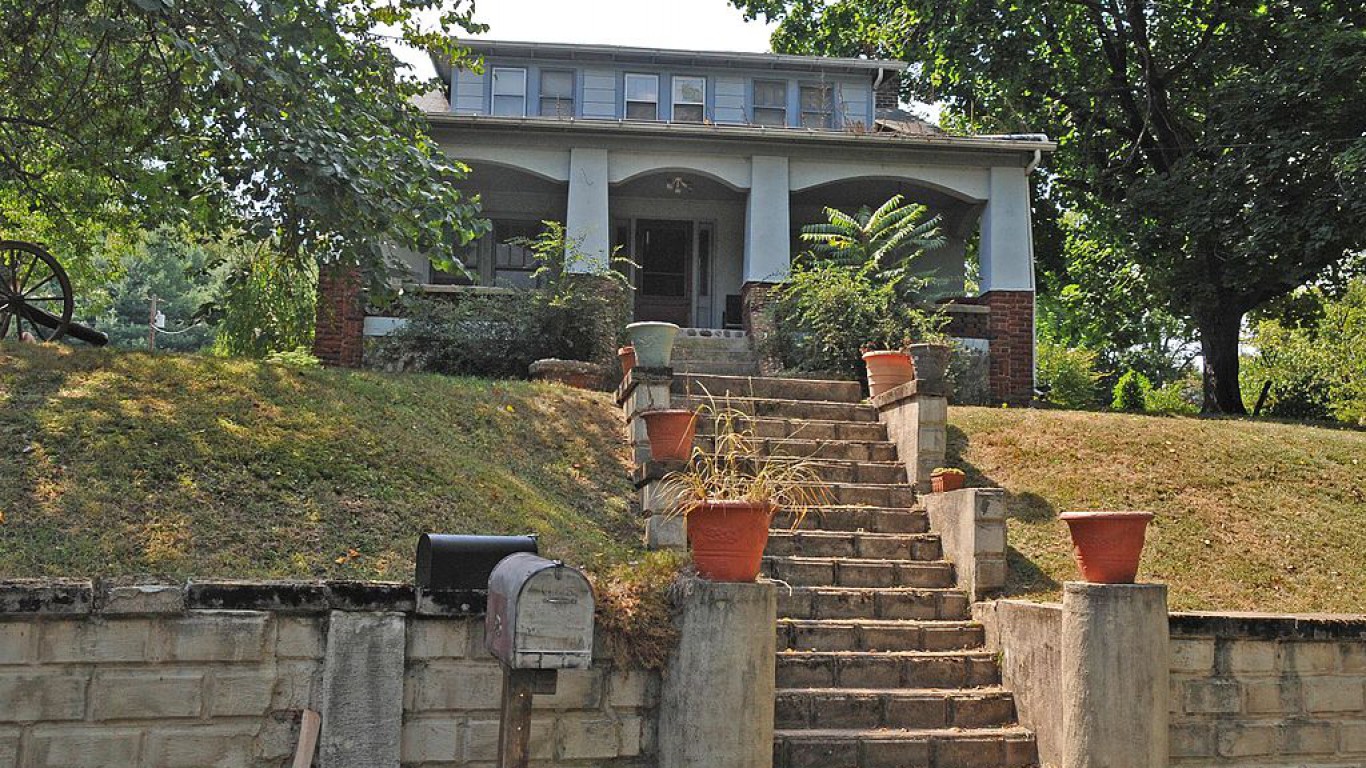
1925
Avg. floor area of a new single-family home: 967 sq. ft.
Avg. floor area per person: 223 sq. ft.
New homes started: 937,000
GDP per capita (inflation adjusted): $11,500
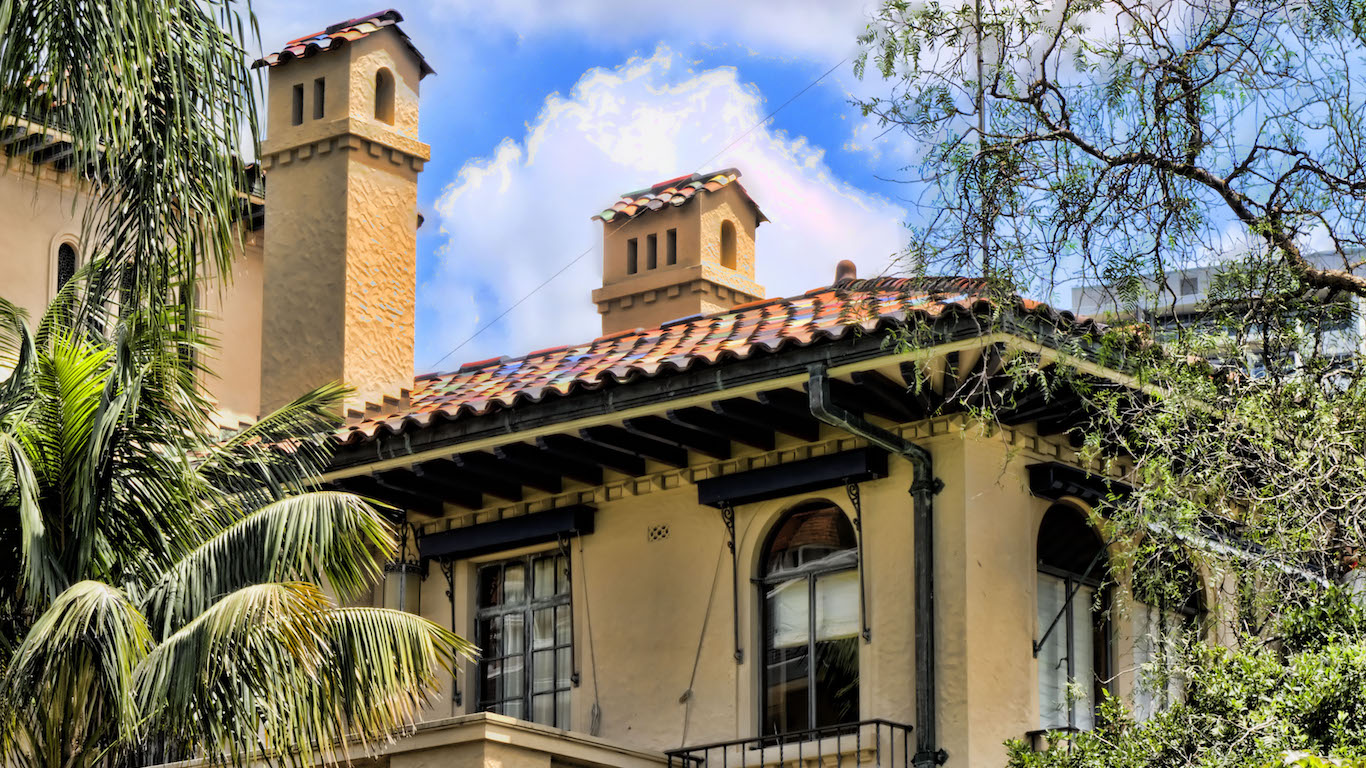
1926
Avg. floor area of a new single-family home: 994 sq. ft.
Avg. floor area per person: 229 sq. ft.
New homes started: 849,000
GDP per capita (inflation adjusted): $12,086
[in-text-ad-2]
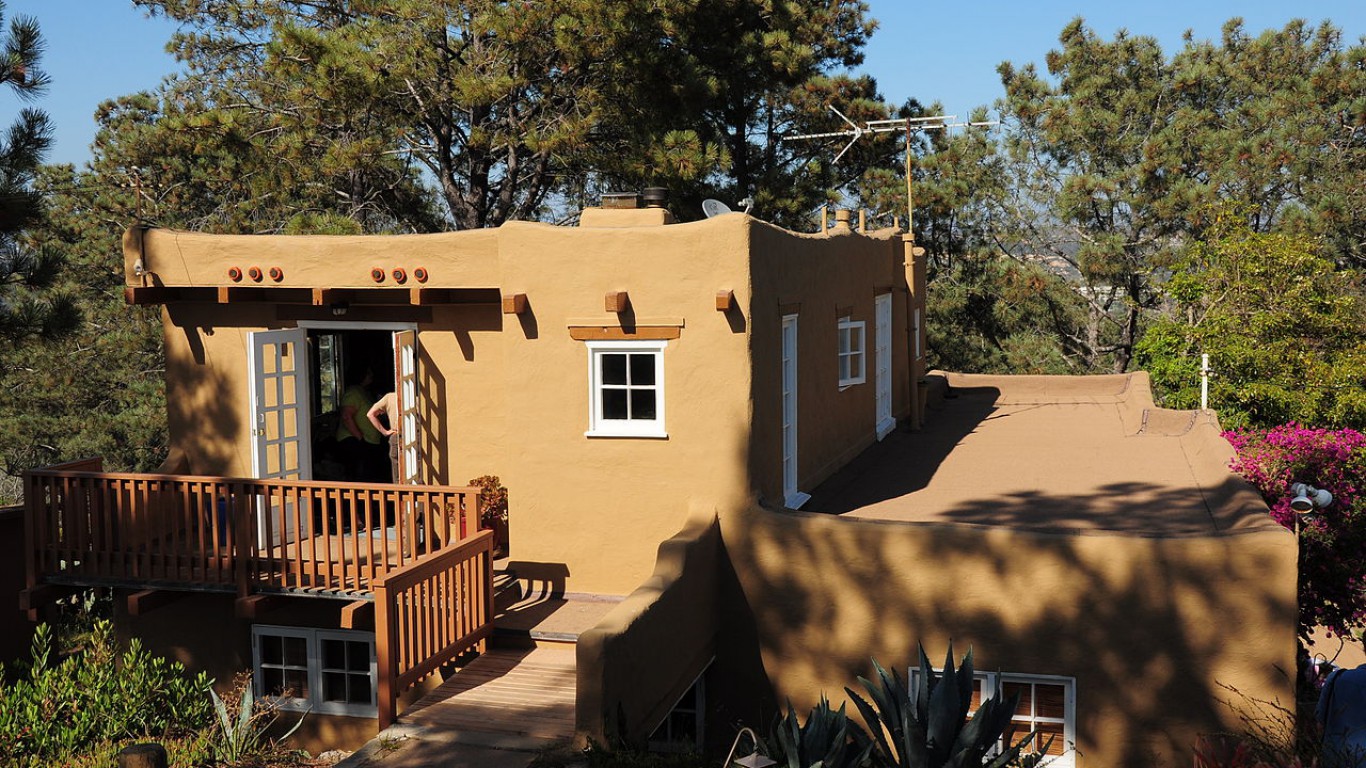
1927
Avg. floor area of a new single-family home: 989 sq. ft.
Avg. floor area per person: 228 sq. ft.
New homes started: 810,000
GDP per capita (inflation adjusted): $12,038
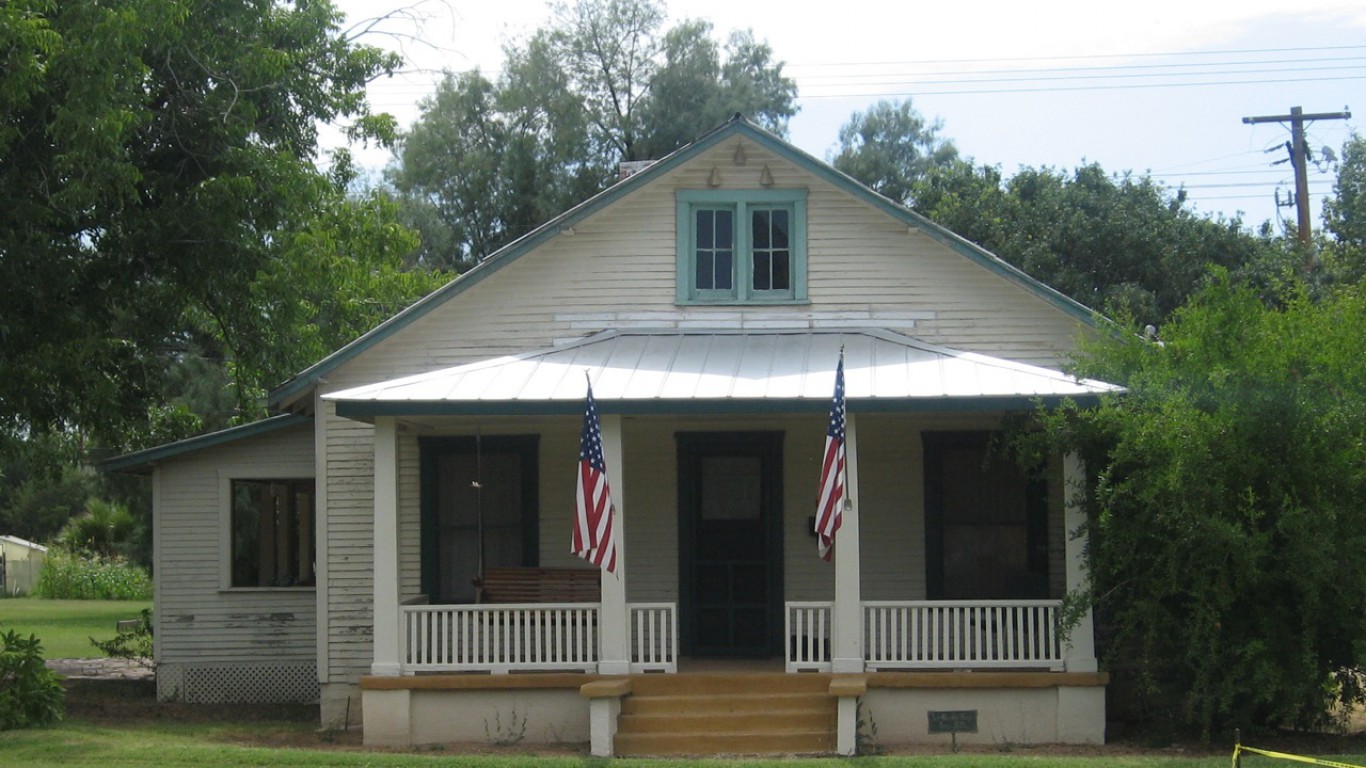
1928
Avg. floor area of a new single-family home: 1,222 sq. ft.
Avg. floor area per person: 282 sq. ft.
New homes started: 753,000
GDP per capita (inflation adjusted): $12,025
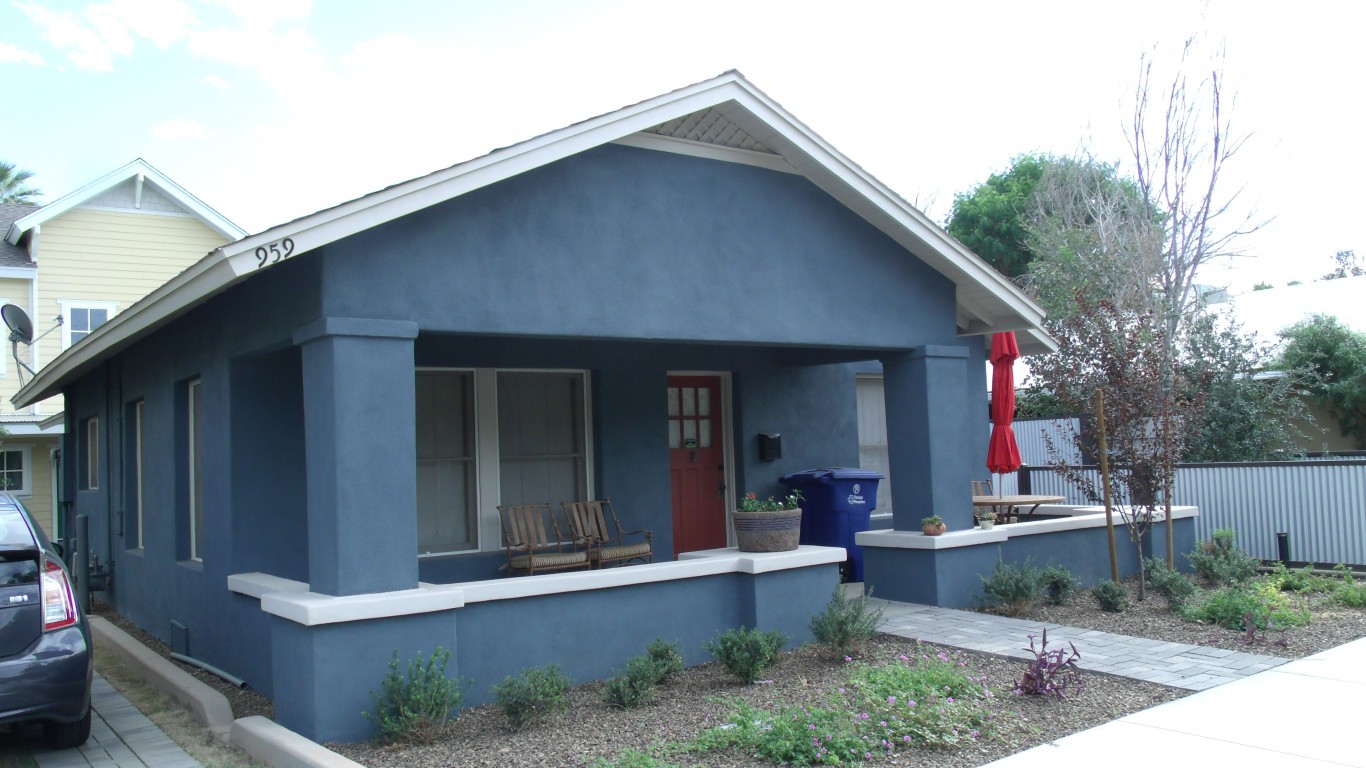
1929
Avg. floor area of a new single-family home: 1,233 sq. ft.
Avg. floor area per person: 284 sq. ft.
New homes started: 509,000
GDP per capita (inflation adjusted): $9,668
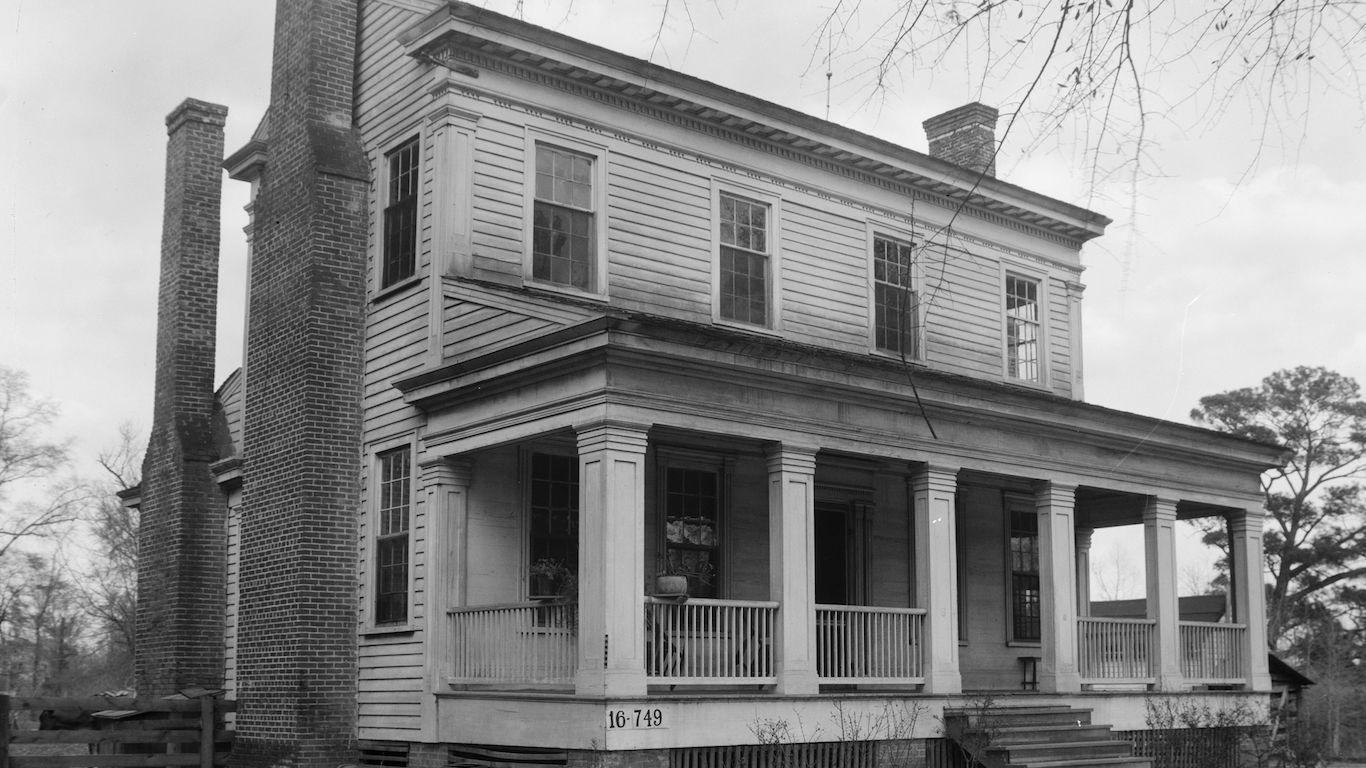
1930
Avg. floor area of a new single-family home: 1,129 sq. ft.
Avg. floor area per person: 275 sq. ft.
New homes started: 330,000
GDP per capita (inflation adjusted): $7,847
[in-text-ad]
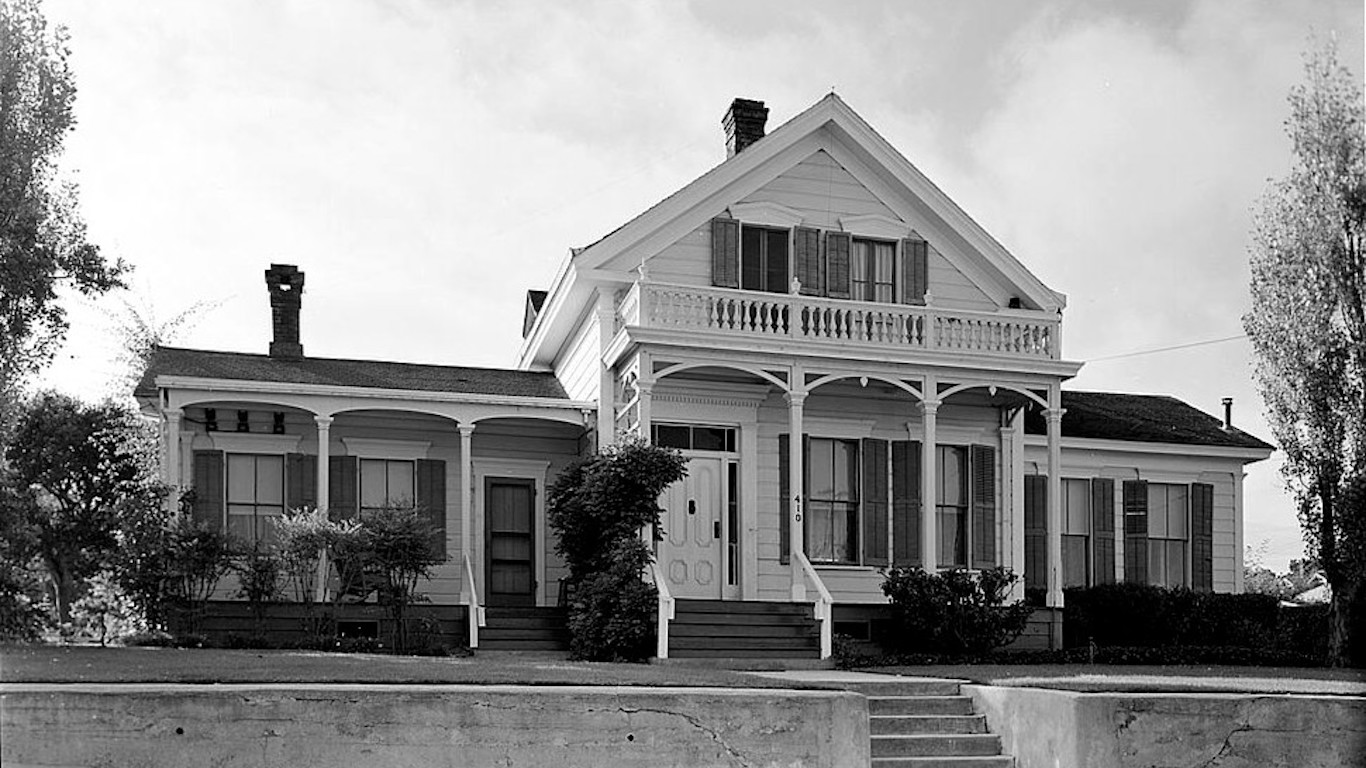
1931
Avg. floor area of a new single-family home: 1,213 sq. ft.
Avg. floor area per person: 295 sq. ft.
New homes started: 254,000
GDP per capita (inflation adjusted): $7,288
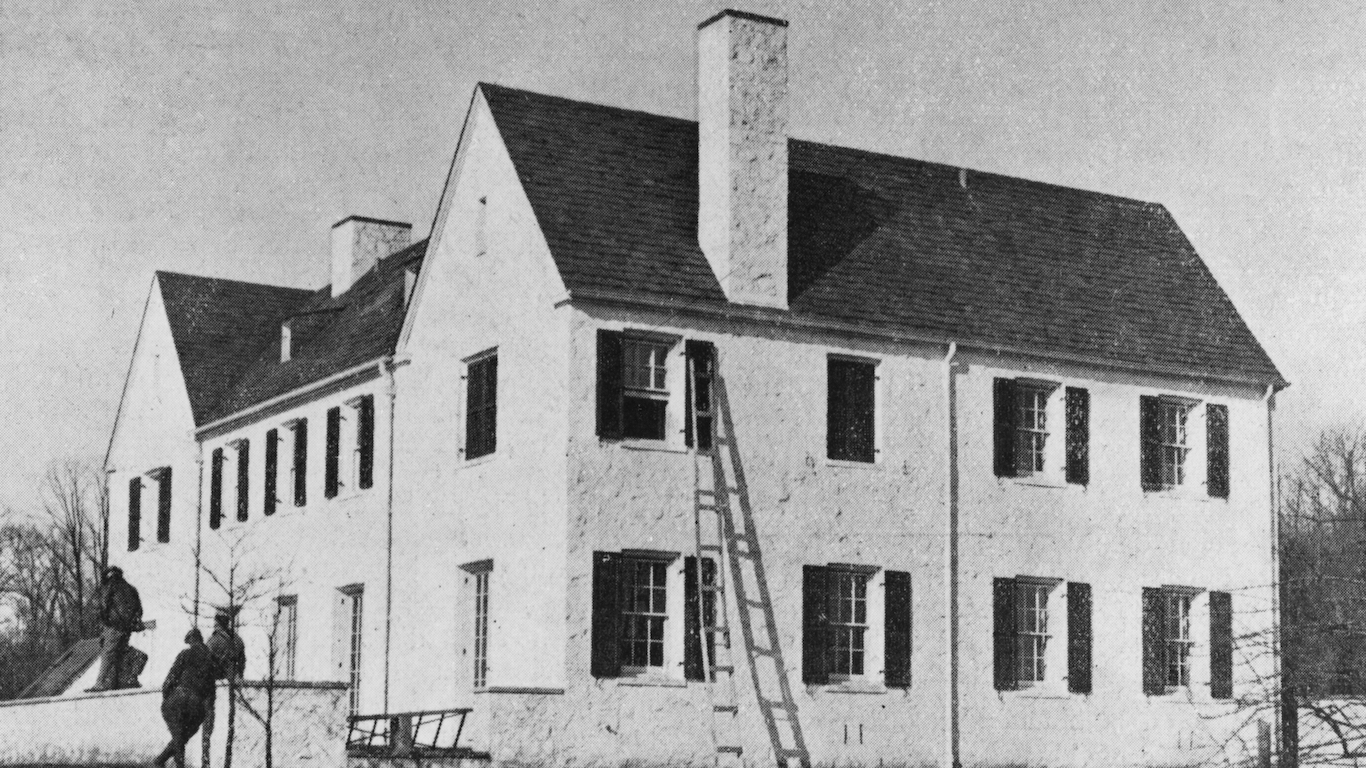
1932
Avg. floor area of a new single-family home: 889 sq. ft.
Avg. floor area per person: 216 sq. ft.
New homes started: 134,000
GDP per capita (inflation adjusted): $6,308
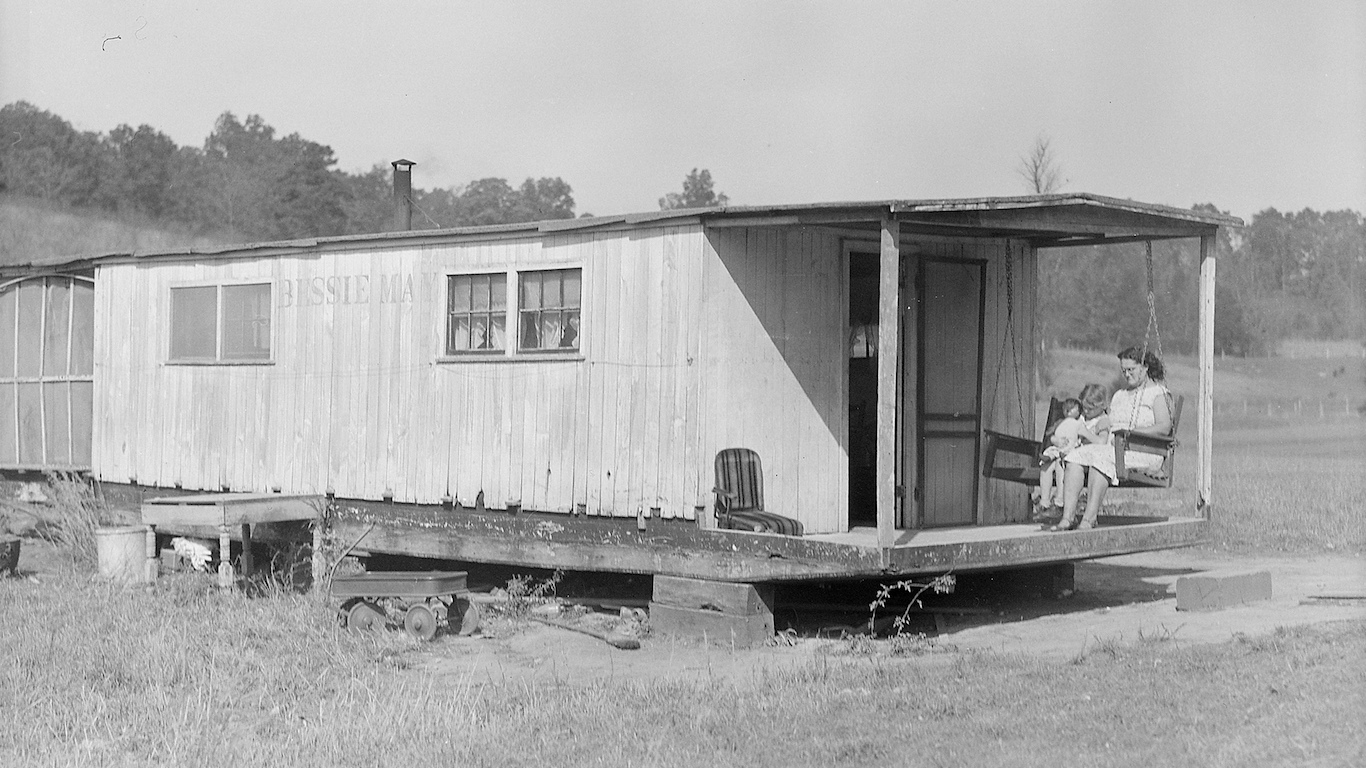
1933
Avg. floor area of a new single-family home: 1,267 sq. ft.
Avg. floor area per person: 308 sq. ft.
New homes started: 93,000
GDP per capita (inflation adjusted): $6,192
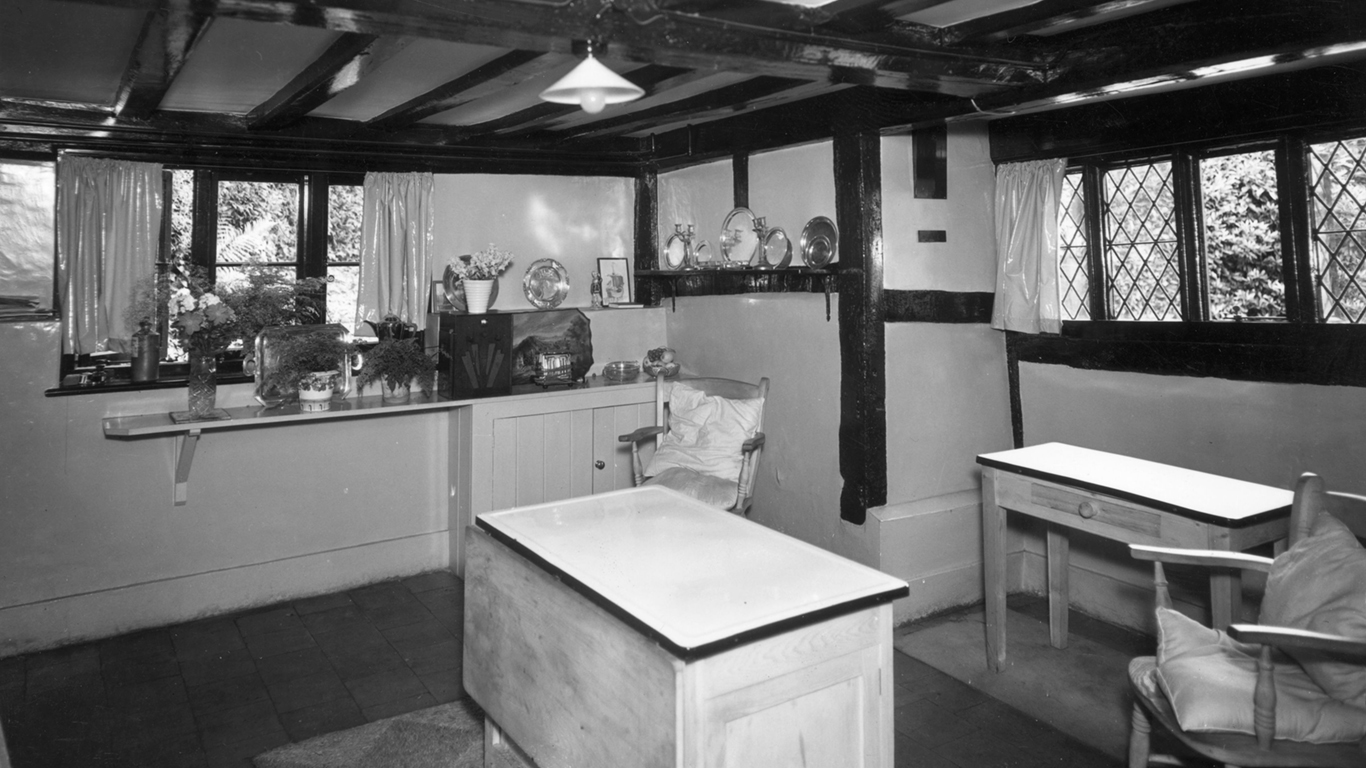
1934
Avg. floor area of a new single-family home: 826 sq. ft.
Avg. floor area per person: 201 sq. ft.
New homes started: 126,000
GDP per capita (inflation adjusted): $6,817
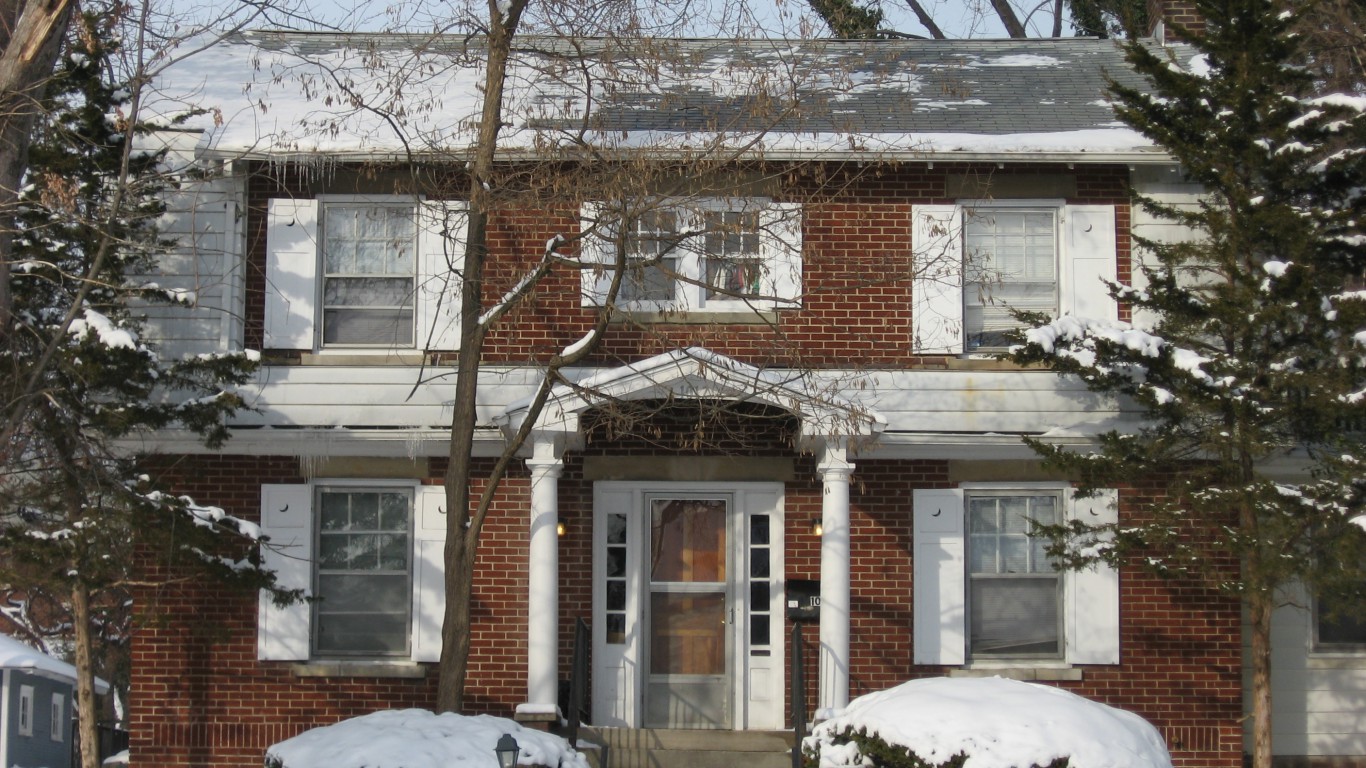
1935
Avg. floor area of a new single-family home: 992 sq. ft.
Avg. floor area per person: 241 sq. ft.
New homes started: 221,000
GDP per capita (inflation adjusted): $7,373
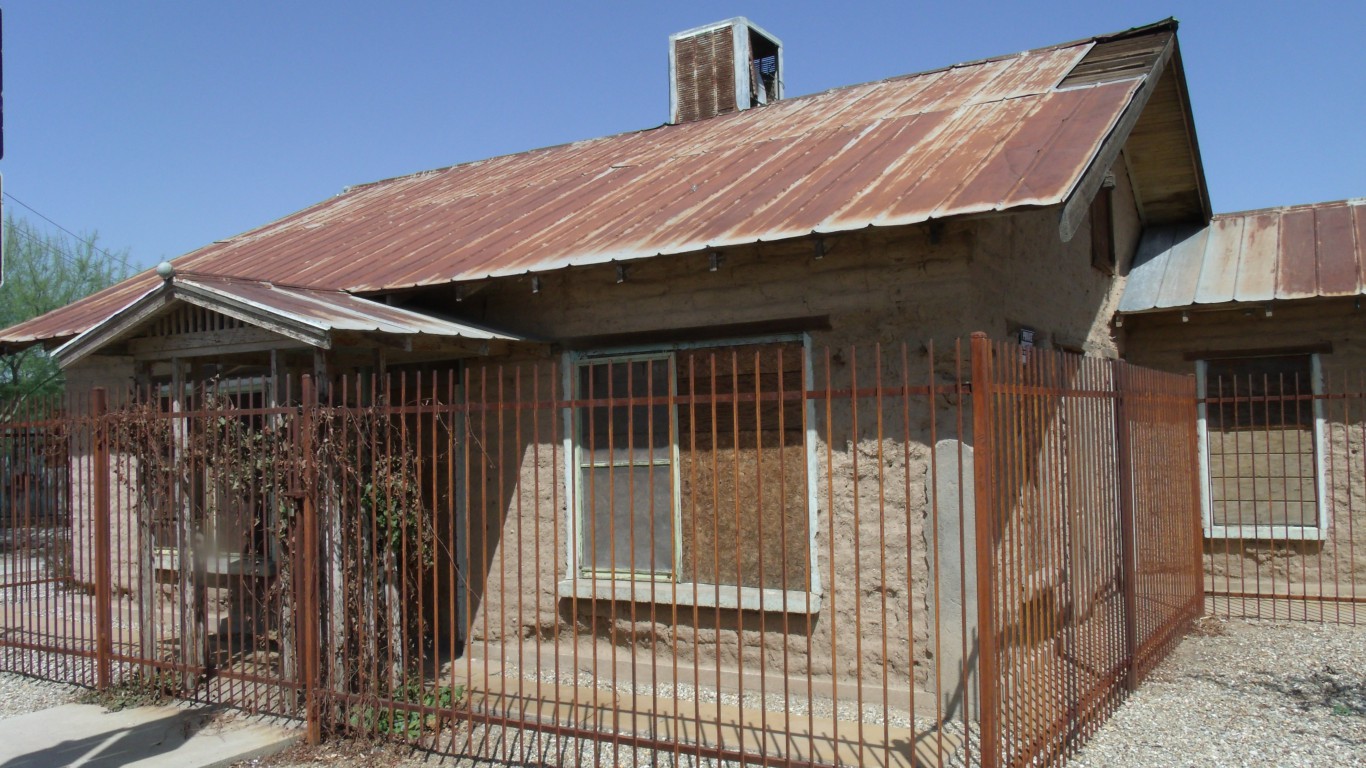
1936
Avg. floor area of a new single-family home: 1,129 sq. ft.
Avg. floor area per person: 275 sq. ft.
New homes started: 319,000
GDP per capita (inflation adjusted): $8,273
[in-text-ad-2]
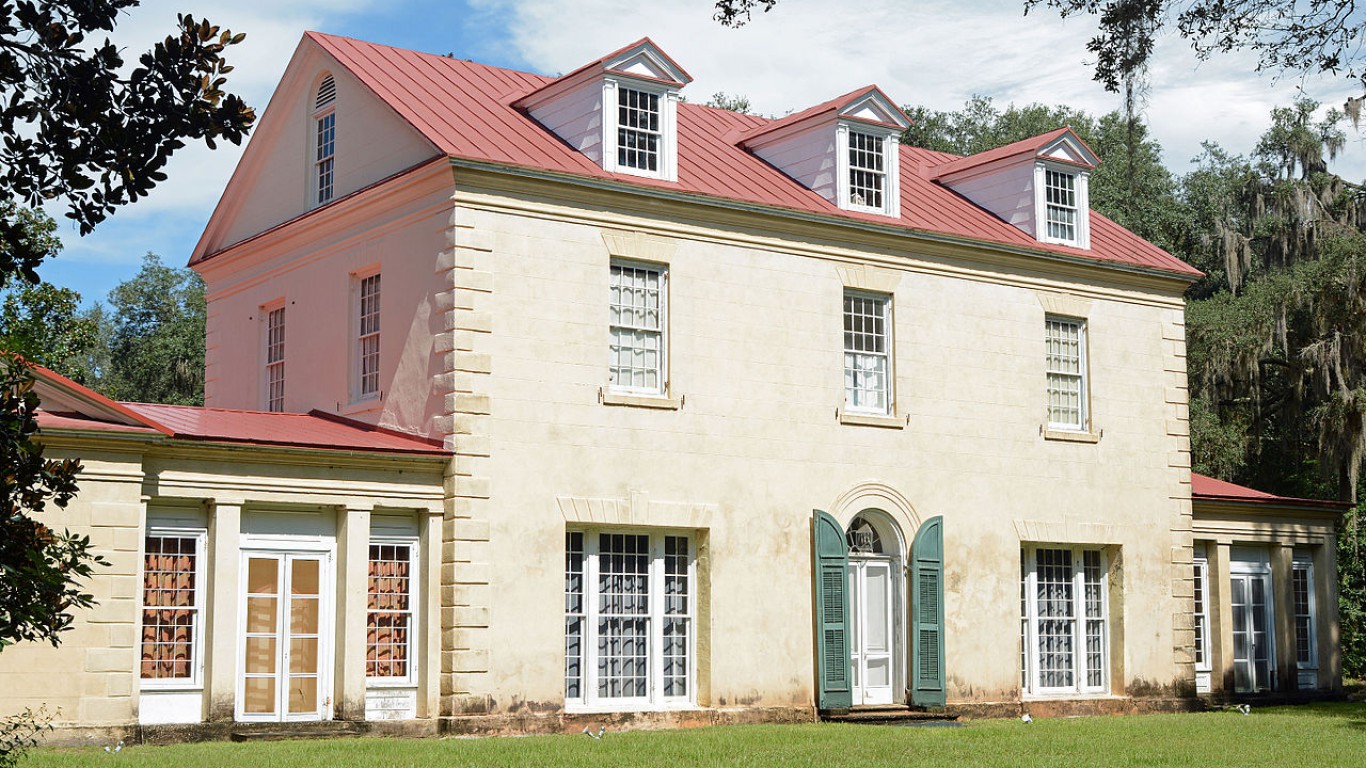
1937
Avg. floor area of a new single-family home: 1,135 sq. ft.
Avg. floor area per person: 276 sq. ft.
New homes started: 336,000
GDP per capita (inflation adjusted): $8,643
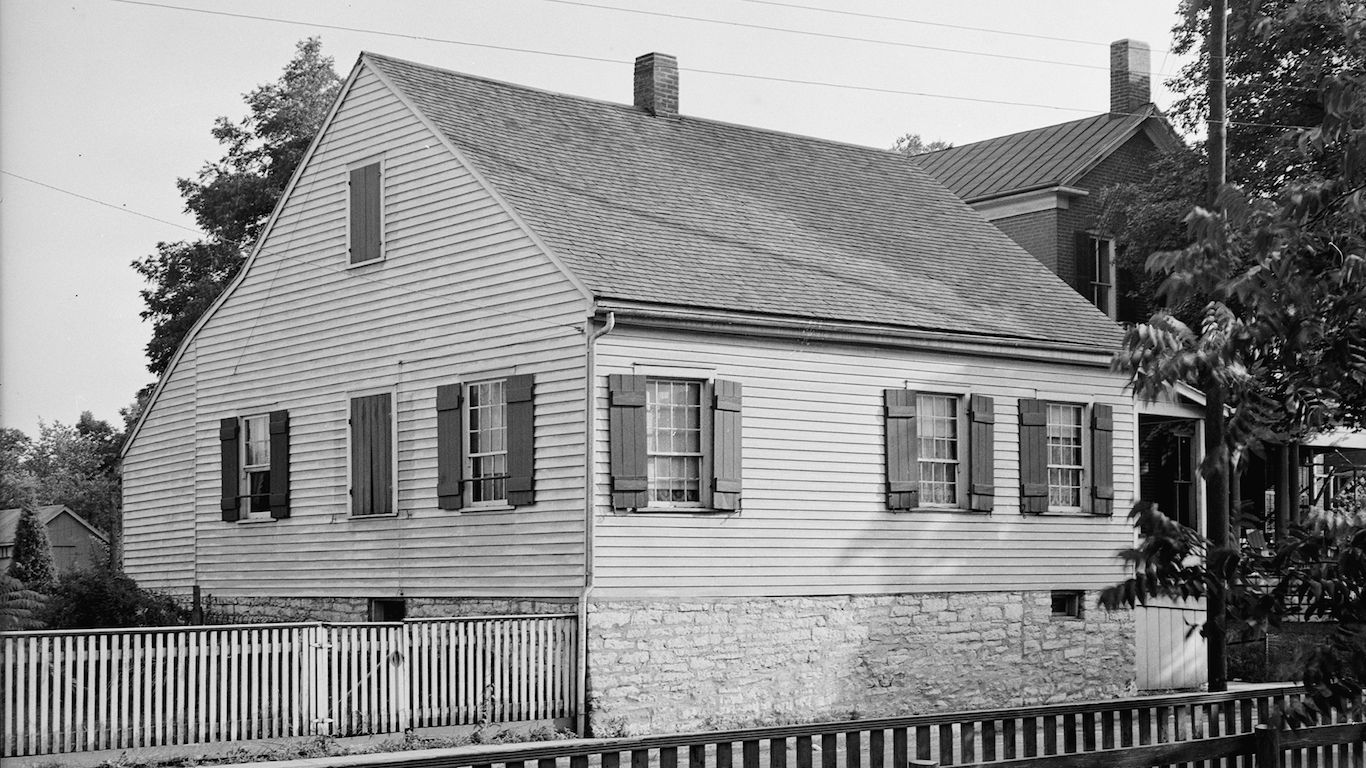
1938
Avg. floor area of a new single-family home: 959 sq. ft.
Avg. floor area per person: 233 sq. ft.
New homes started: 406,000
GDP per capita (inflation adjusted): $8,292
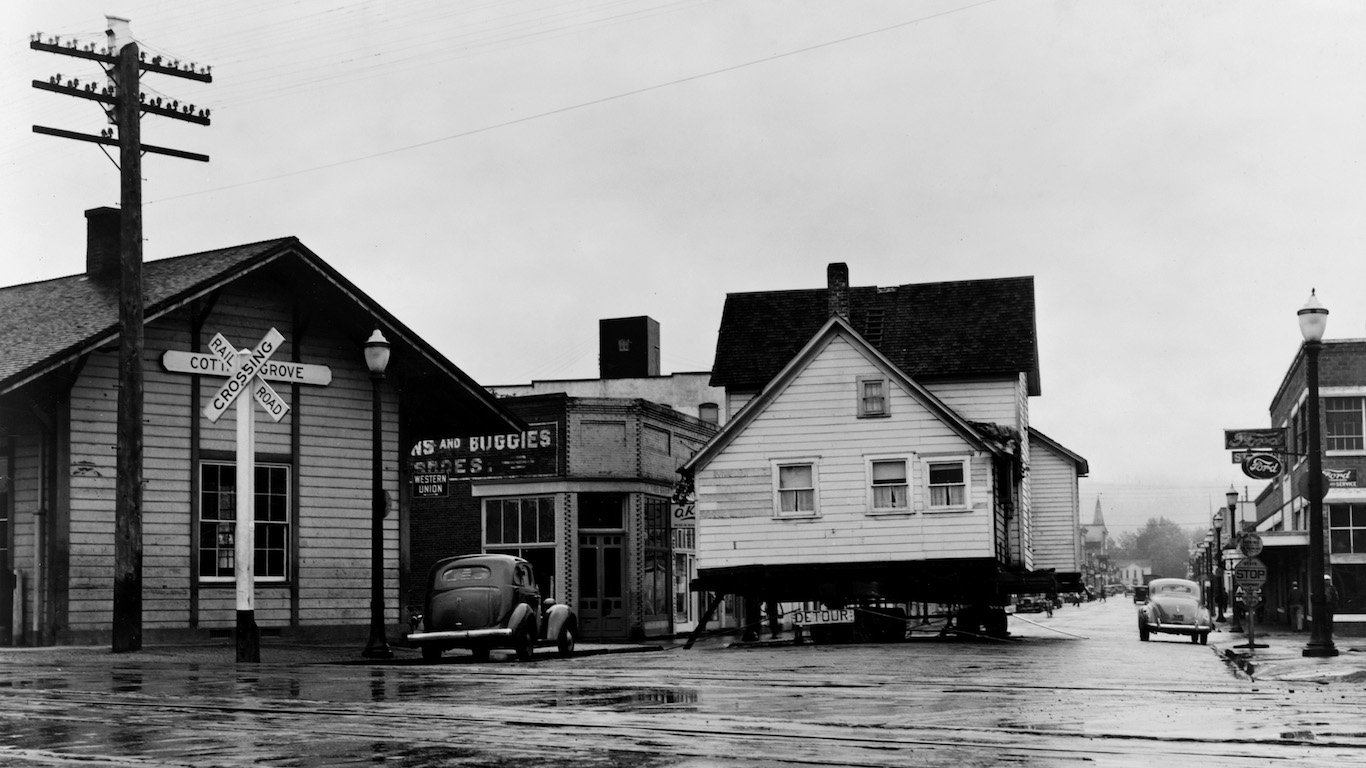
1939
Avg. floor area of a new single-family home: 1,046 sq. ft.
Avg. floor area per person: 254 sq. ft.
New homes started: 515,000
GDP per capita (inflation adjusted): $8,881
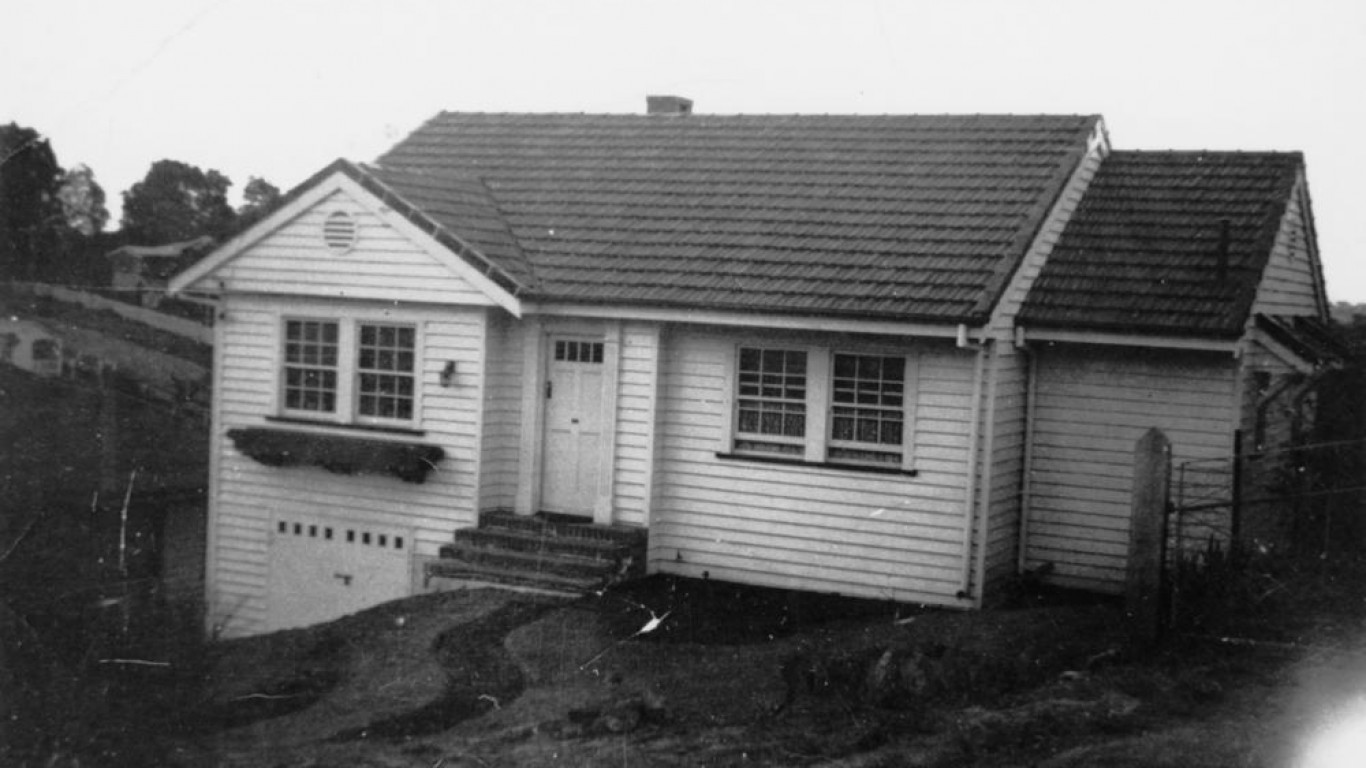
1940
Avg. floor area of a new single-family home: 1,177 sq. ft.
Avg. floor area per person: 321 sq. ft.
New homes started: 603,000
GDP per capita (inflation adjusted): $9,583
[in-text-ad]
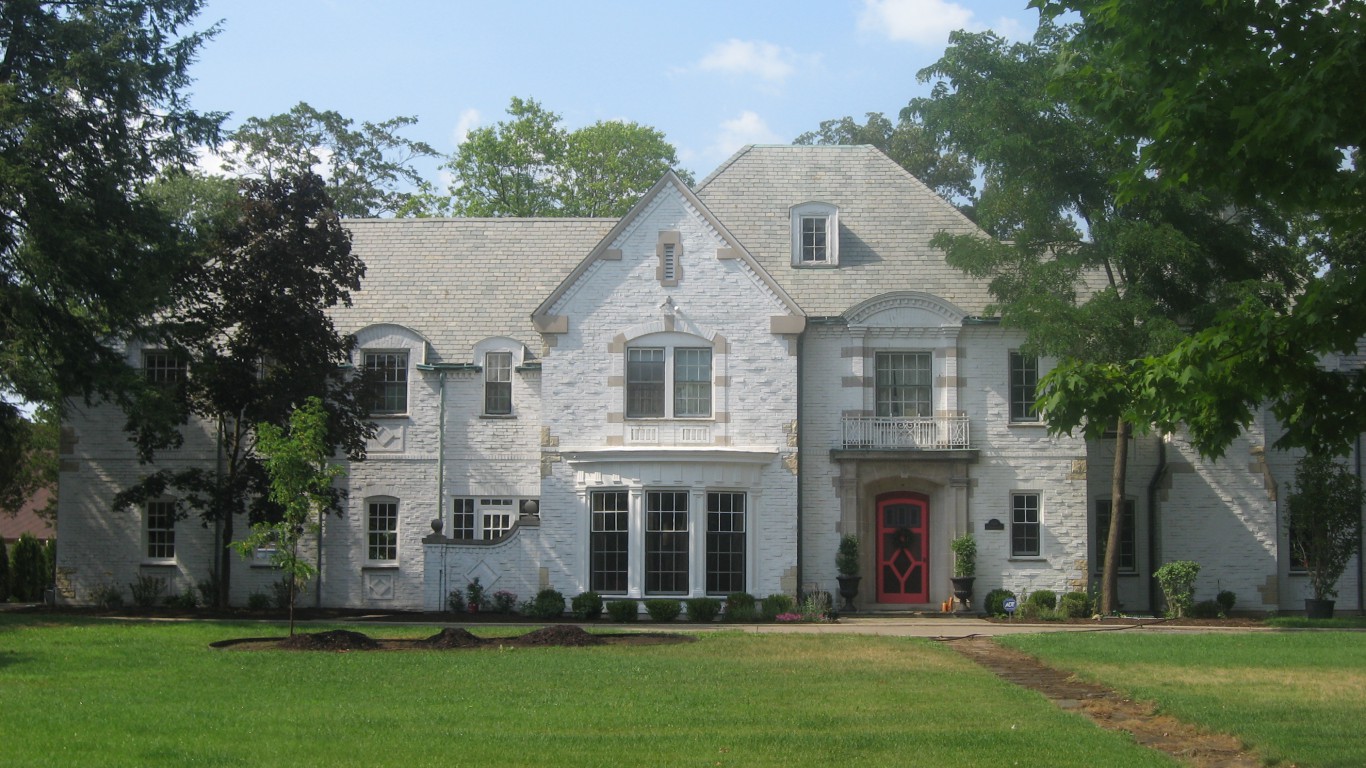
1941
Avg. floor area of a new single-family home: 1,153 sq. ft.
Avg. floor area per person: 314 sq. ft.
New homes started: 706,000
GDP per capita (inflation adjusted): $11,171
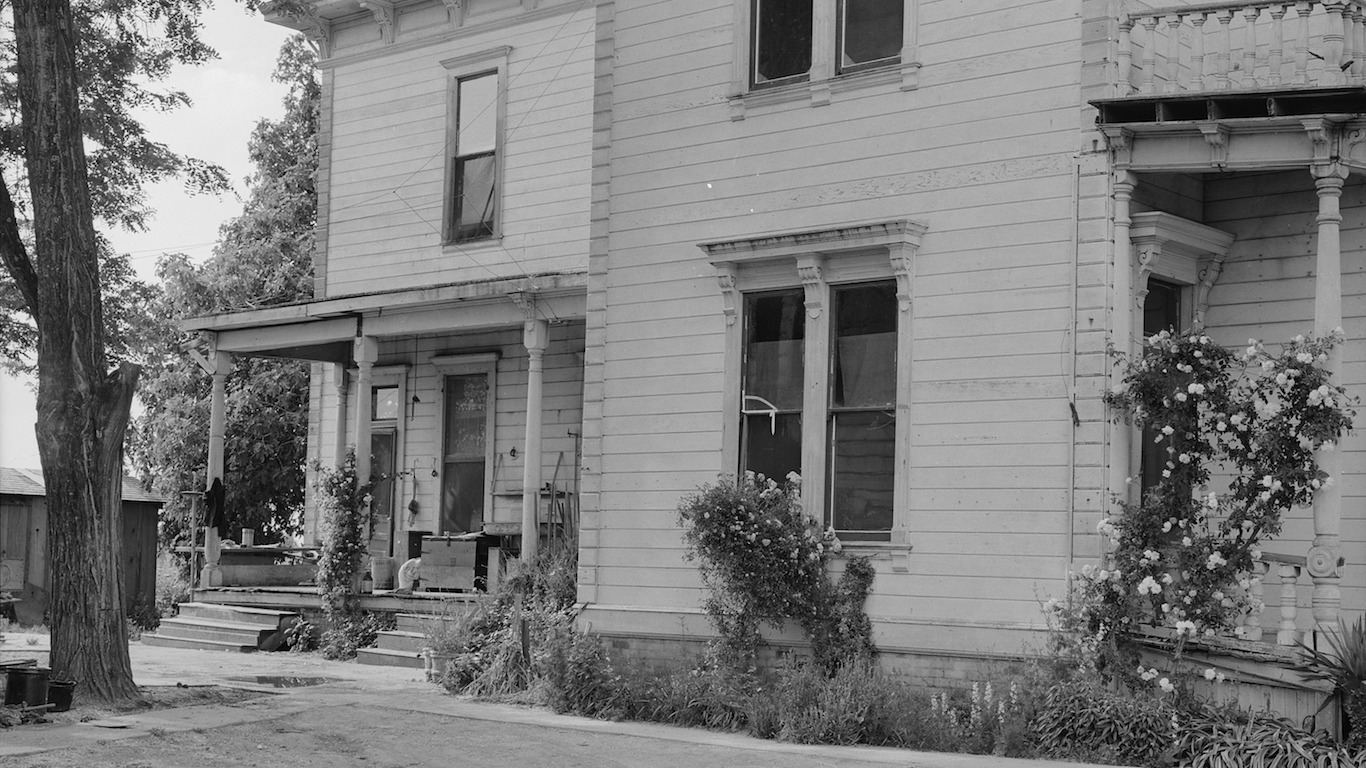
1942
Avg. floor area of a new single-family home: 2,044 sq. ft.
Avg. floor area per person: 557 sq. ft.
New homes started: 356,000
GDP per capita (inflation adjusted): $13,138
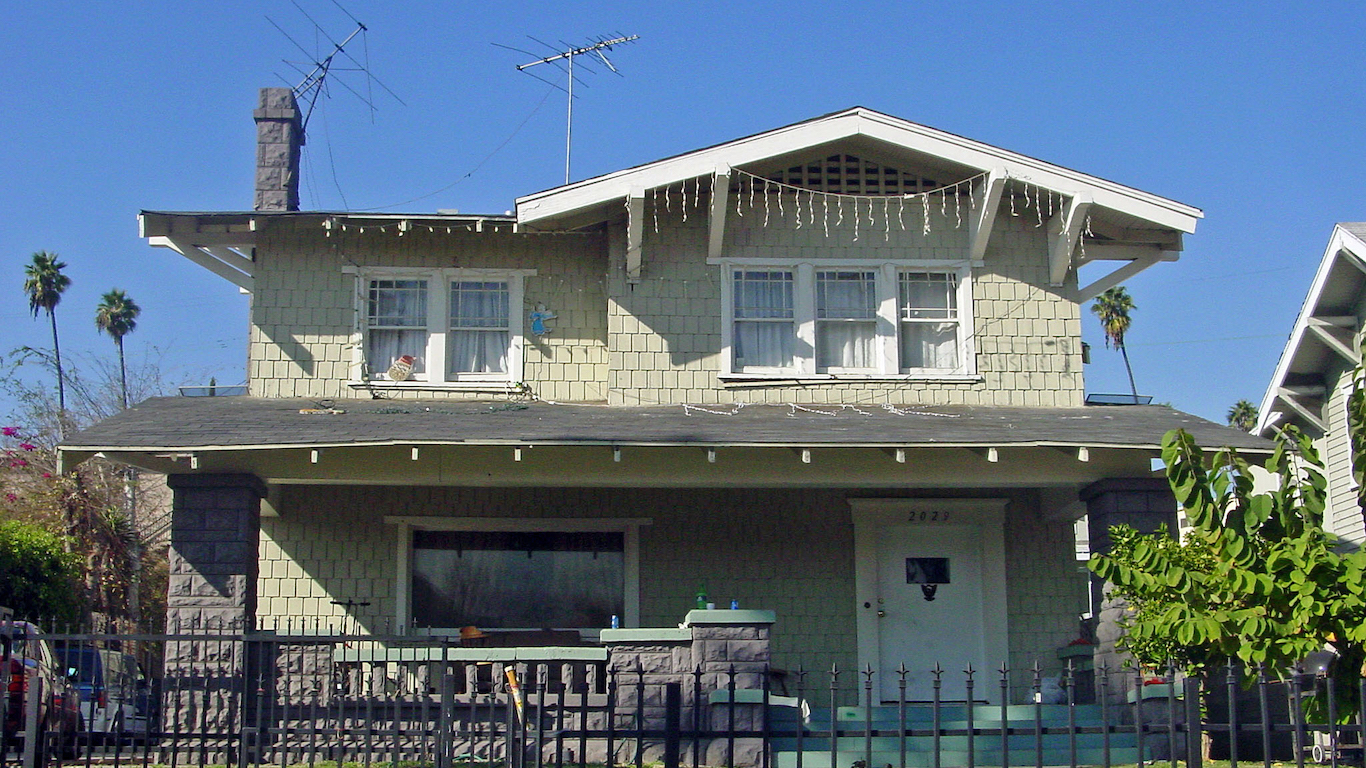
1943
Avg. floor area of a new single-family home: 1,692 sq. ft.
Avg. floor area per person: 461 sq. ft.
New homes started: 191,000
GDP per capita (inflation adjusted): $15,166
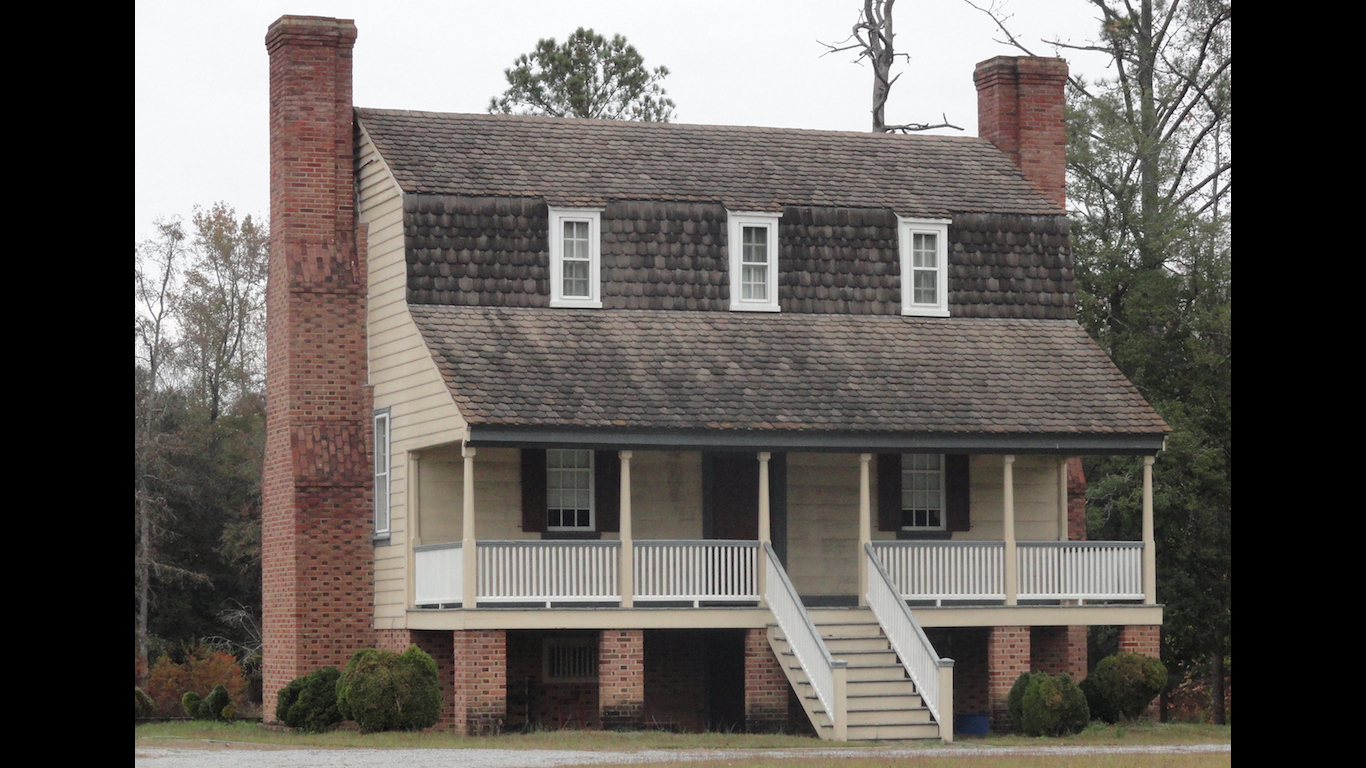
1944
Avg. floor area of a new single-family home: 837 sq. ft.
Avg. floor area per person: 228 sq. ft.
New homes started: 142,000
GDP per capita (inflation adjusted): $16,181
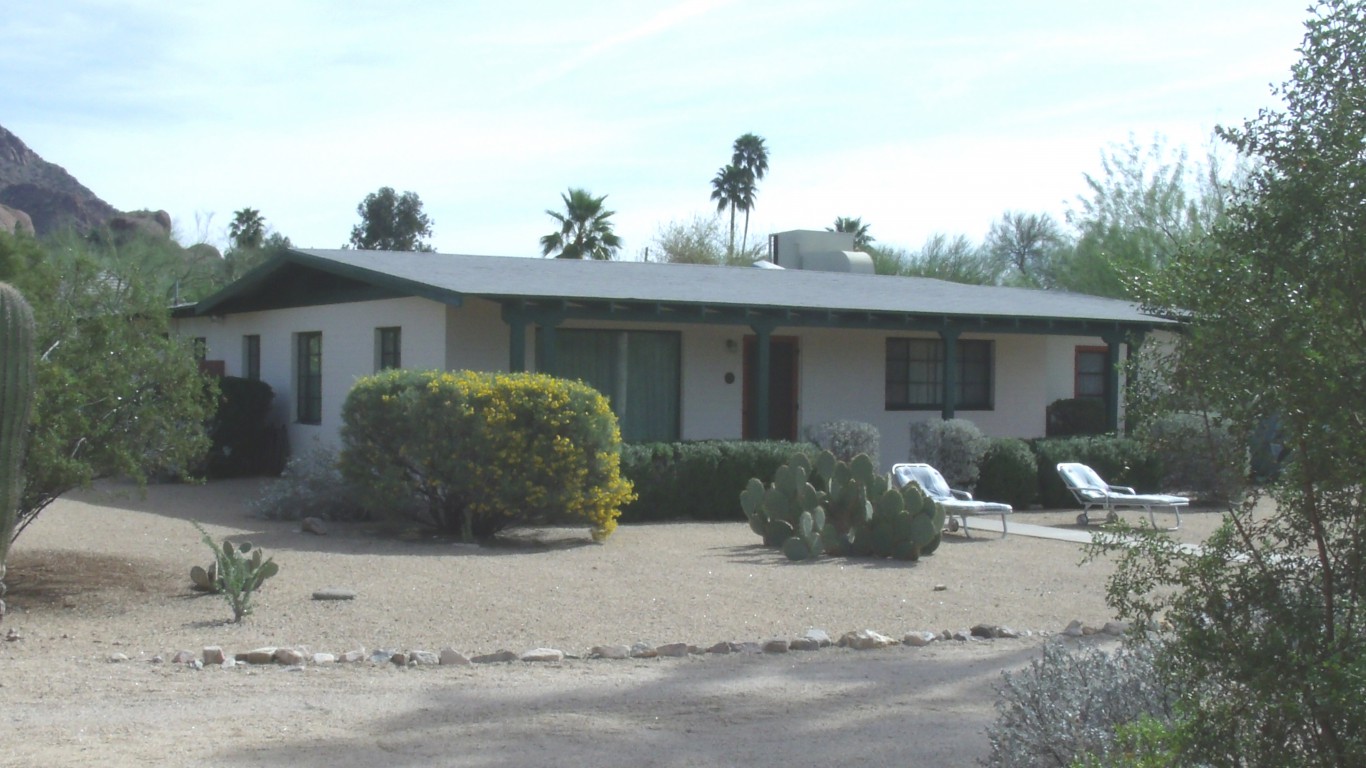
1945
Avg. floor area of a new single-family home: 797 sq. ft.
Avg. floor area per person: 217 sq. ft.
New homes started: 326,000
GDP per capita (inflation adjusted): $15,850
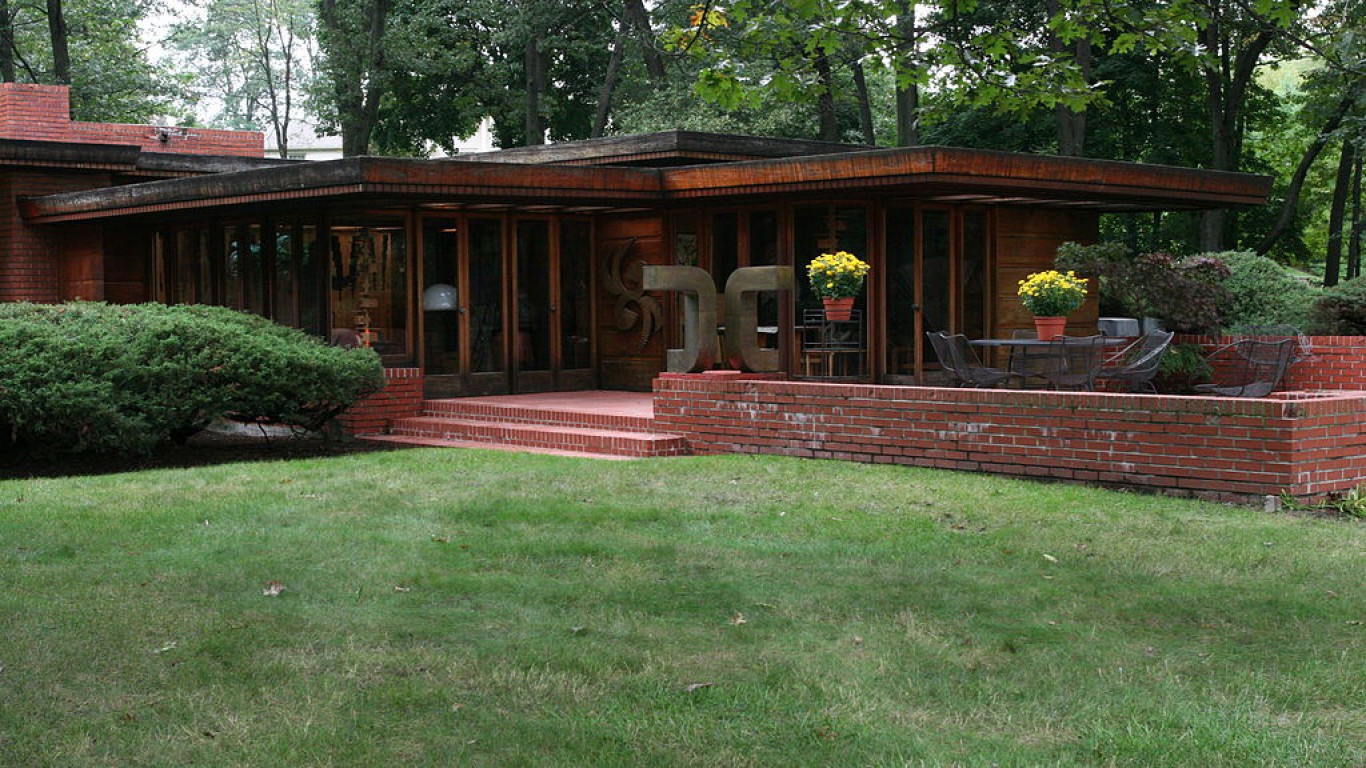
1946
Avg. floor area of a new single-family home: 817 sq. ft.
Avg. floor area per person: 223 sq. ft.
New homes started: 1,023,000
GDP per capita (inflation adjusted): $13,869
[in-text-ad-2]

1947
Avg. floor area of a new single-family home: 903 sq. ft.
Avg. floor area per person: 254 sq. ft.
New homes started: 1,268,000
GDP per capita (inflation adjusted): $13,457
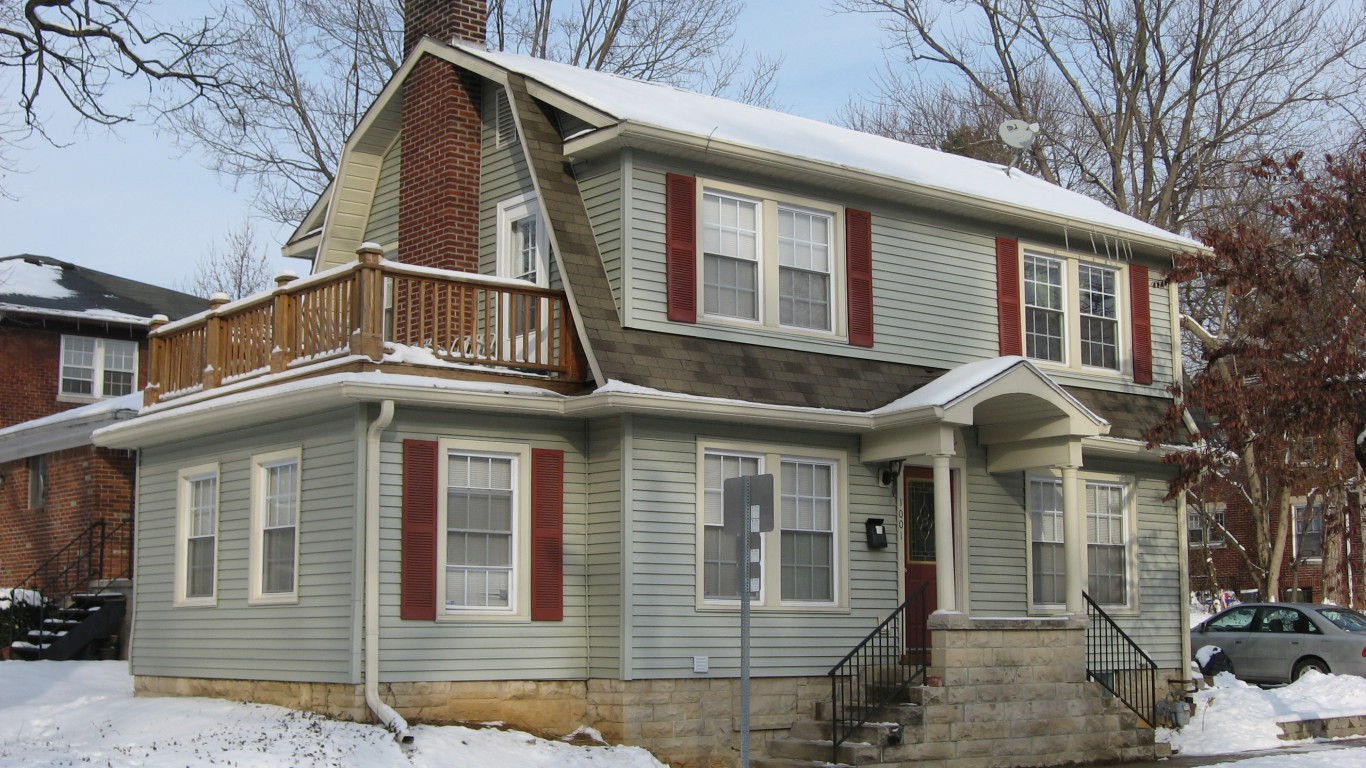
1948
Avg. floor area of a new single-family home: 800 sq. ft.
Avg. floor area per person: 229 sq. ft.
New homes started: 1,362,000
GDP per capita (inflation adjusted): $13,776
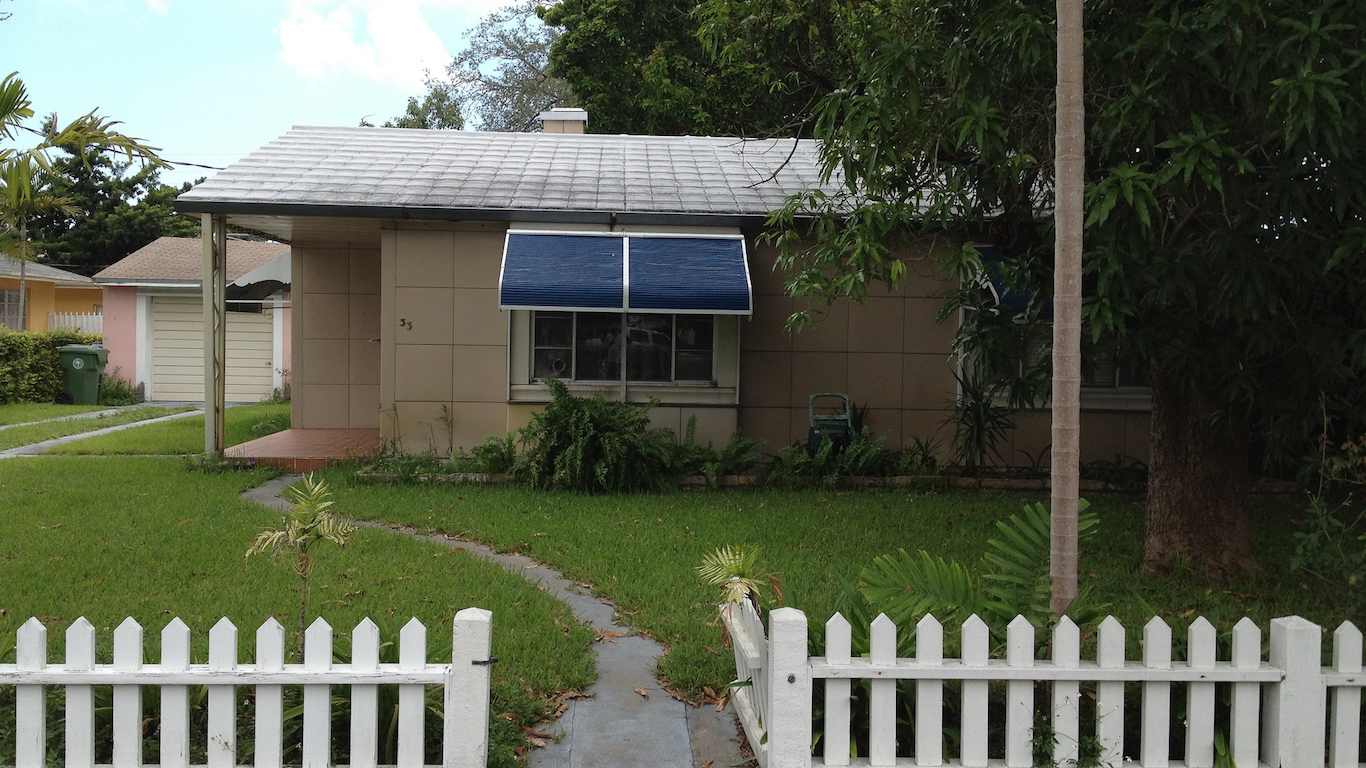
1949
Avg. floor area of a new single-family home: 767 sq. ft.
Avg. floor area per person: 224 sq. ft.
New homes started: 1,466,000
GDP per capita (inflation adjusted): $13,466
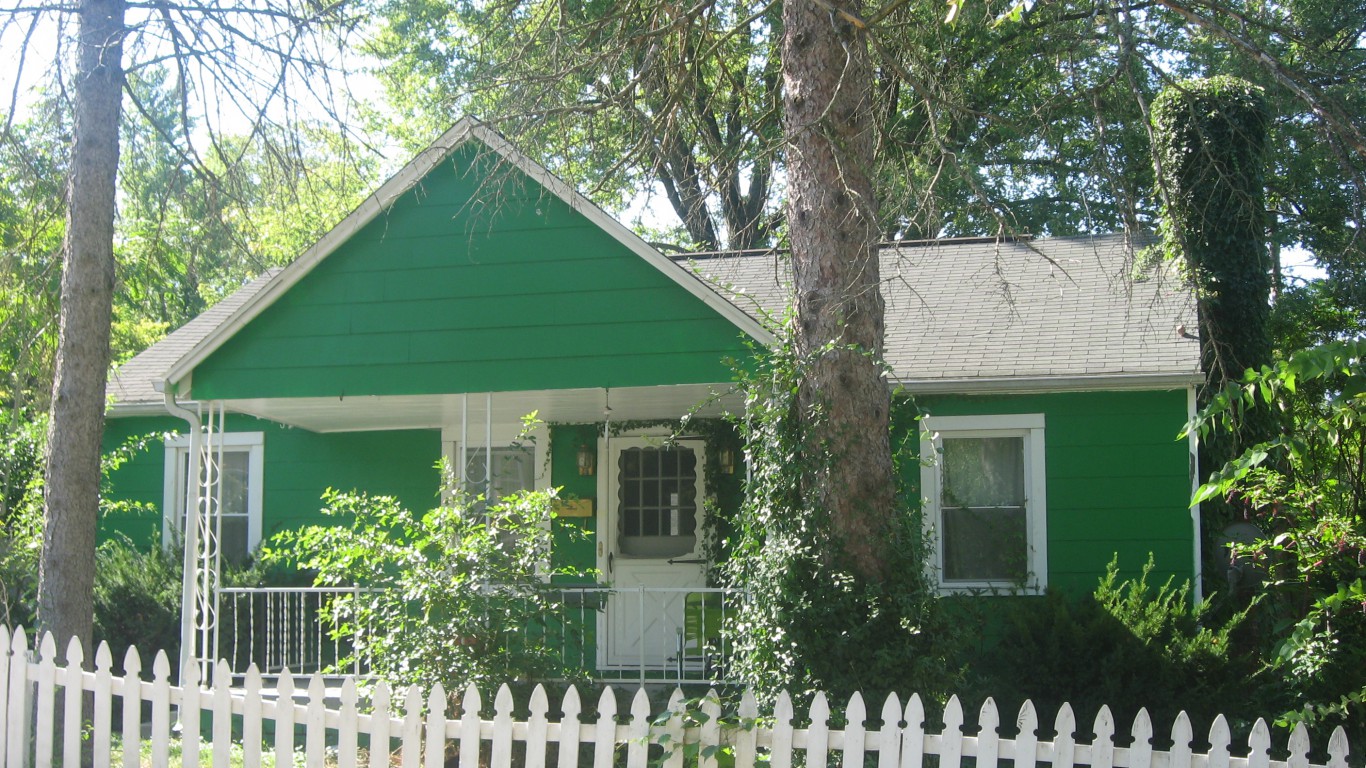
1950
Avg. floor area of a new single-family home: 983 sq. ft.
Avg. floor area per person: 292 sq. ft.
New homes started: 1,952,000
GDP per capita (inflation adjusted): $14,398
[in-text-ad]
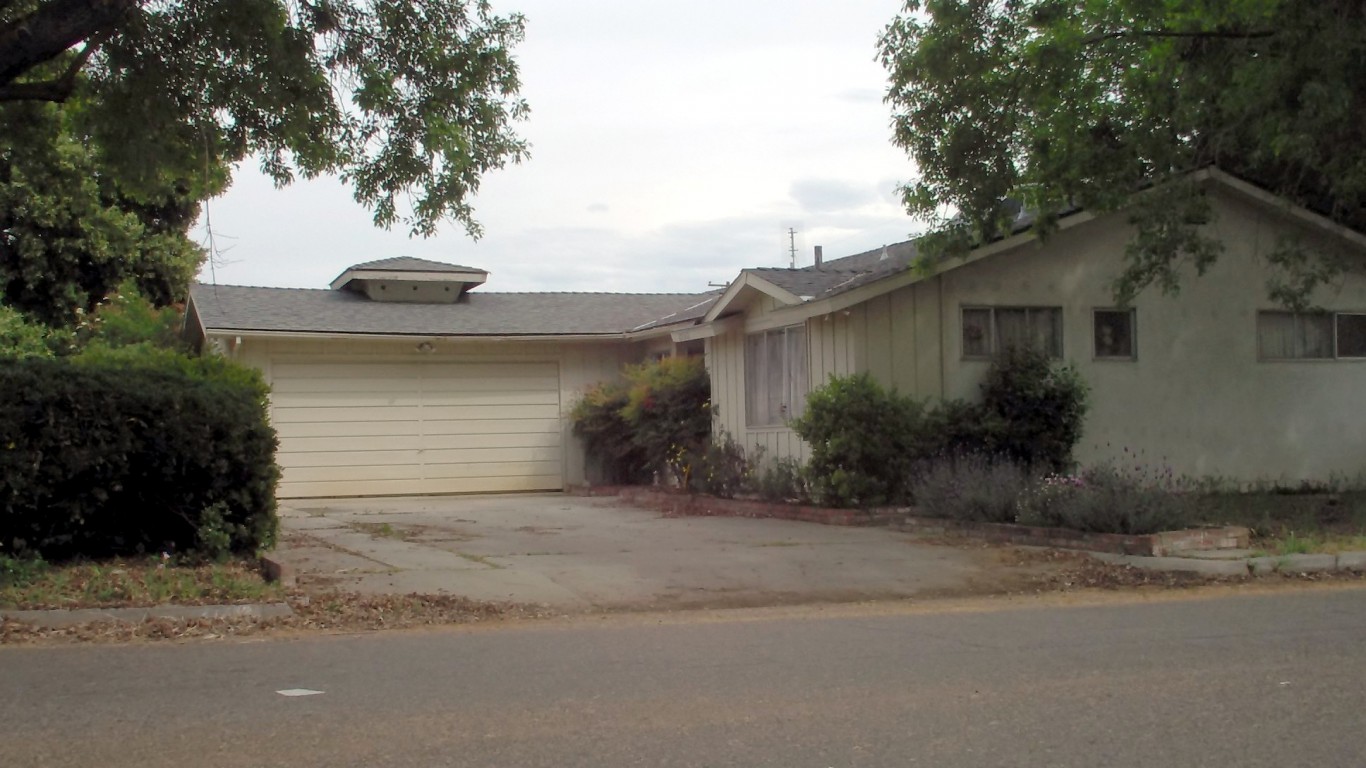
1951
Avg. floor area of a new single-family home: 874 sq. ft.
Avg. floor area per person: 262 sq. ft.
New homes started: 1,491,000
GDP per capita (inflation adjusted): $15,296
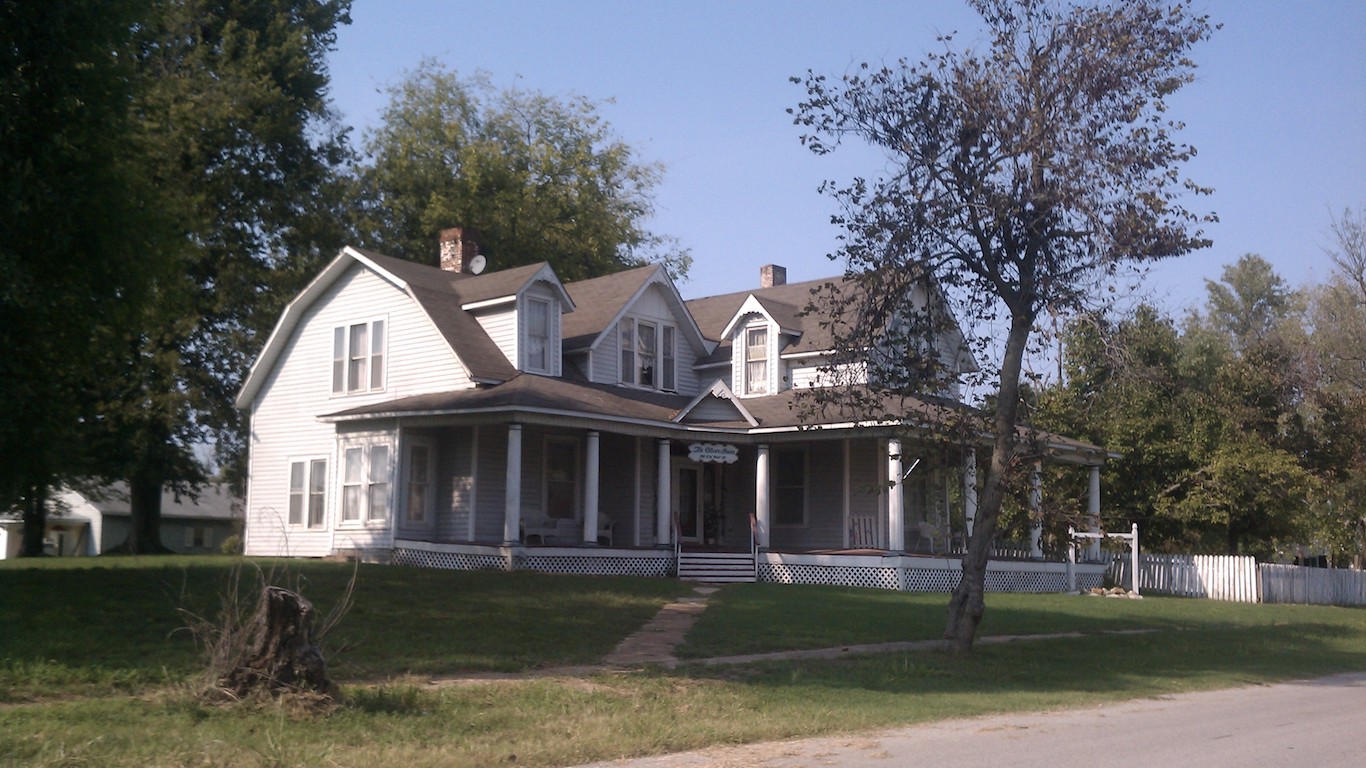
1952
Avg. floor area of a new single-family home: 910 sq. ft.
Avg. floor area per person: 274 sq. ft.
New homes started: 1,504,000
GDP per capita (inflation adjusted): $15,649
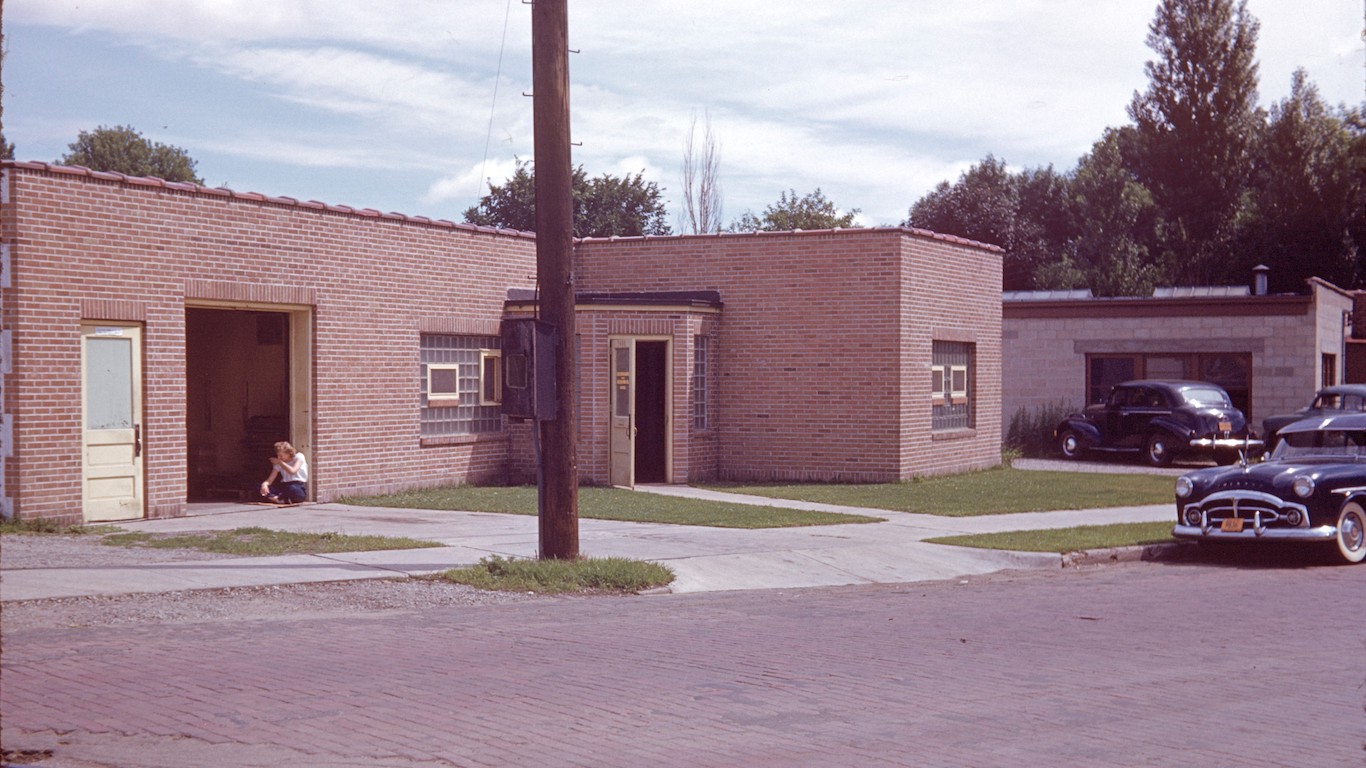
1953
Avg. floor area of a new single-family home: 917 sq. ft.
Avg. floor area per person: 279 sq. ft.
New homes started: 1,438,000
GDP per capita (inflation adjusted): $16,115
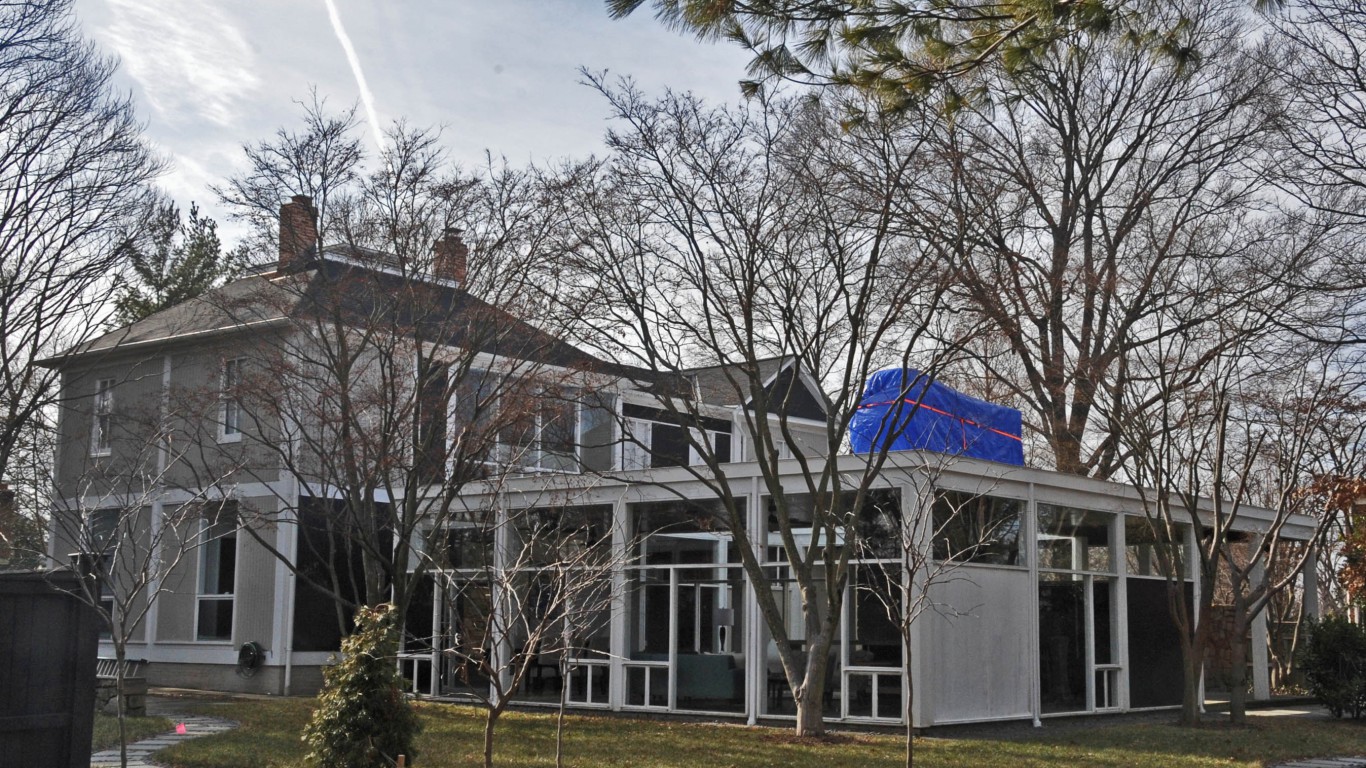
1954
Avg. floor area of a new single-family home: 1,140 sq. ft.
Avg. floor area per person: 341 sq. ft.
New homes started: 1,551,000
GDP per capita (inflation adjusted): $15,745
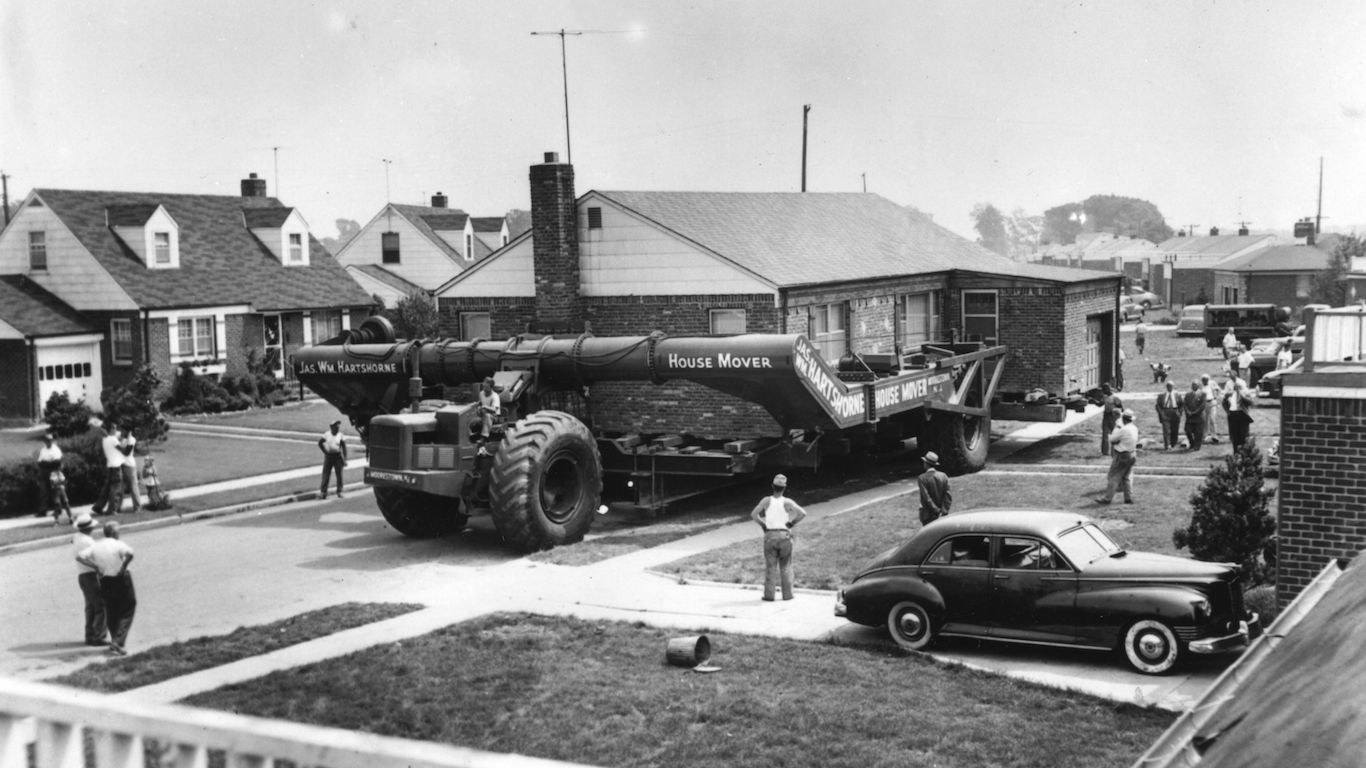
1955
Avg. floor area of a new single-family home: 1,170 sq. ft.
Avg. floor area per person: 351 sq. ft.
New homes started: 1,646,000
GDP per capita (inflation adjusted): $16,573
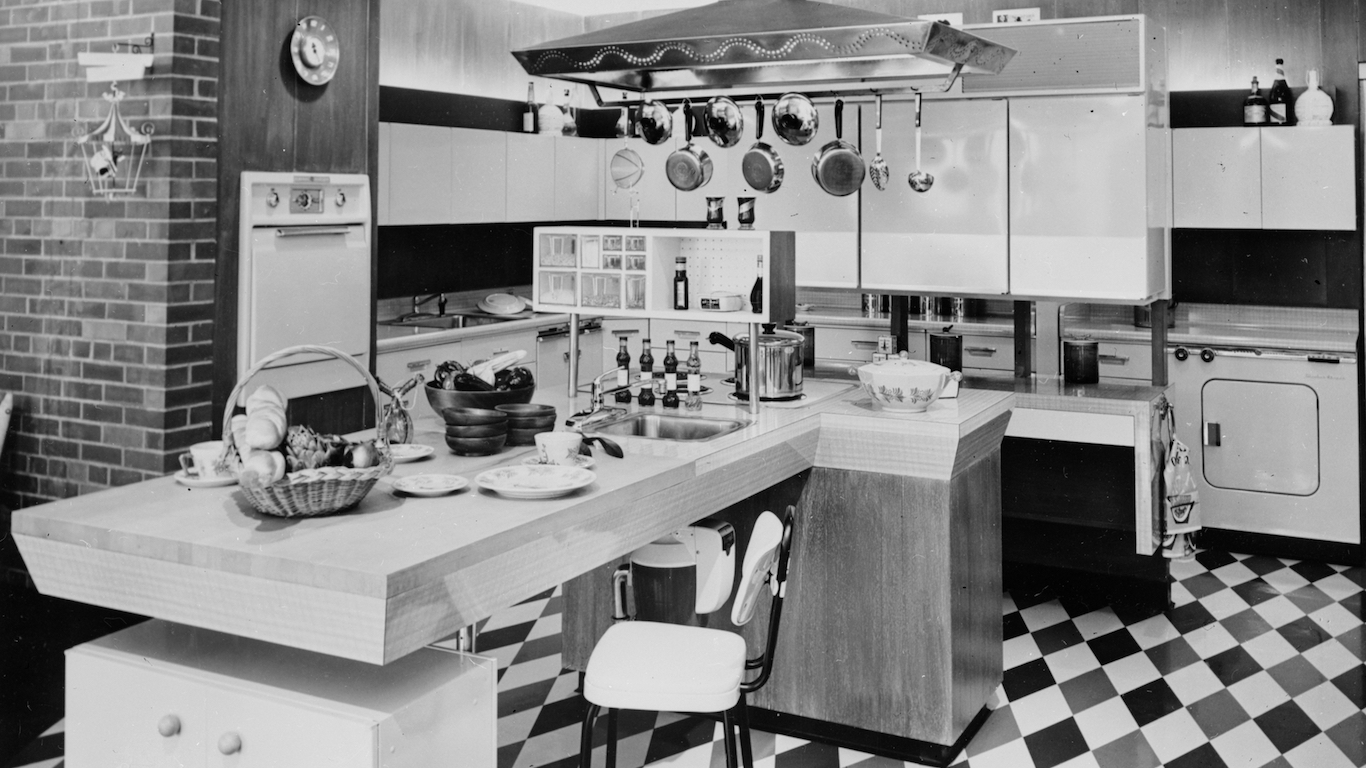
1956
Avg. floor area of a new single-family home: 1,230 sq. ft.
Avg. floor area per person: 370 sq. ft.
New homes started: 1,349,000
GDP per capita (inflation adjusted): $16,630
[in-text-ad-2]
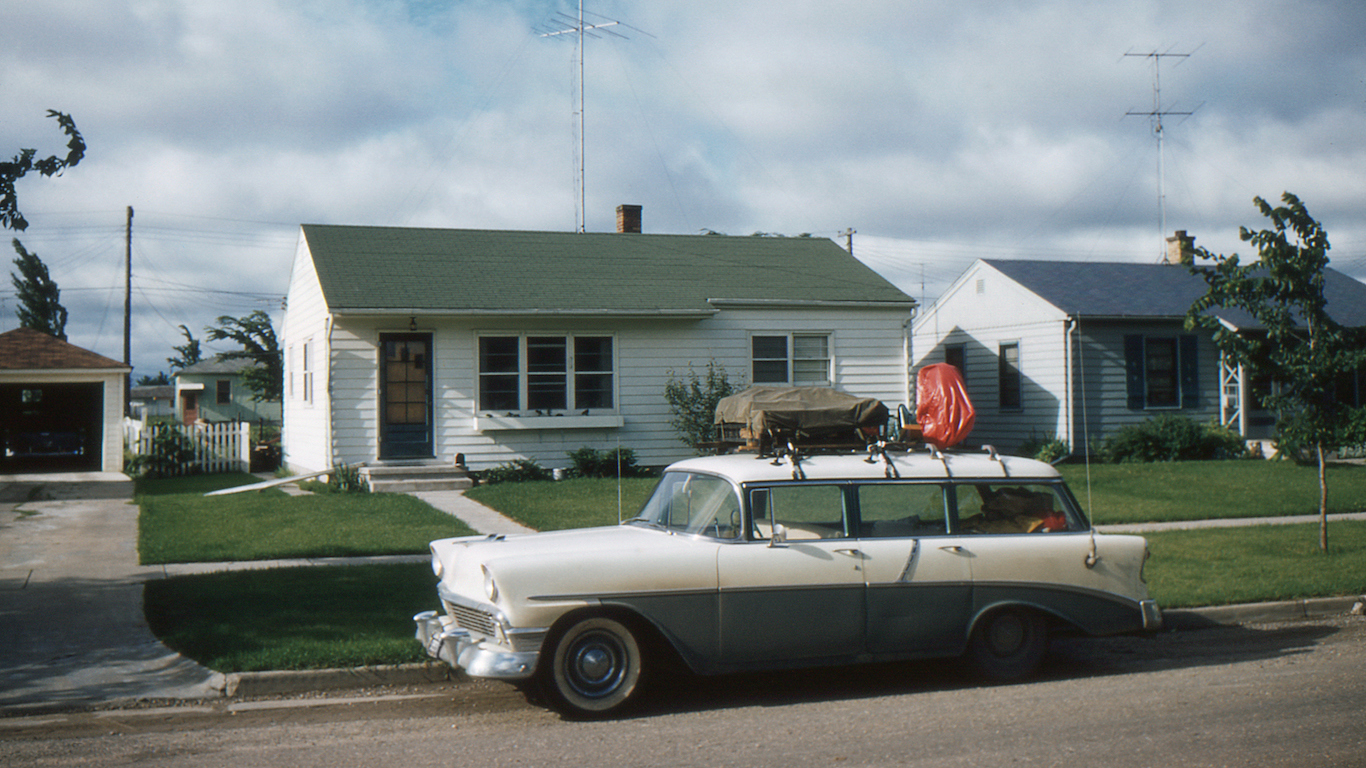
1957
Avg. floor area of a new single-family home: 1,305 sq. ft.
Avg. floor area per person: 392 sq. ft.
New homes started: 1,224,000
GDP per capita (inflation adjusted): $16,677
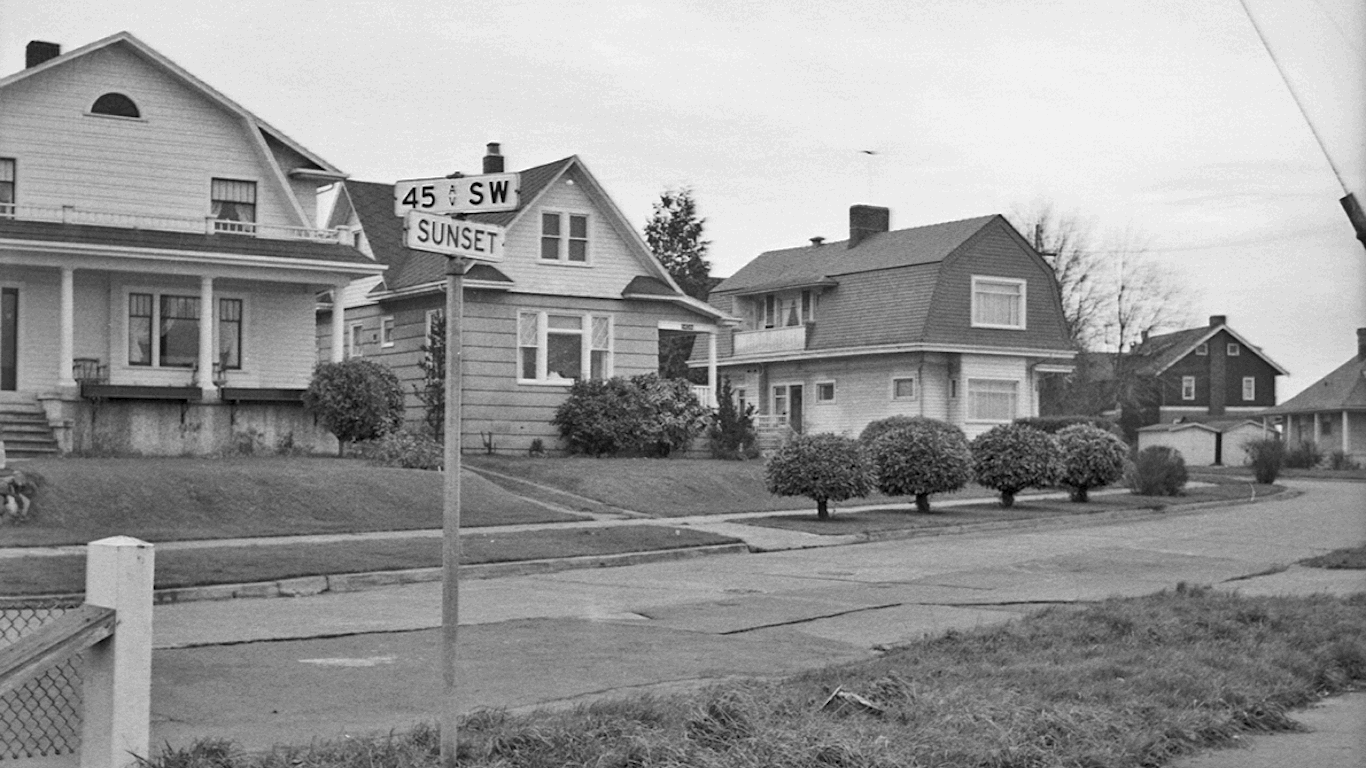
1958
Avg. floor area of a new single-family home: 1,289 sq. ft.
Avg. floor area per person: 386 sq. ft.
New homes started: 1,382,000
GDP per capita (inflation adjusted): $16,282
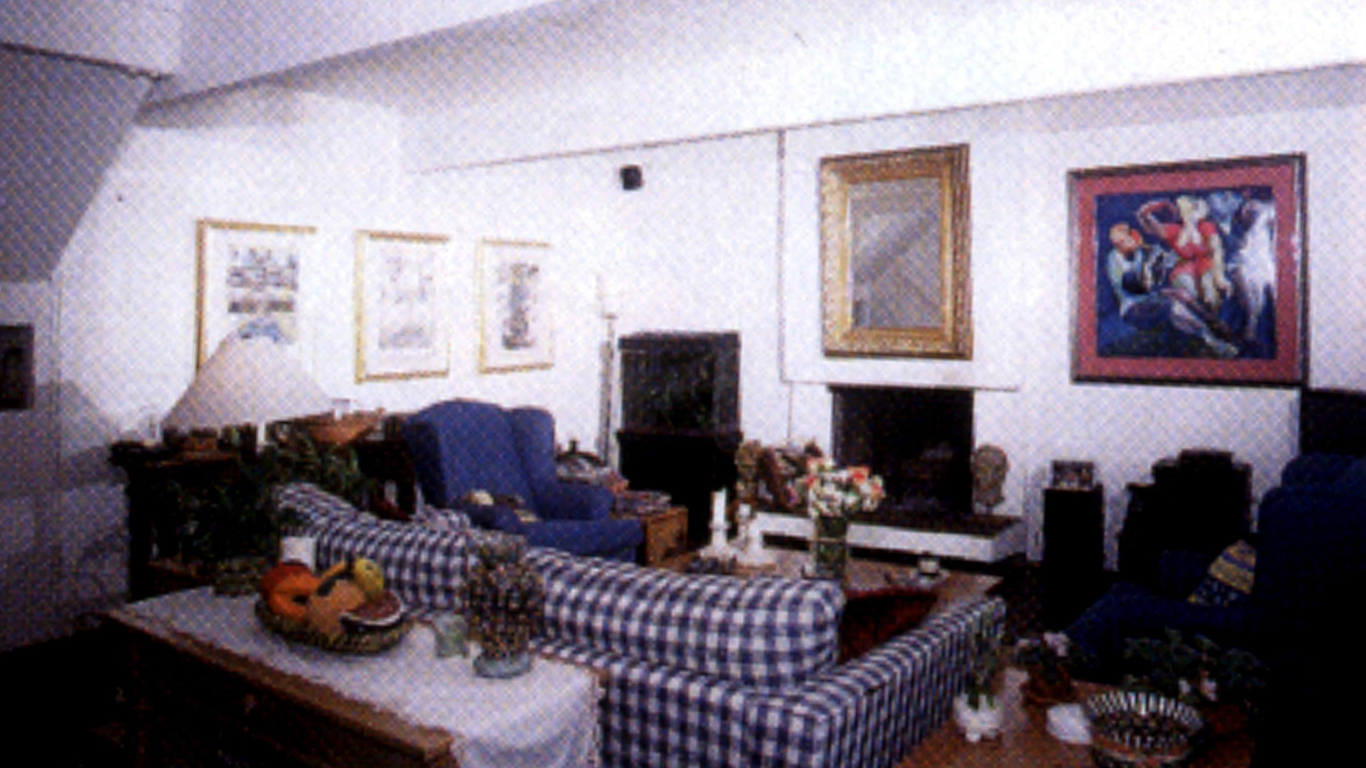
1959
Avg. floor area of a new single-family home: 1,300 sq. ft.
Avg. floor area per person: 389 sq. ft.
New homes started: 1,554,000
GDP per capita (inflation adjusted): $17,112
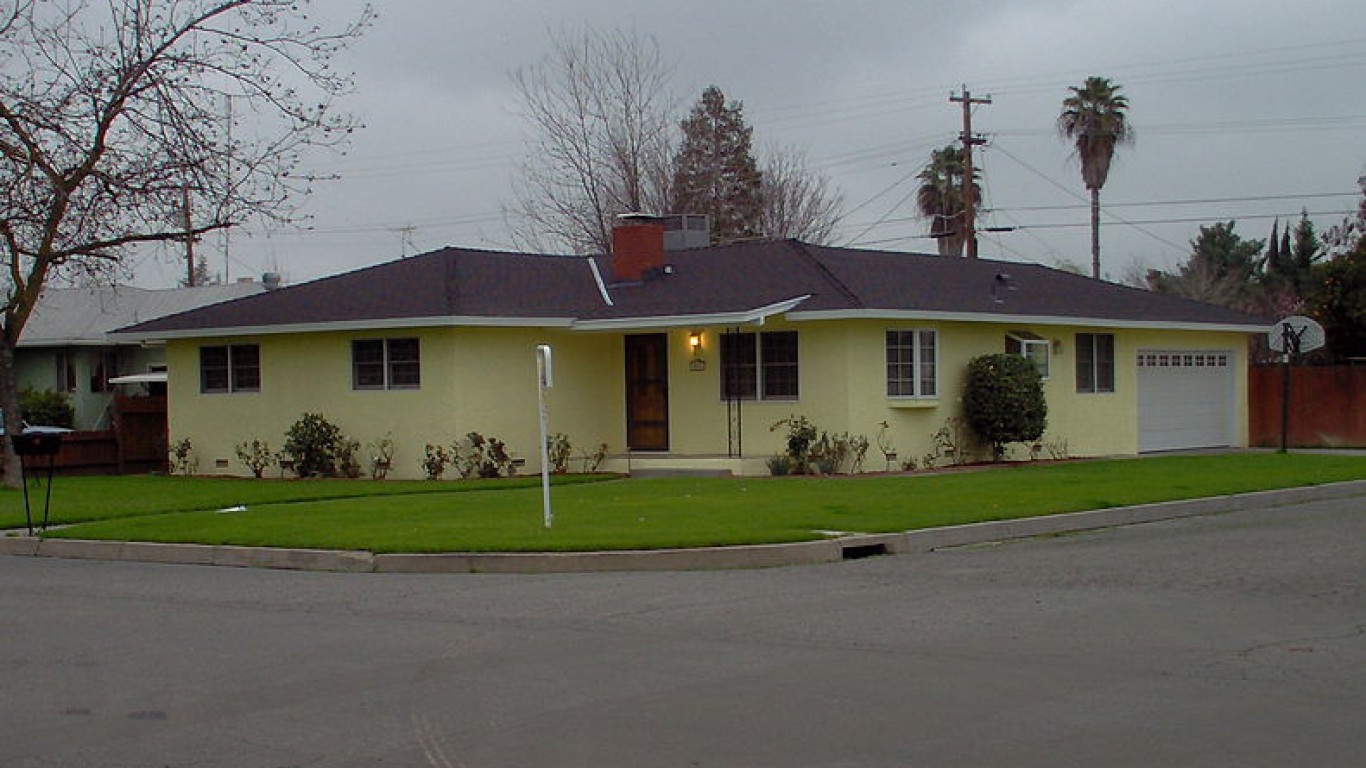
1960
Avg. floor area of a new single-family home: 1,289 sq. ft.
Avg. floor area per person: 387 sq. ft.
New homes started: 1,296,000
GDP per capita (inflation adjusted): $17,198
[in-text-ad]
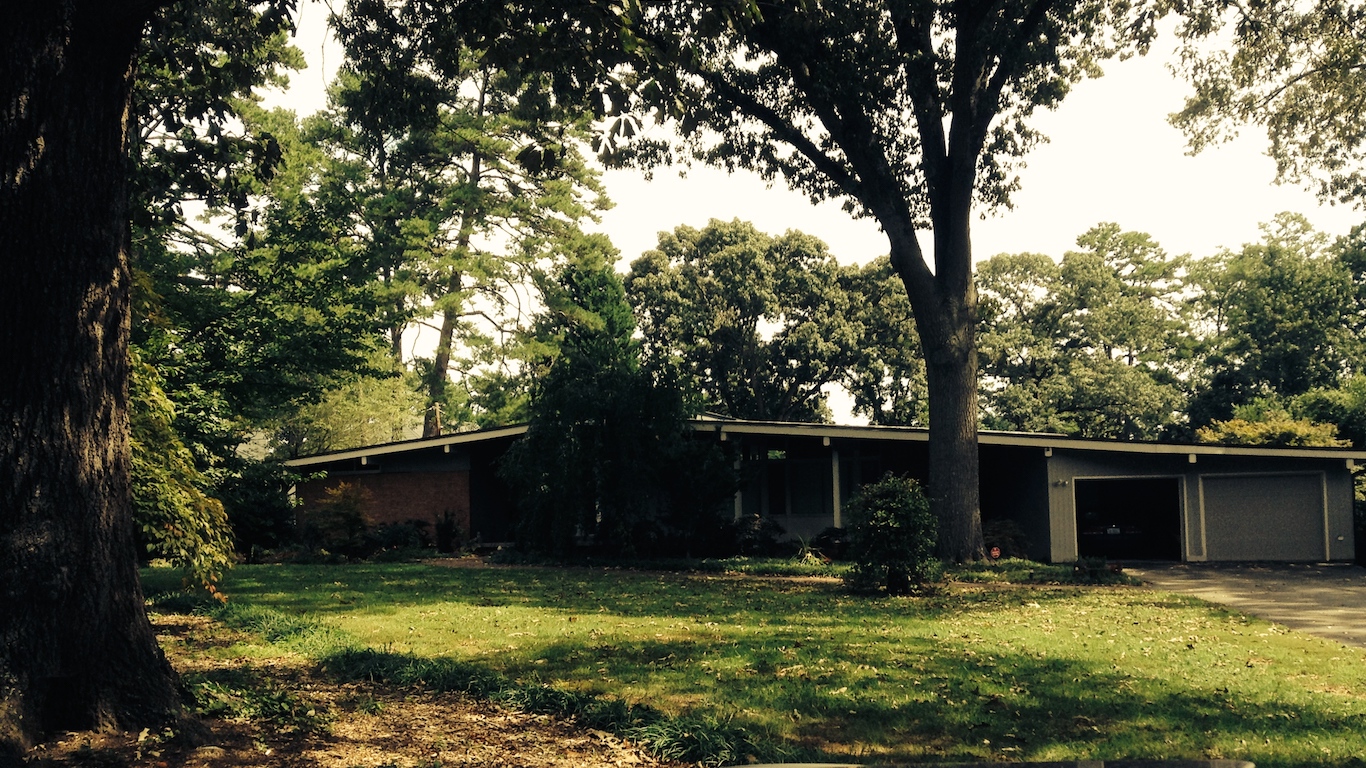
1961
Avg. floor area of a new single-family home: 1,284 sq. ft.
Avg. floor area per person: 382 sq. ft.
New homes started: 1,365,000
GDP per capita (inflation adjusted): $17,351
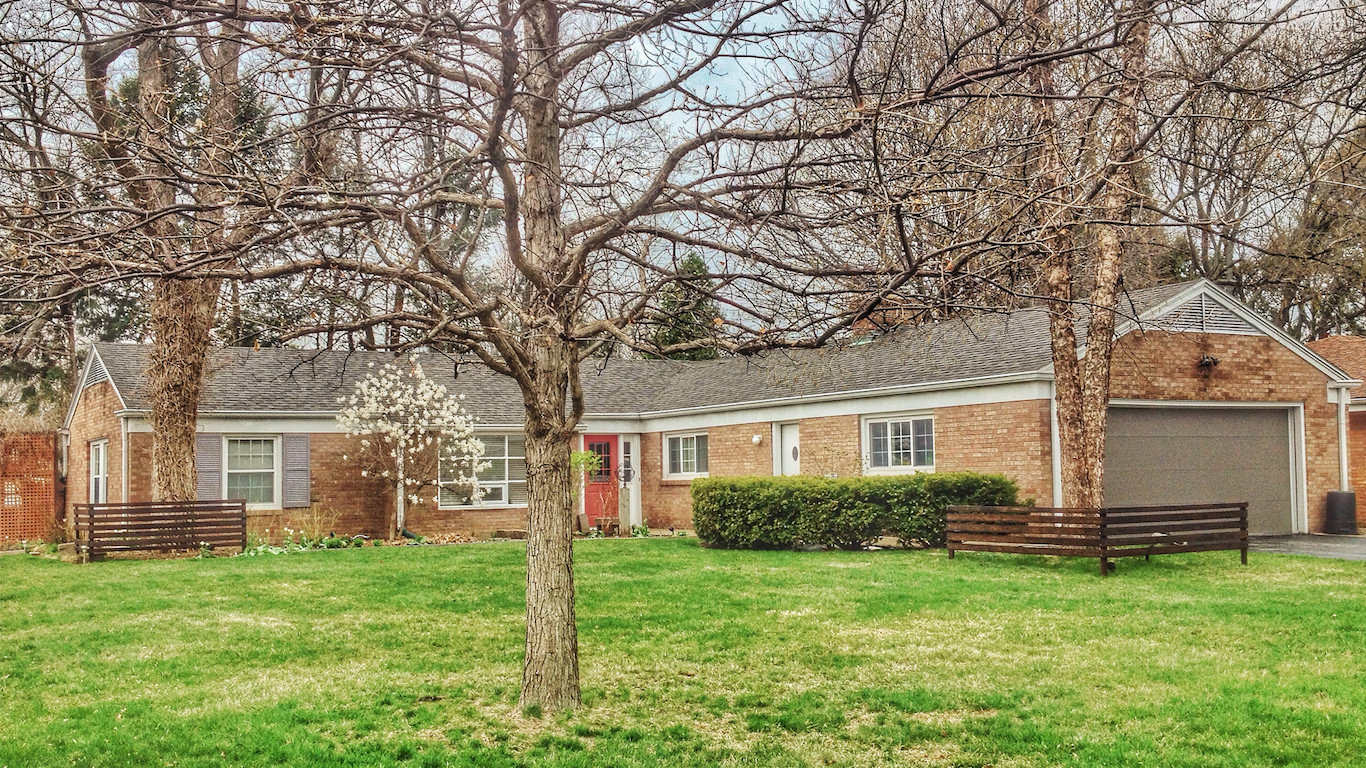
1962
Avg. floor area of a new single-family home: 1,309 sq. ft.
Avg. floor area per person: 396 sq. ft.
New homes started: 1,492,000
GDP per capita (inflation adjusted): $18,131
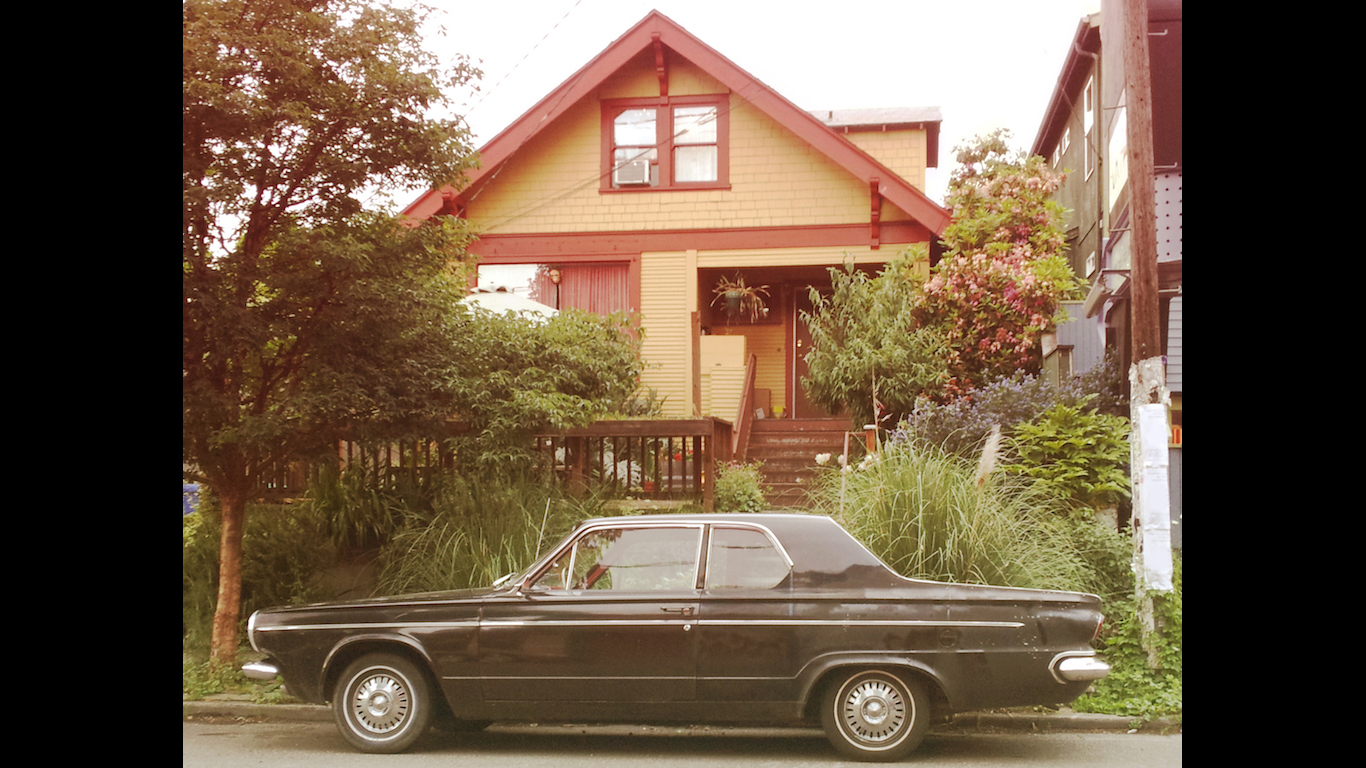
1963
Avg. floor area of a new single-family home: 1,450 sq. ft.
Avg. floor area per person: 435 sq. ft.
New homes started: 1,635,000
GDP per capita (inflation adjusted): $18,650

1964
Avg. floor area of a new single-family home: 1,470 sq. ft.
Avg. floor area per person: 441 sq. ft.
New homes started: 1,561,000
GDP per capita (inflation adjusted): $19,456
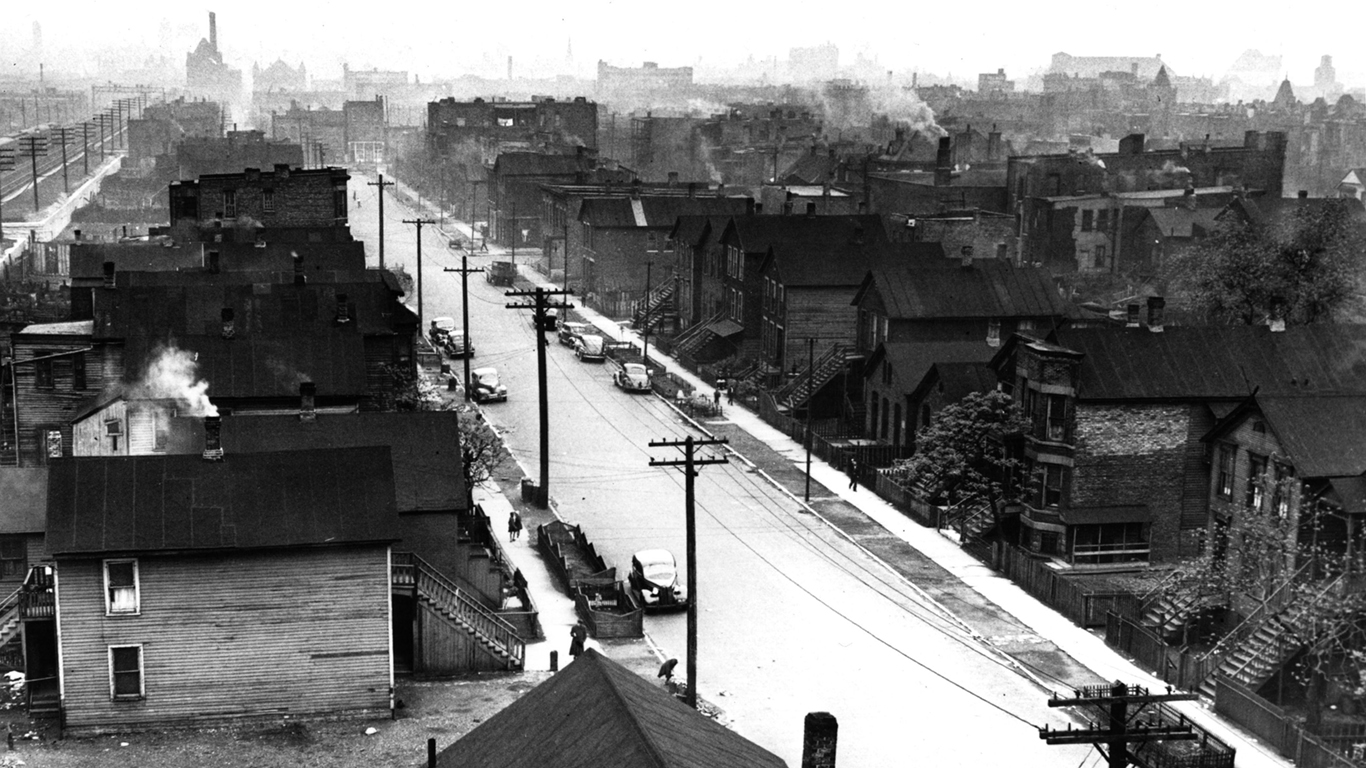
1965
Avg. floor area of a new single-family home: 1,525 sq. ft.
Avg. floor area per person: 461 sq. ft.
New homes started: 1,510,000
GDP per capita (inflation adjusted): $20,462
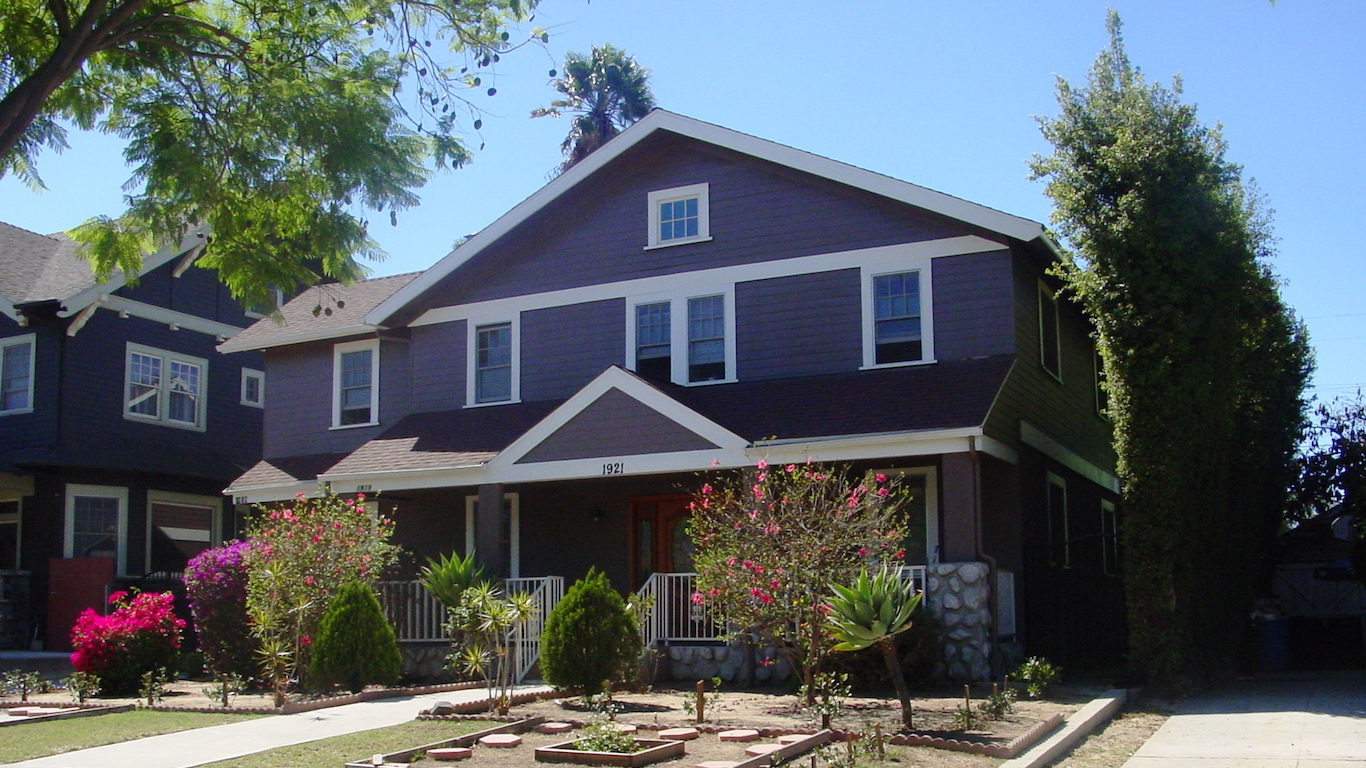
1966
Avg. floor area of a new single-family home: 1,570 sq. ft.
Avg. floor area per person: 476 sq. ft.
New homes started: 1,196,000
GDP per capita (inflation adjusted): $21,561
[in-text-ad-2]
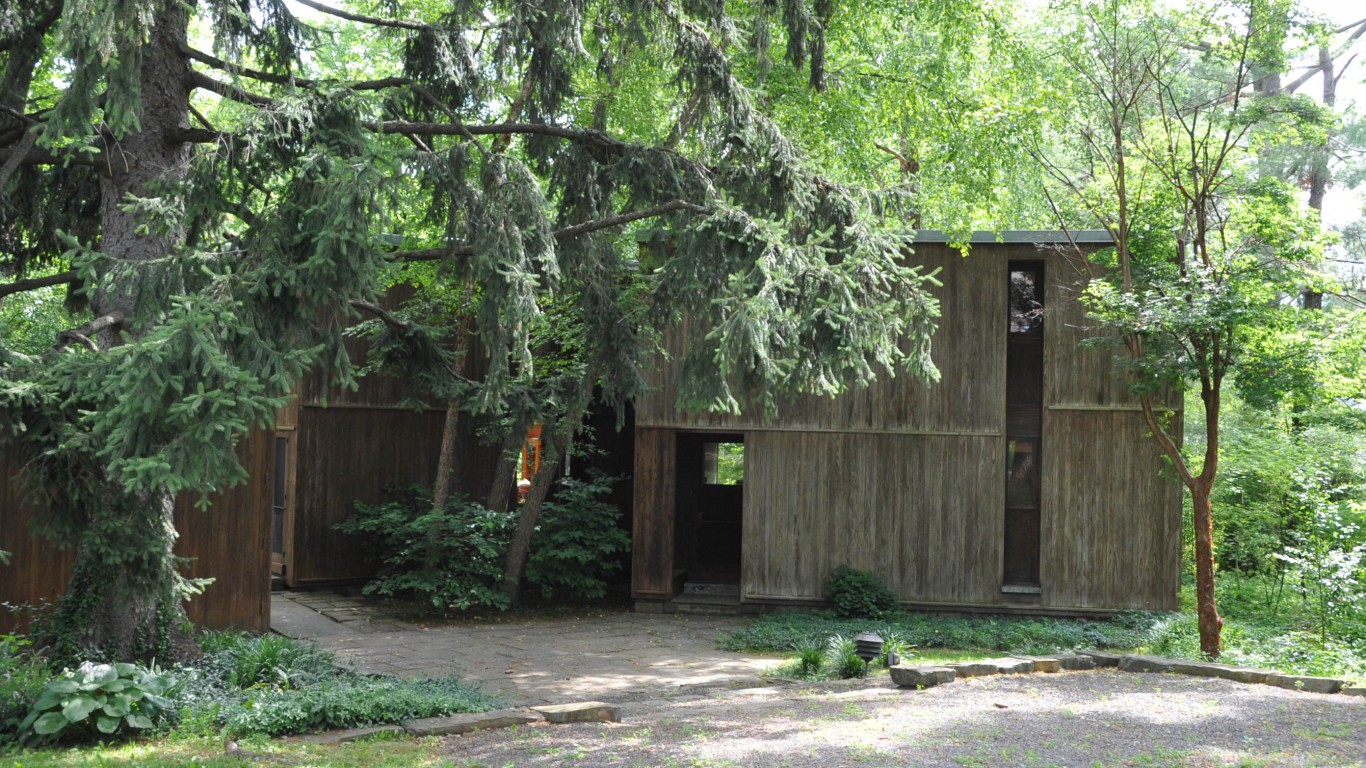
1967
Avg. floor area of a new single-family home: 1,610 sq. ft.
Avg. floor area per person: 491 sq. ft.
New homes started: 1,322,000
GDP per capita (inflation adjusted): $21,913
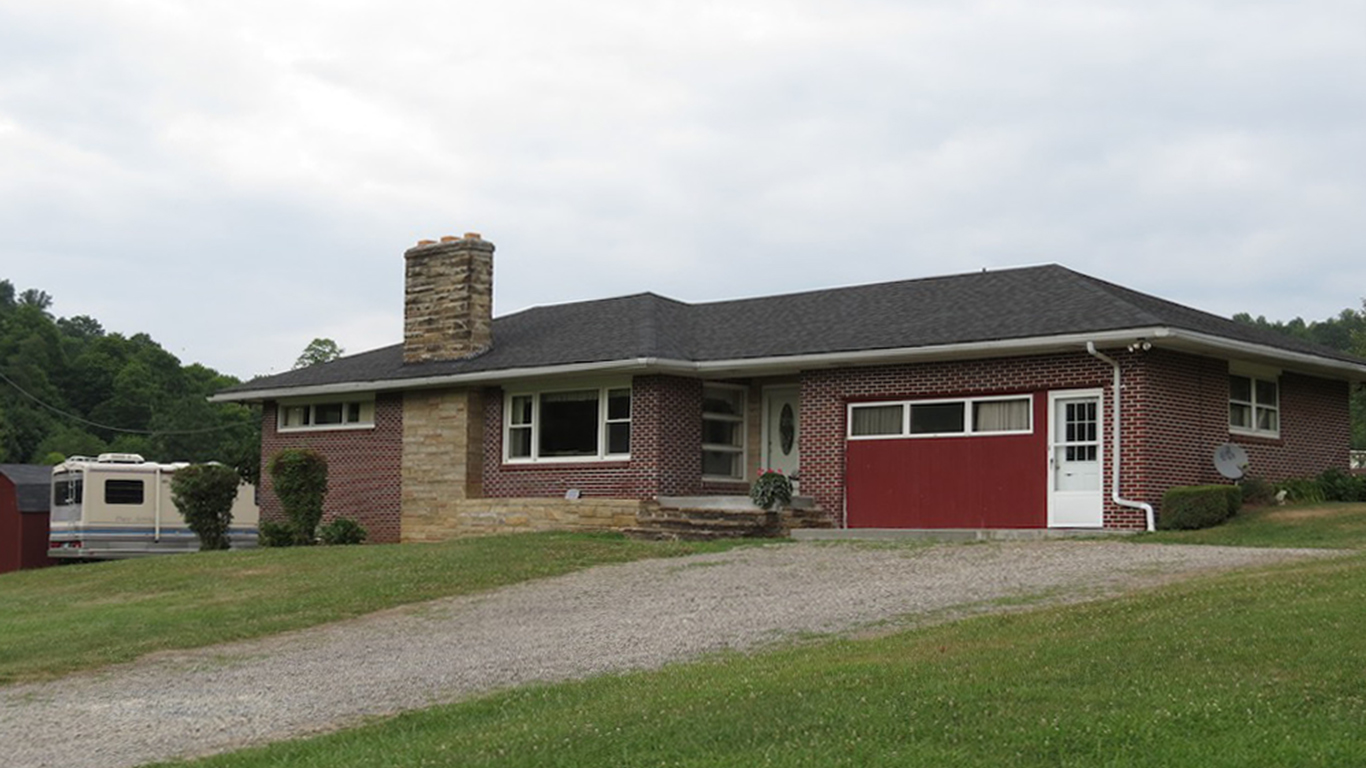
1968
Avg. floor area of a new single-family home: 1,665 sq. ft.
Avg. floor area per person: 515 sq. ft.
New homes started: 1,545,000
GDP per capita (inflation adjusted): $22,760
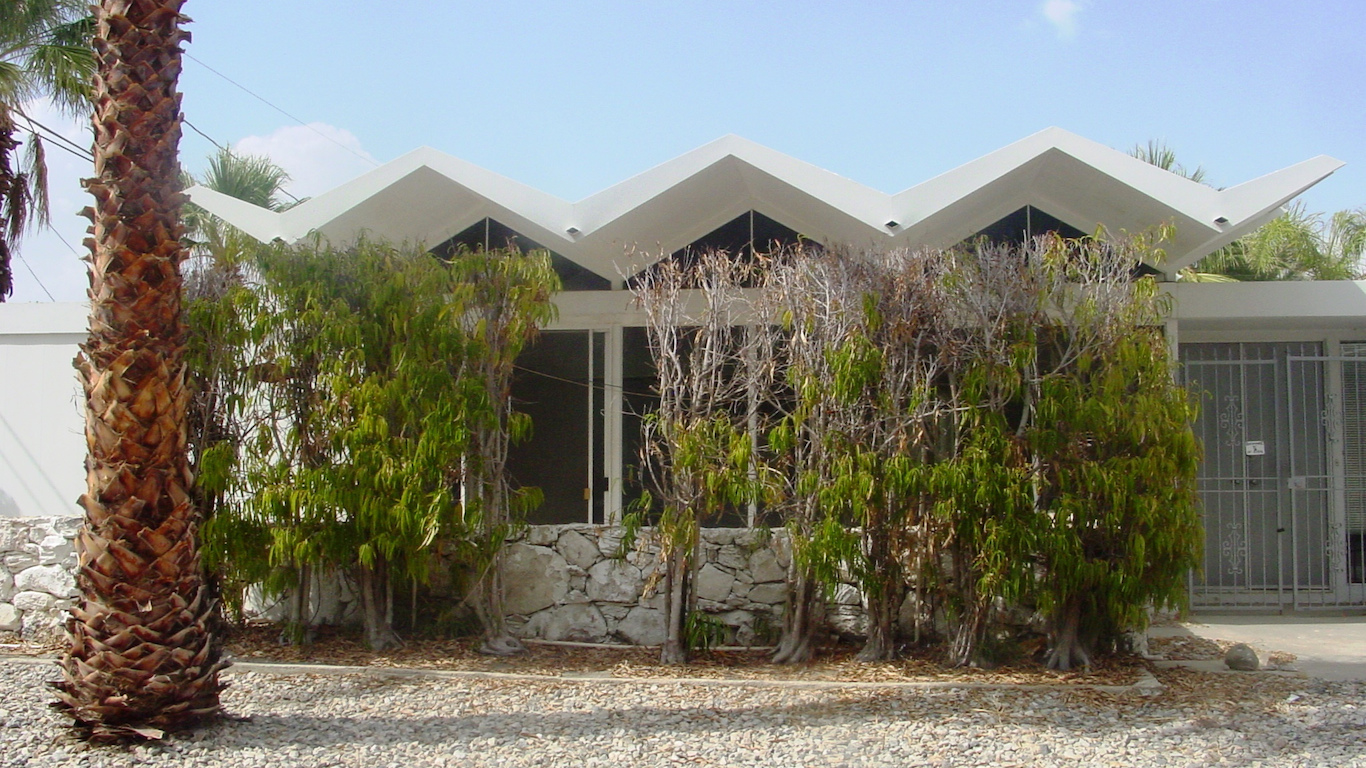
1969
Avg. floor area of a new single-family home: 1,640 sq. ft.
Avg. floor area per person: 514 sq. ft.
New homes started: 1,500,000
GDP per capita (inflation adjusted): $23,244
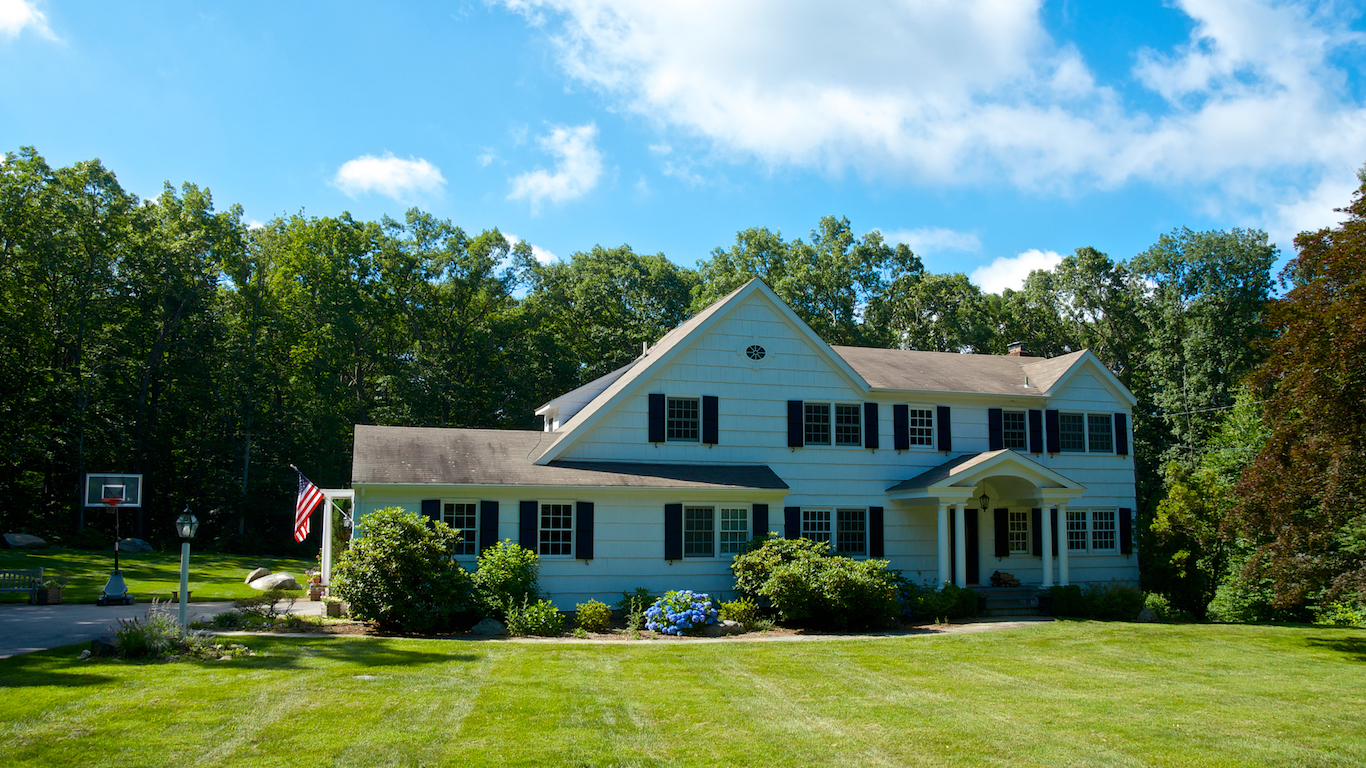
1970
Avg. floor area of a new single-family home: 1,500 sq. ft.
Avg. floor area per person: 478 sq. ft.
New homes started: 1,469,000
GDP per capita (inflation adjusted): $23,024
[in-text-ad]

1971
Avg. floor area of a new single-family home: 1,520 sq. ft.
Avg. floor area per person: 489 sq. ft.
New homes started: 2,052,200
GDP per capita (inflation adjusted): $23,485
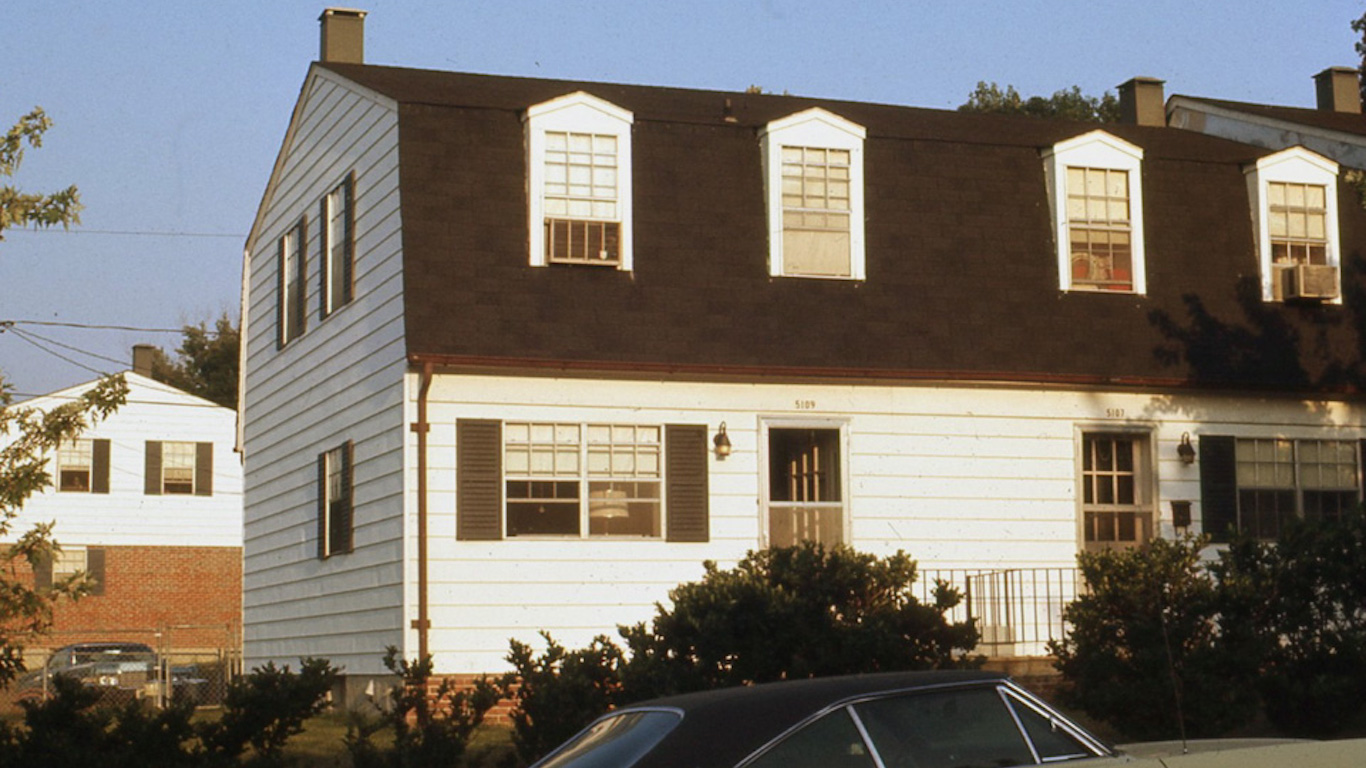
1972
Avg. floor area of a new single-family home: 1,555 sq. ft.
Avg. floor area per person: 508 sq. ft.
New homes started: 2,356,600
GDP per capita (inflation adjusted): $24,458
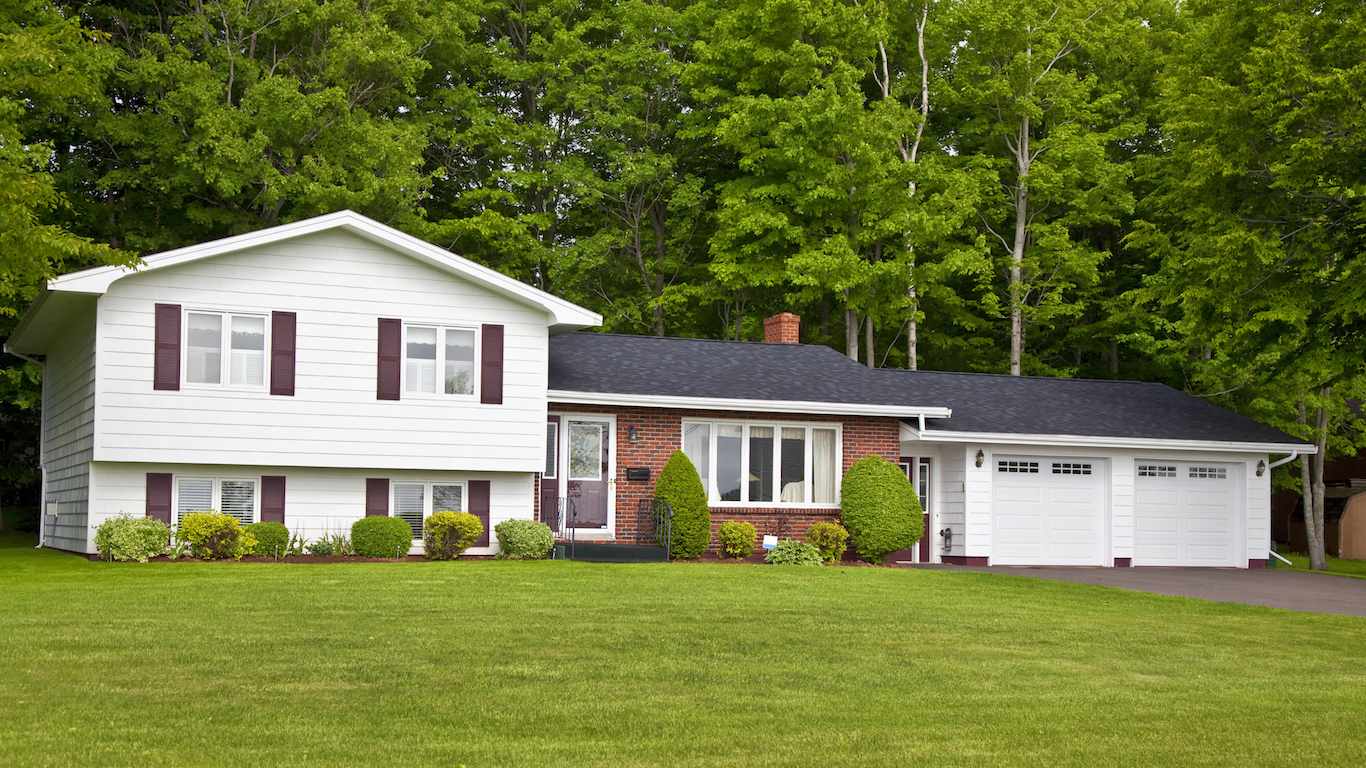
1973
Avg. floor area of a new single-family home: 1,660 sq. ft.
Avg. floor area per person: 551 sq. ft.
New homes started: 2,045,000
GDP per capita (inflation adjusted): $25,593
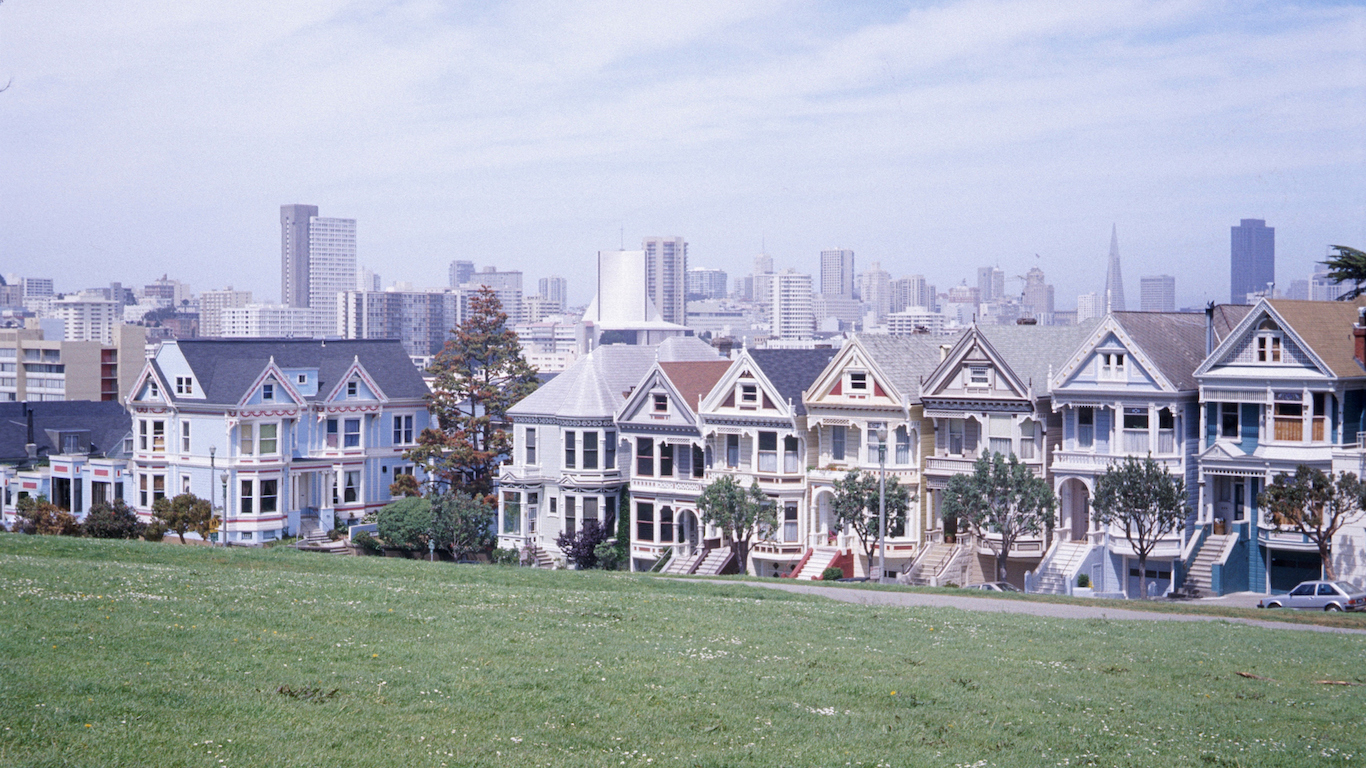
1974
Avg. floor area of a new single-family home: 1,695 sq. ft.
Avg. floor area per person: 571 sq. ft.
New homes started: 1,338,000
GDP per capita (inflation adjusted): $25,227
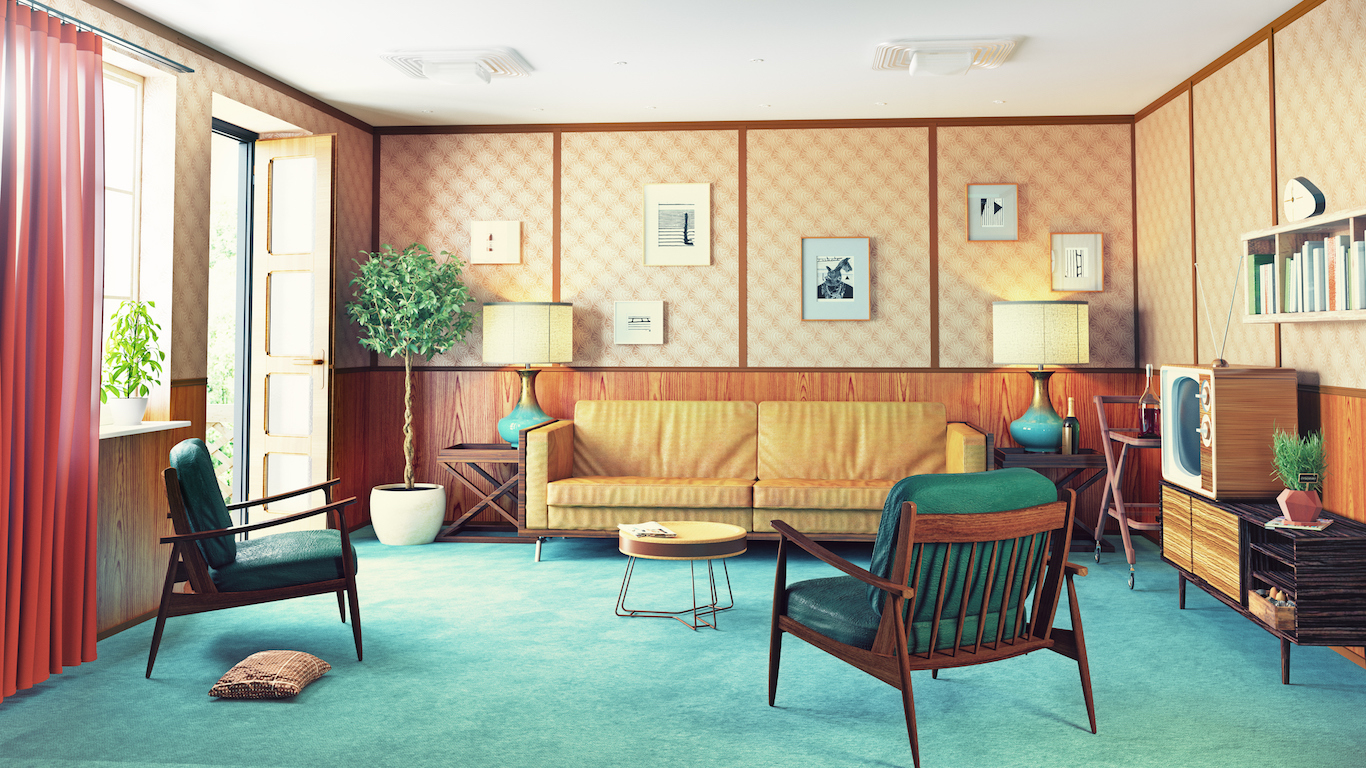
1975
Avg. floor area of a new single-family home: 1,645 sq. ft.
Avg. floor area per person: 560 sq. ft.
New homes started: 1,160,000
GDP per capita (inflation adjusted): $24,934
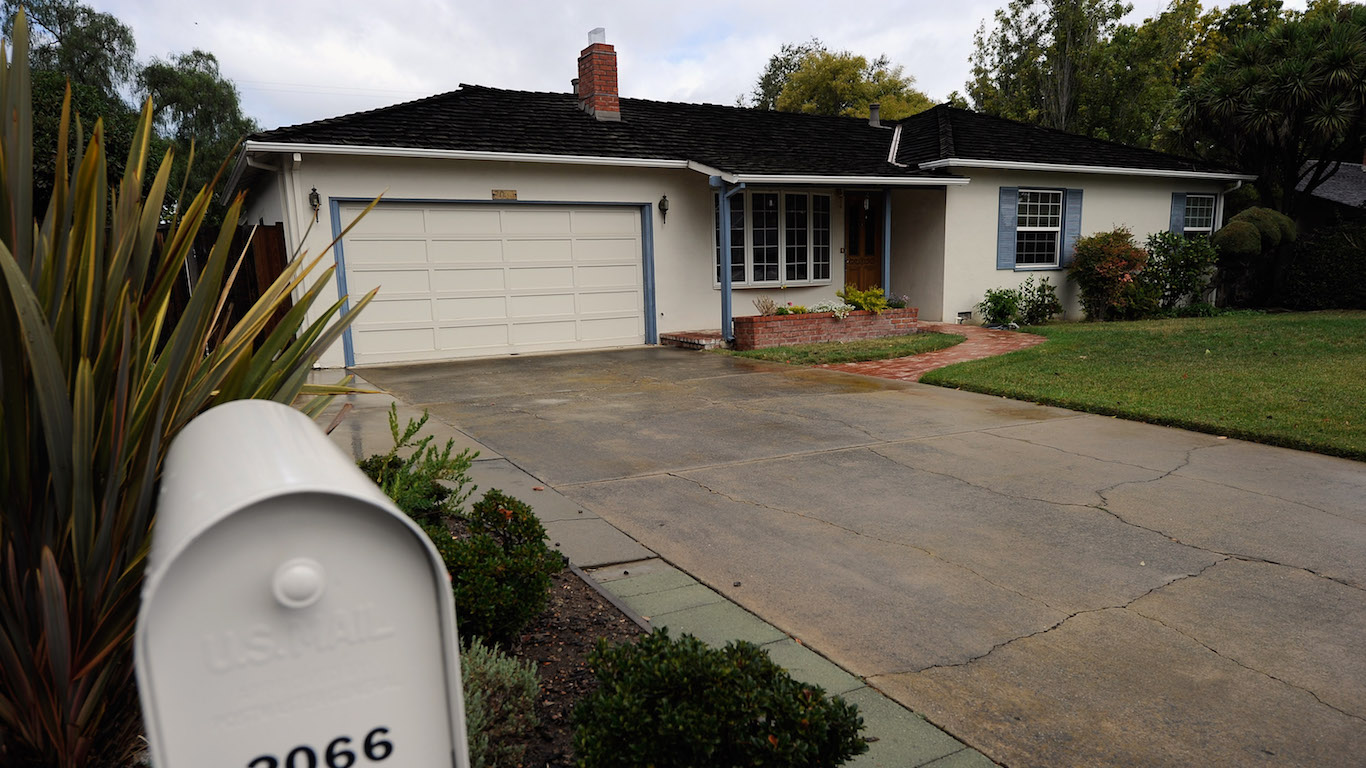
1976
Avg. floor area of a new single-family home: 1,700 sq. ft.
Avg. floor area per person: 588 sq. ft.
New homes started: 1,538,000
GDP per capita (inflation adjusted): $26,024
[in-text-ad-2]
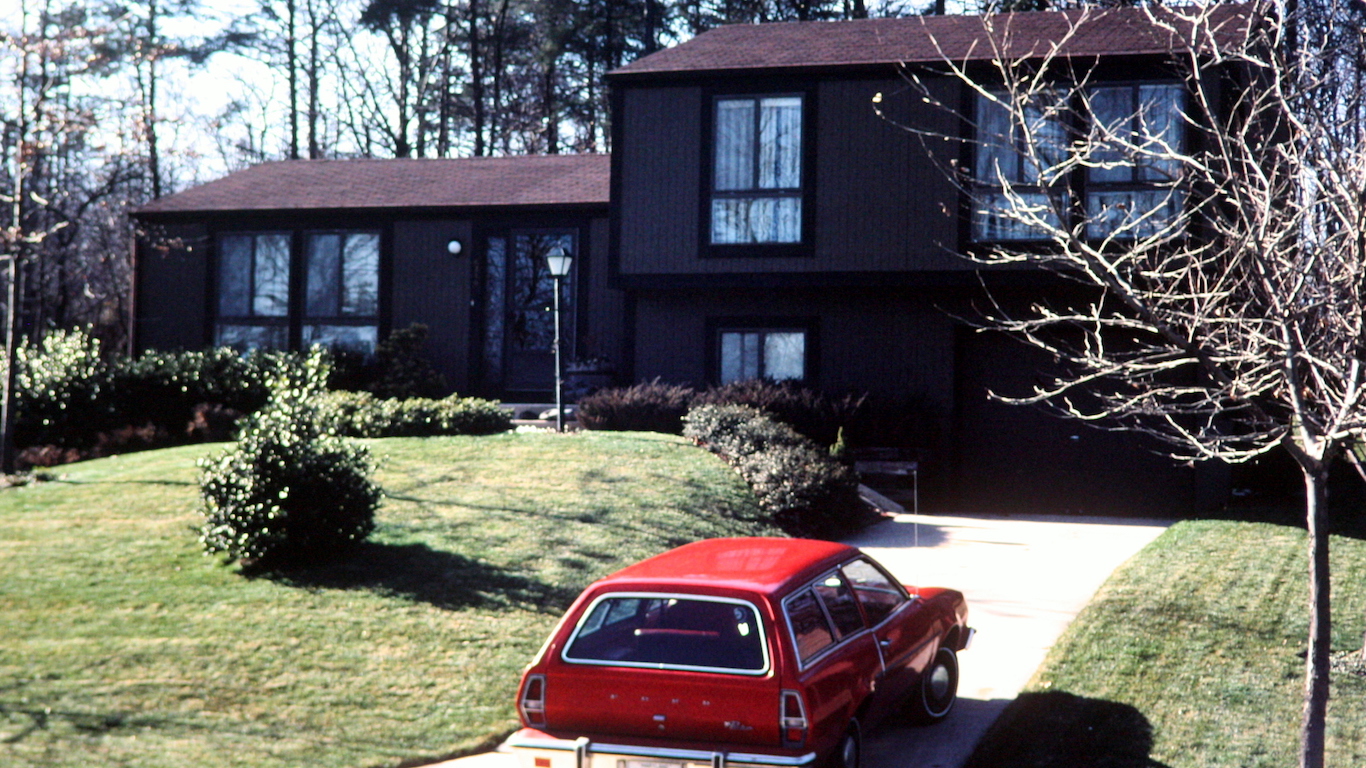
1977
Avg. floor area of a new single-family home: 1,720 sq. ft.
Avg. floor area per person: 601 sq. ft.
New homes started: 1,987,000
GDP per capita (inflation adjusted): $26,951
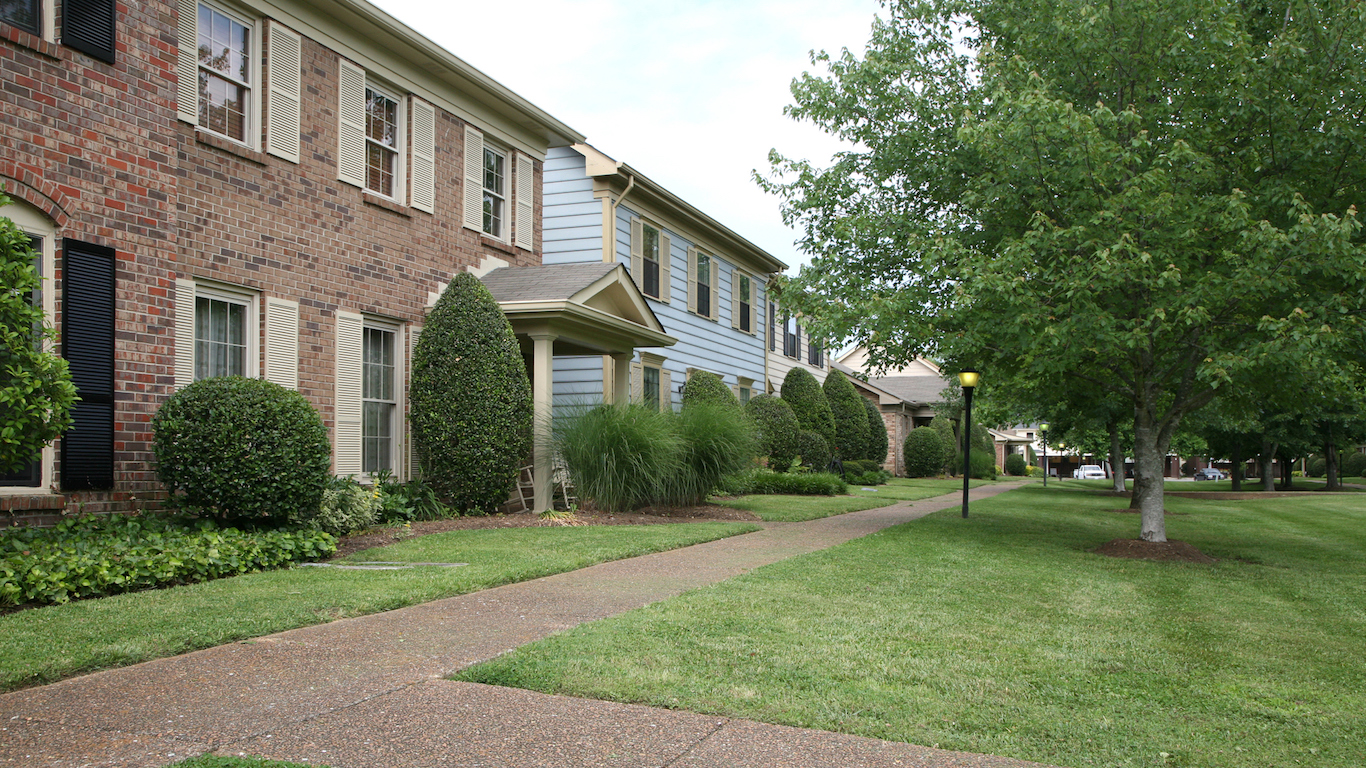
1978
Avg. floor area of a new single-family home: 1,755 sq. ft.
Avg. floor area per person: 625 sq. ft.
New homes started: 2,020,000
GDP per capita (inflation adjusted): $28,151
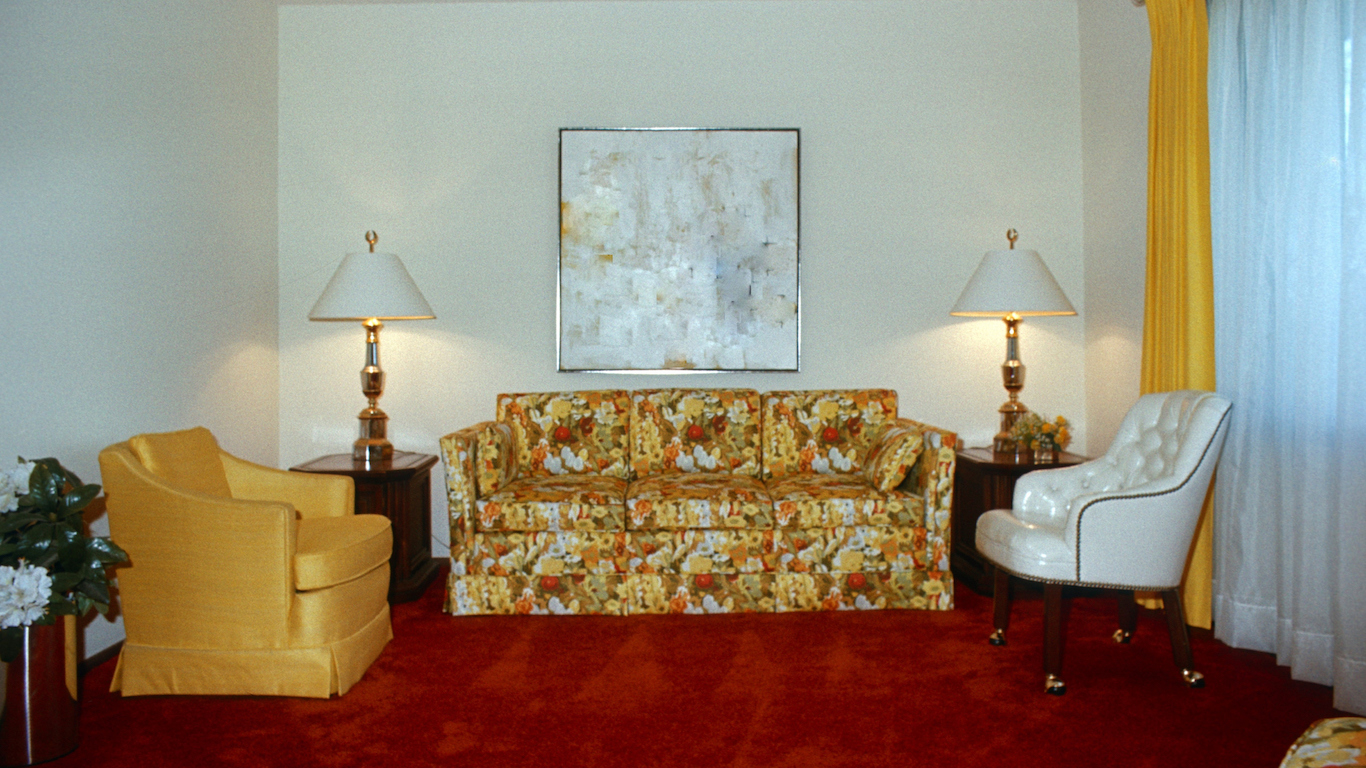
1979
Avg. floor area of a new single-family home: 1,760 sq. ft.
Avg. floor area per person: 633 sq. ft.
New homes started: 1,745,000
GDP per capita (inflation adjusted): $28,725
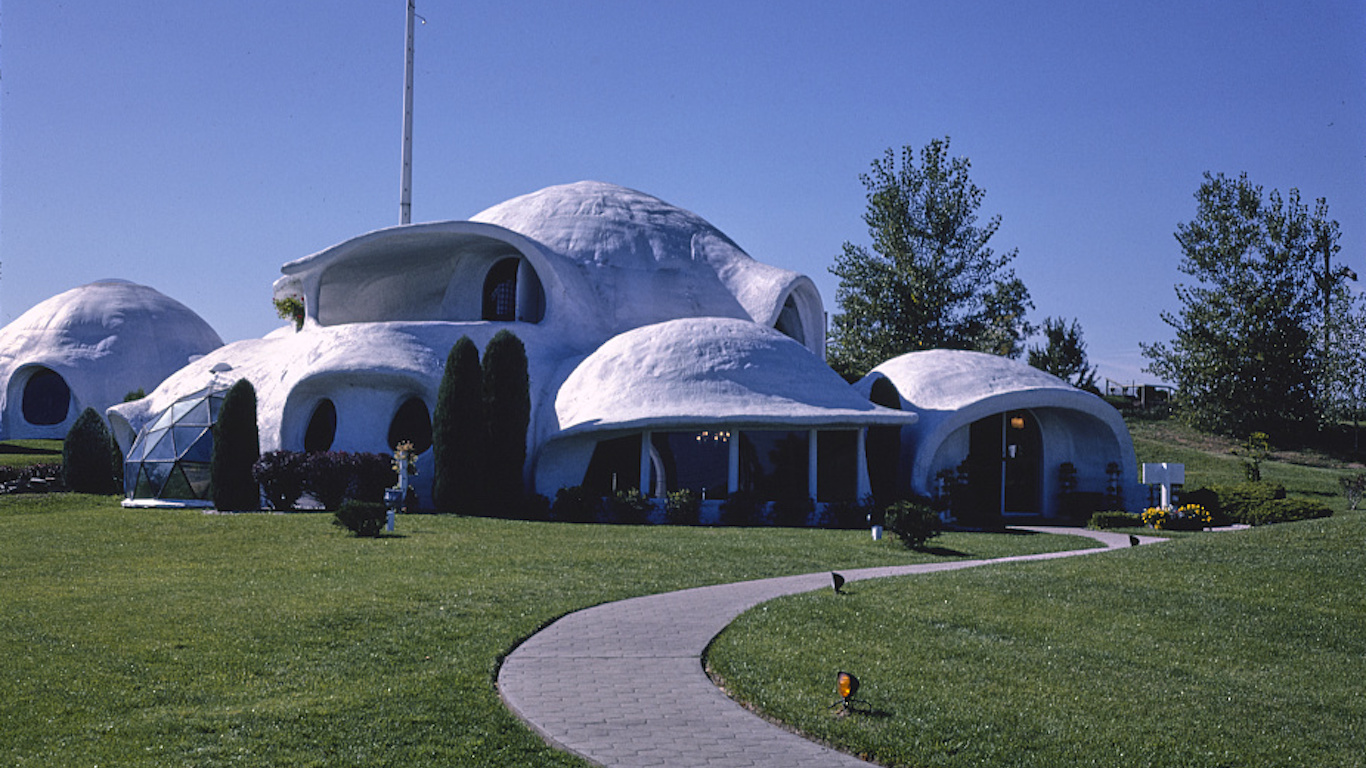
1980
Avg. floor area of a new single-family home: 1,740 sq. ft.
Avg. floor area per person: 630 sq. ft.
New homes started: 1,292,000
GDP per capita (inflation adjusted): $28,325
[in-text-ad]

1981
Avg. floor area of a new single-family home: 1,720 sq. ft.
Avg. floor area per person: 630 sq. ft.
New homes started: 1,084,000
GDP per capita (inflation adjusted): $28,772

1982
Avg. floor area of a new single-family home: 1,710 sq. ft.
Avg. floor area per person: 629 sq. ft.
New homes started: 1,062,000
GDP per capita (inflation adjusted): $27,953
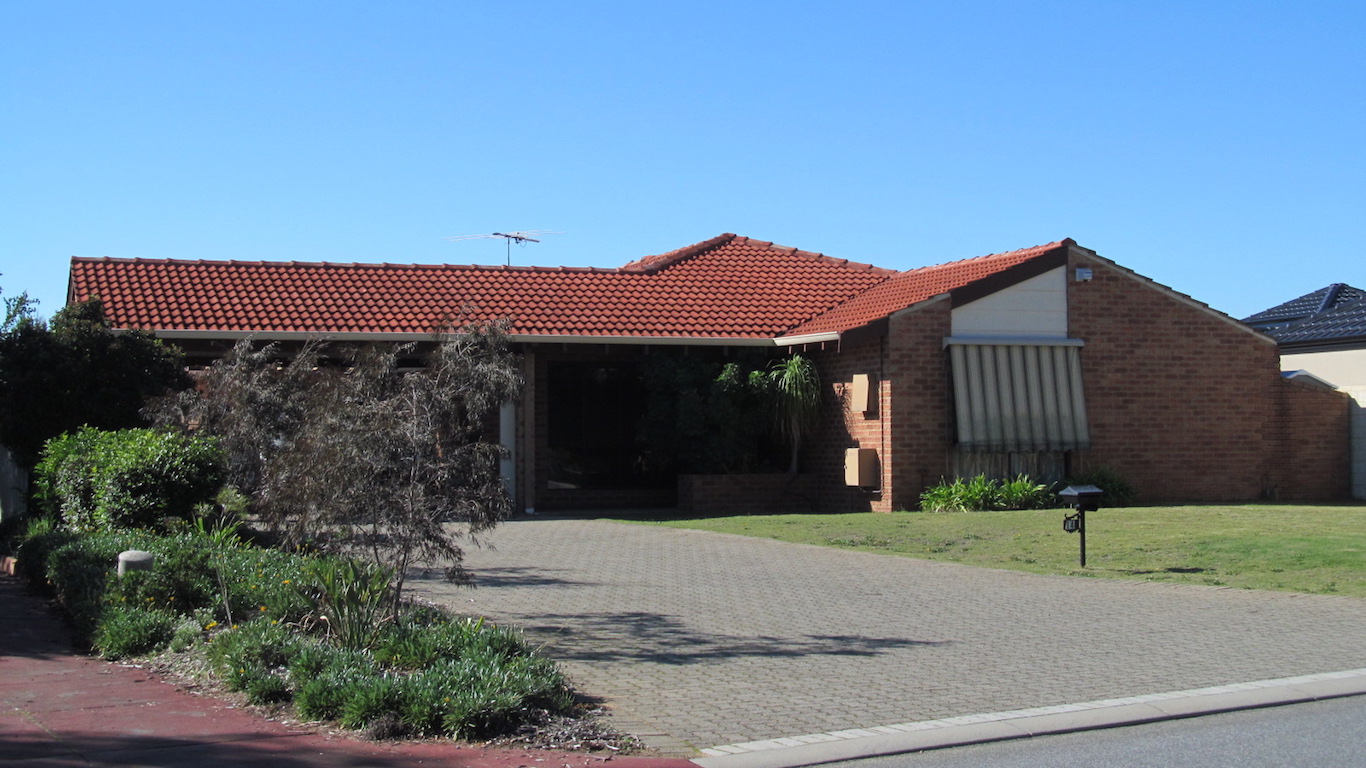
1983
Avg. floor area of a new single-family home: 1,725 sq. ft.
Avg. floor area per person: 632 sq. ft.
New homes started: 1,703,000
GDP per capita (inflation adjusted): $28,984
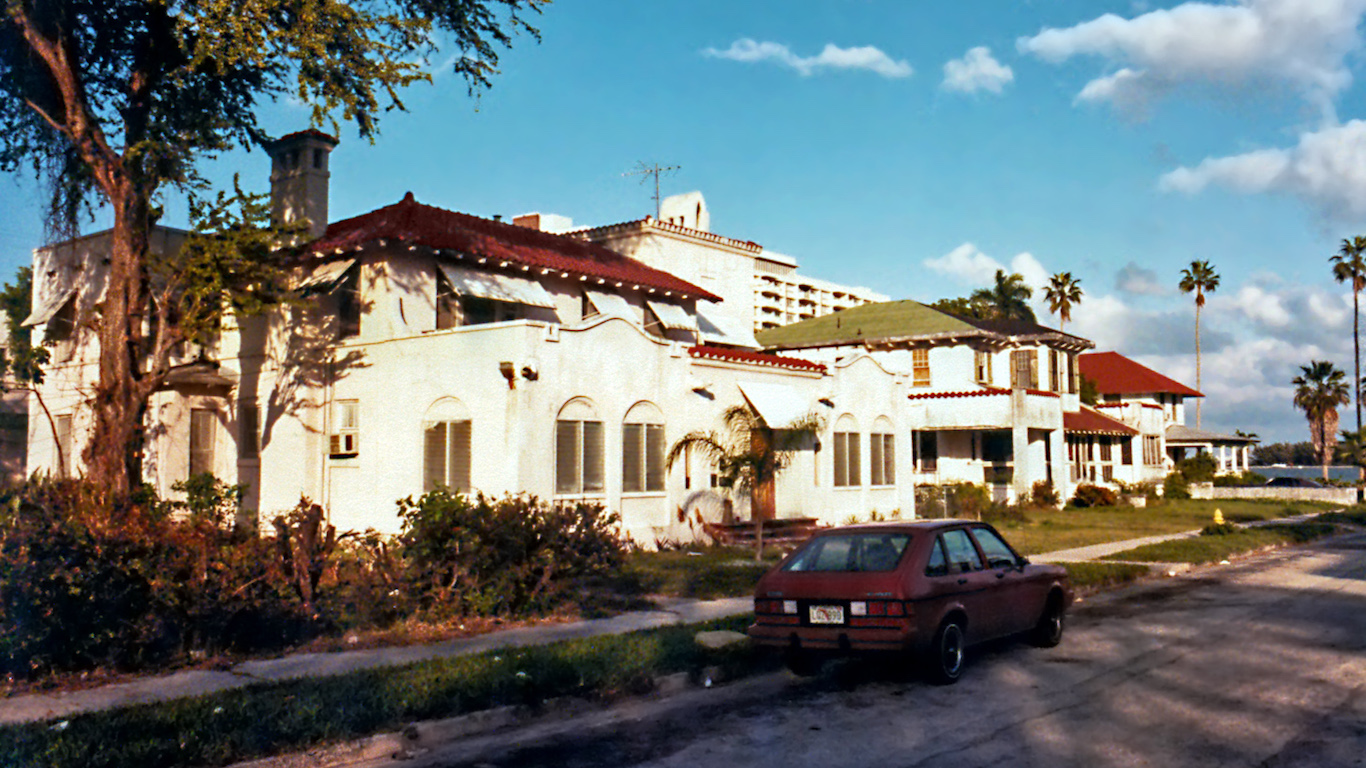
1984
Avg. floor area of a new single-family home: 1,780 sq. ft.
Avg. floor area per person: 657 sq. ft.
New homes started: 1,750,000
GDP per capita (inflation adjusted): $30,817

1985
Avg. floor area of a new single-family home: 1,785 sq. ft.
Avg. floor area per person: 664 sq. ft.
New homes started: 1,742,000
GDP per capita (inflation adjusted): $31,839
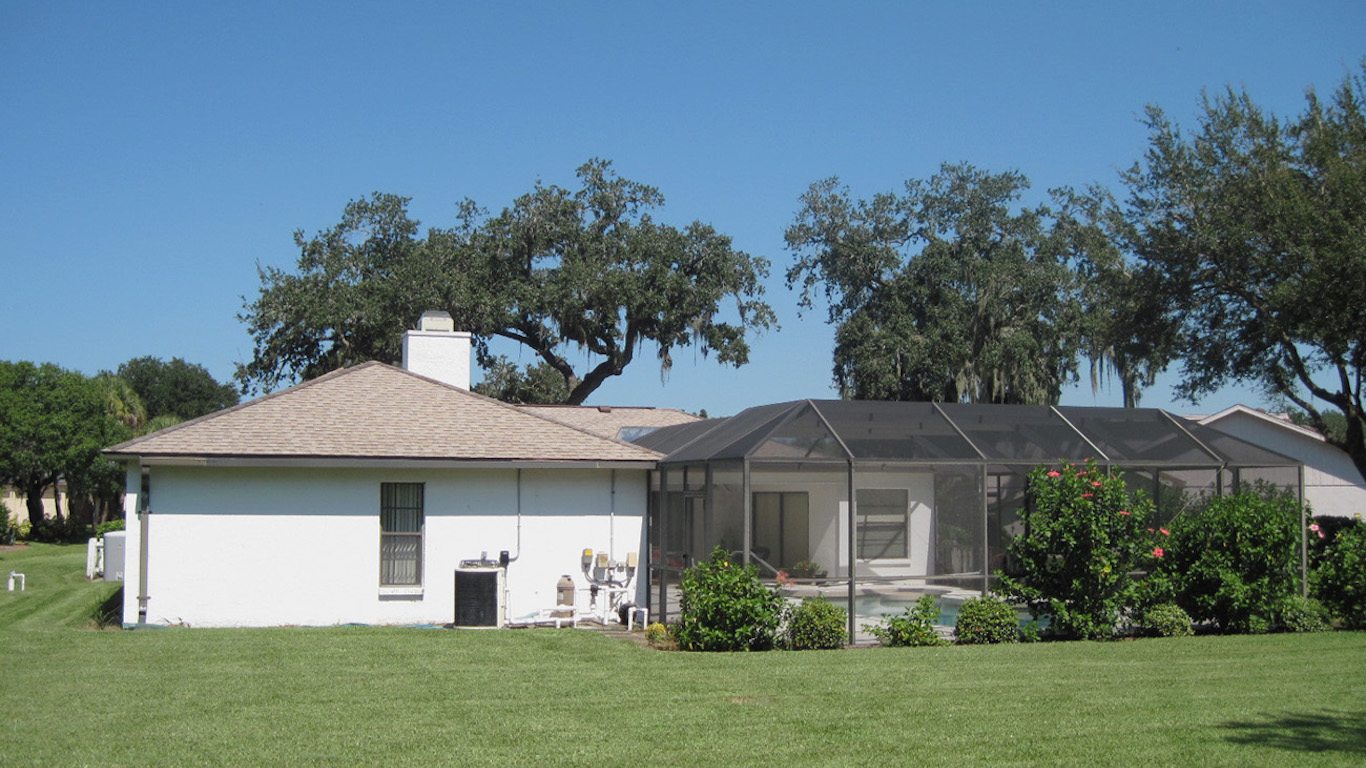
1986
Avg. floor area of a new single-family home: 1,825 sq. ft.
Avg. floor area per person: 684 sq. ft.
New homes started: 1,805,000
GDP per capita (inflation adjusted): $32,659
[in-text-ad-2]

1987
Avg. floor area of a new single-family home: 1,905 sq. ft.
Avg. floor area per person: 716 sq. ft.
New homes started: 1,621,000
GDP per capita (inflation adjusted): $33,489
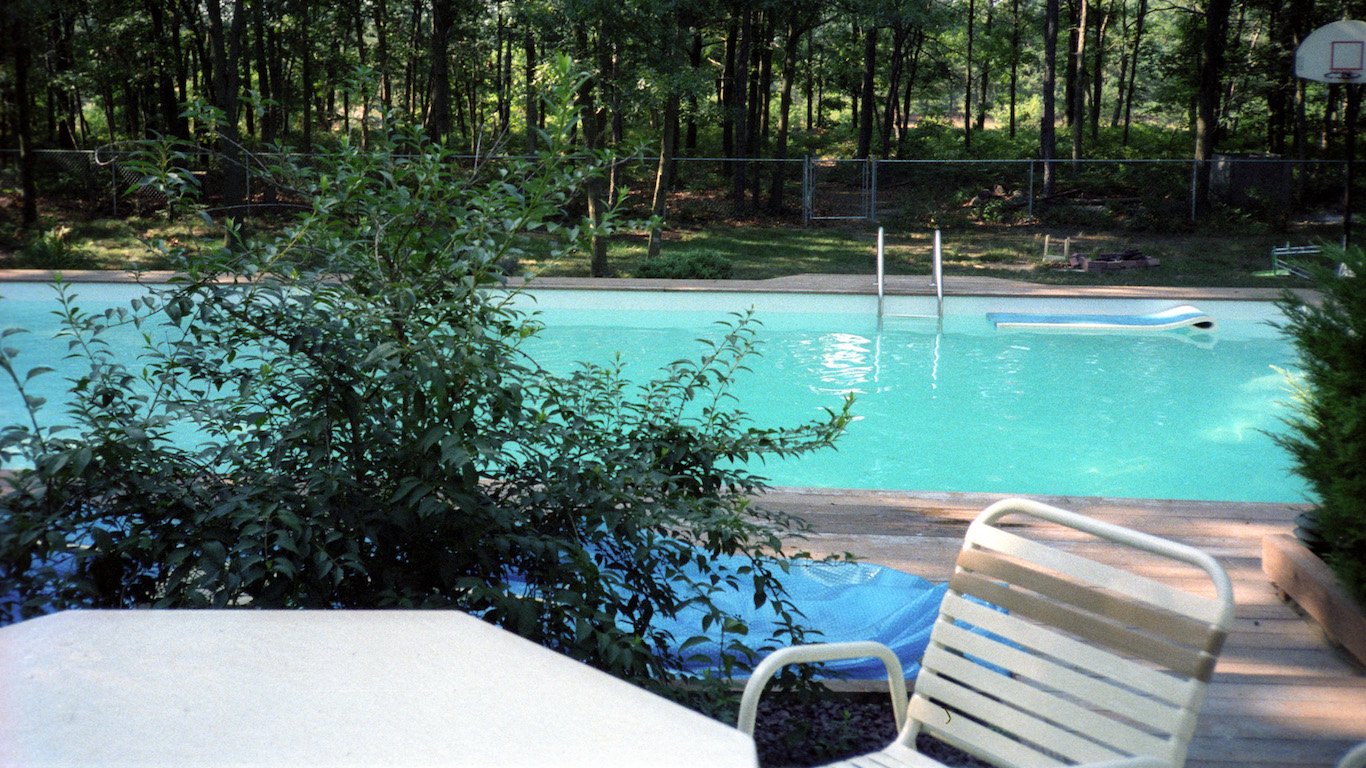
1988
Avg. floor area of a new single-family home: 1,995 sq. ft.
Avg. floor area per person: 756 sq. ft.
New homes started: 1,488,000
GDP per capita (inflation adjusted): $34,581
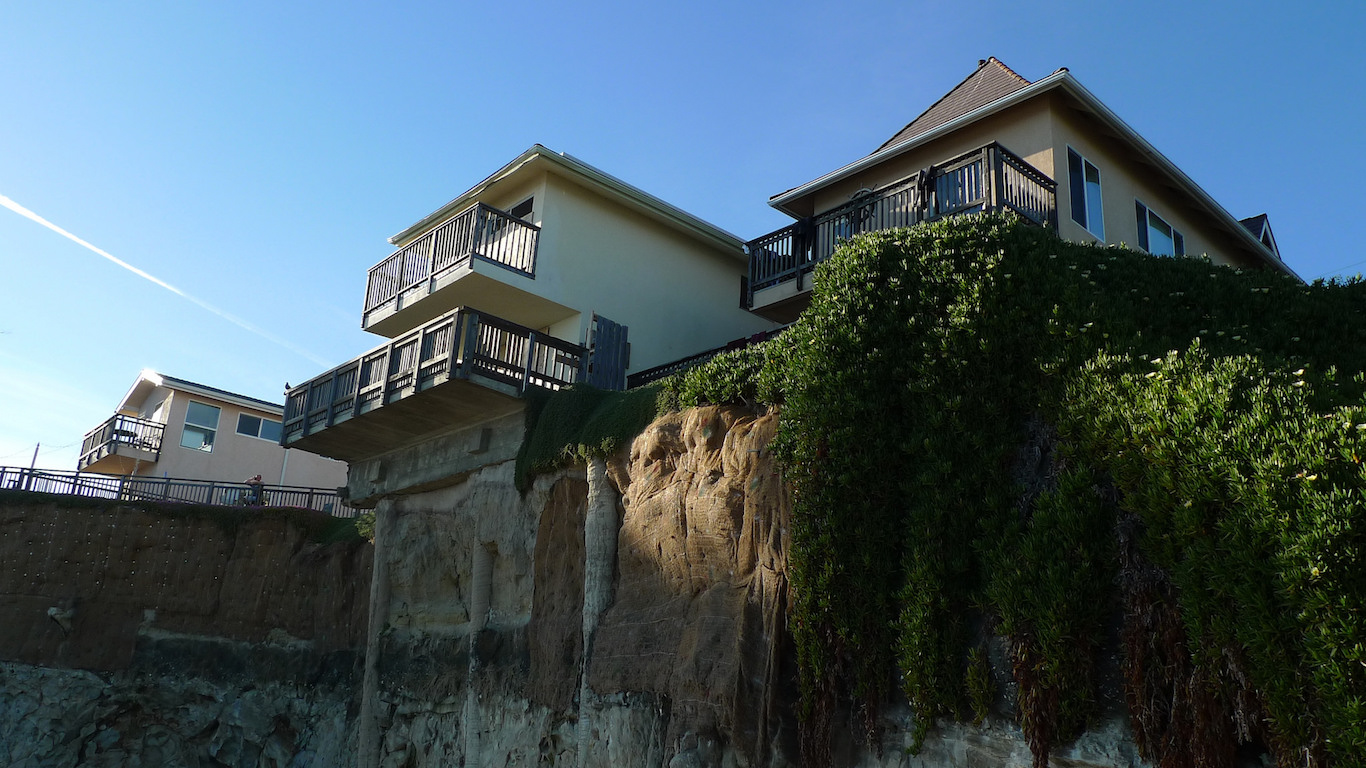
1989
Avg. floor area of a new single-family home: 2,035 sq. ft.
Avg. floor area per person: 777 sq. ft.
New homes started: 1,376,000
GDP per capita (inflation adjusted): $35,517
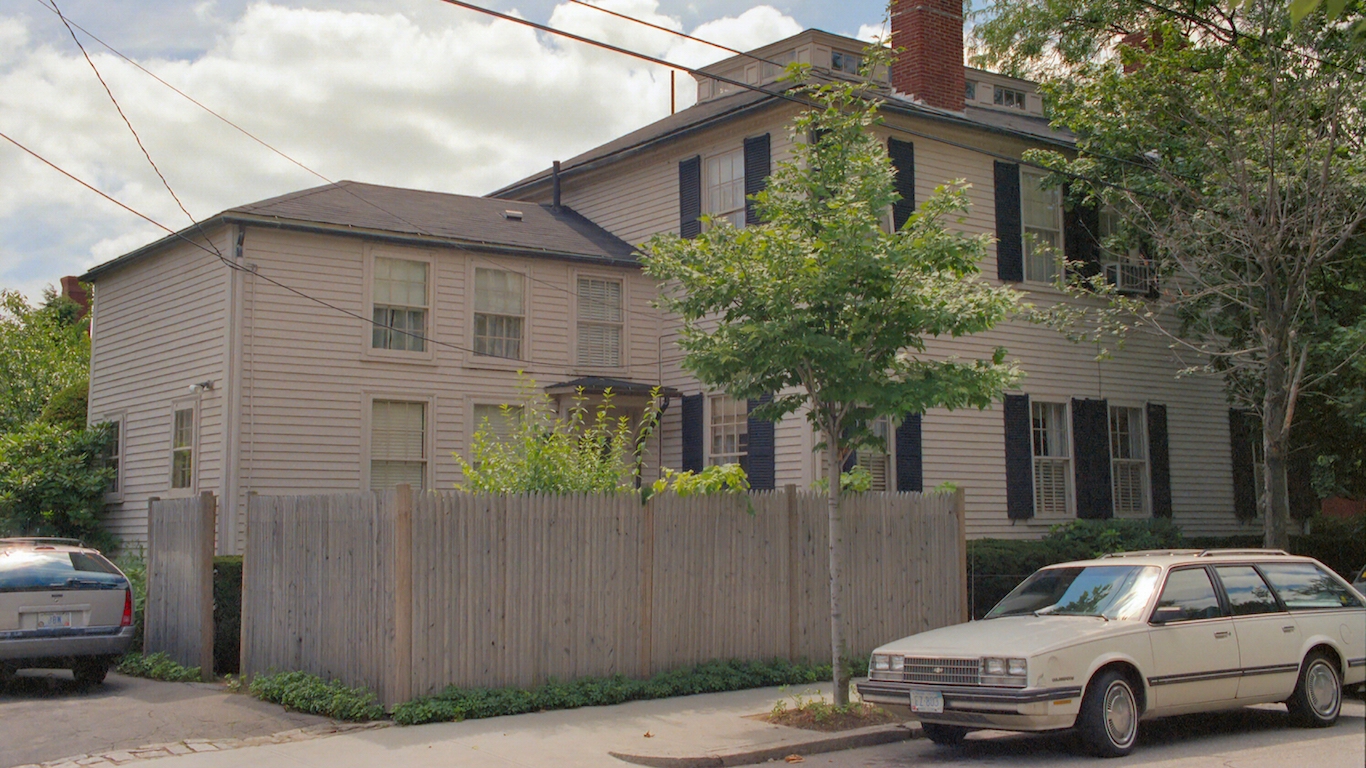
1990
Avg. floor area of a new single-family home: 2,080 sq. ft.
Avg. floor area per person: 791 sq. ft.
New homes started: 1,193,000
GDP per capita (inflation adjusted): $35,794
[in-text-ad]
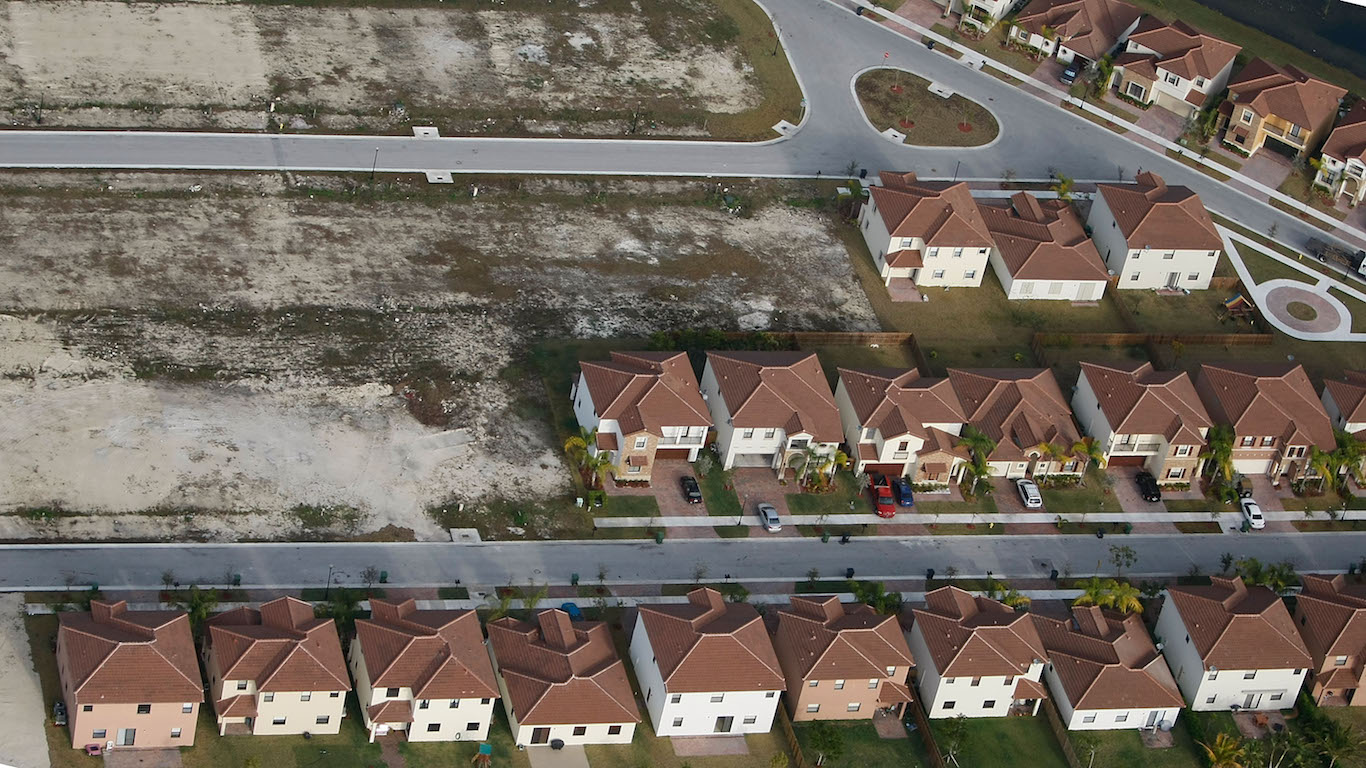
1991
Avg. floor area of a new single-family home: 2,075 sq. ft.
Avg. floor area per person: 789 sq. ft.
New homes started: 1,014,000
GDP per capita (inflation adjusted): $35,295
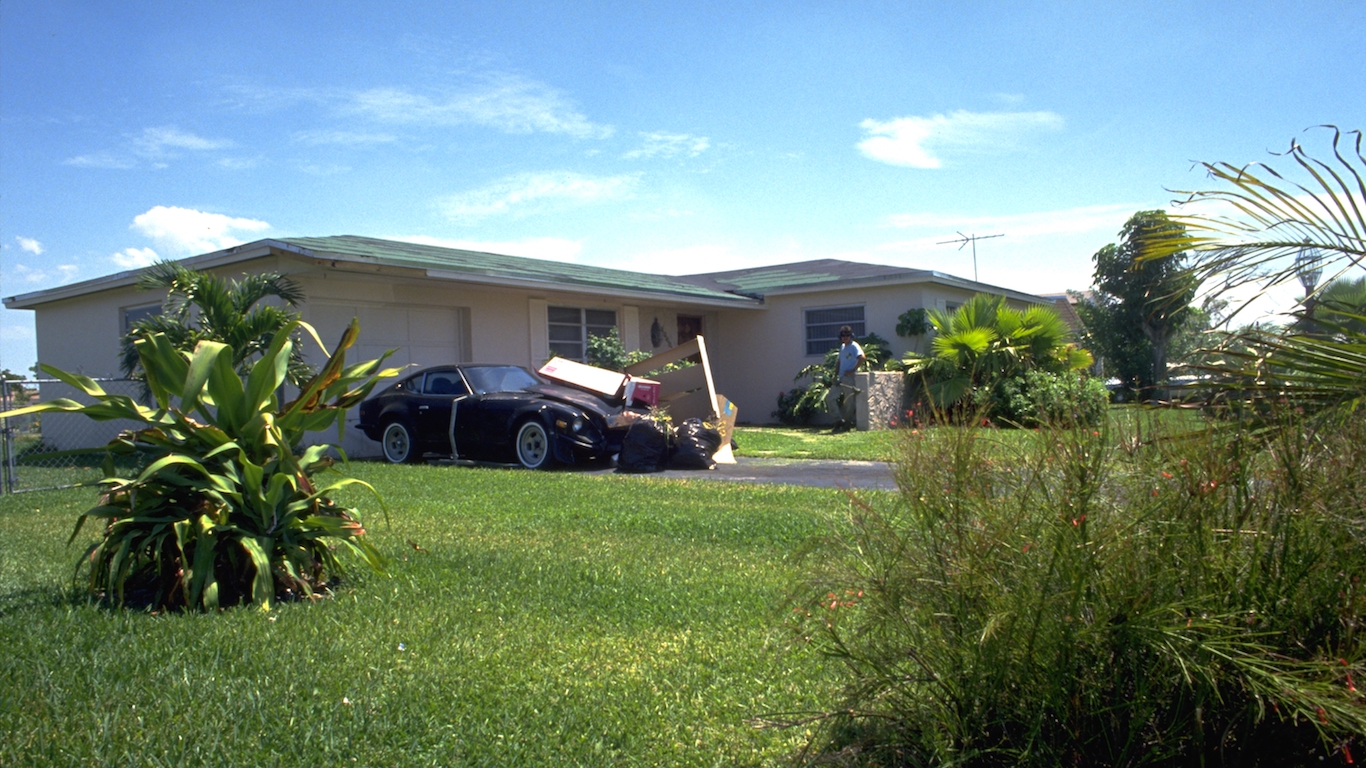
1992
Avg. floor area of a new single-family home: 2,095 sq. ft.
Avg. floor area per person: 800 sq. ft.
New homes started: 1,200,000
GDP per capita (inflation adjusted): $36,068
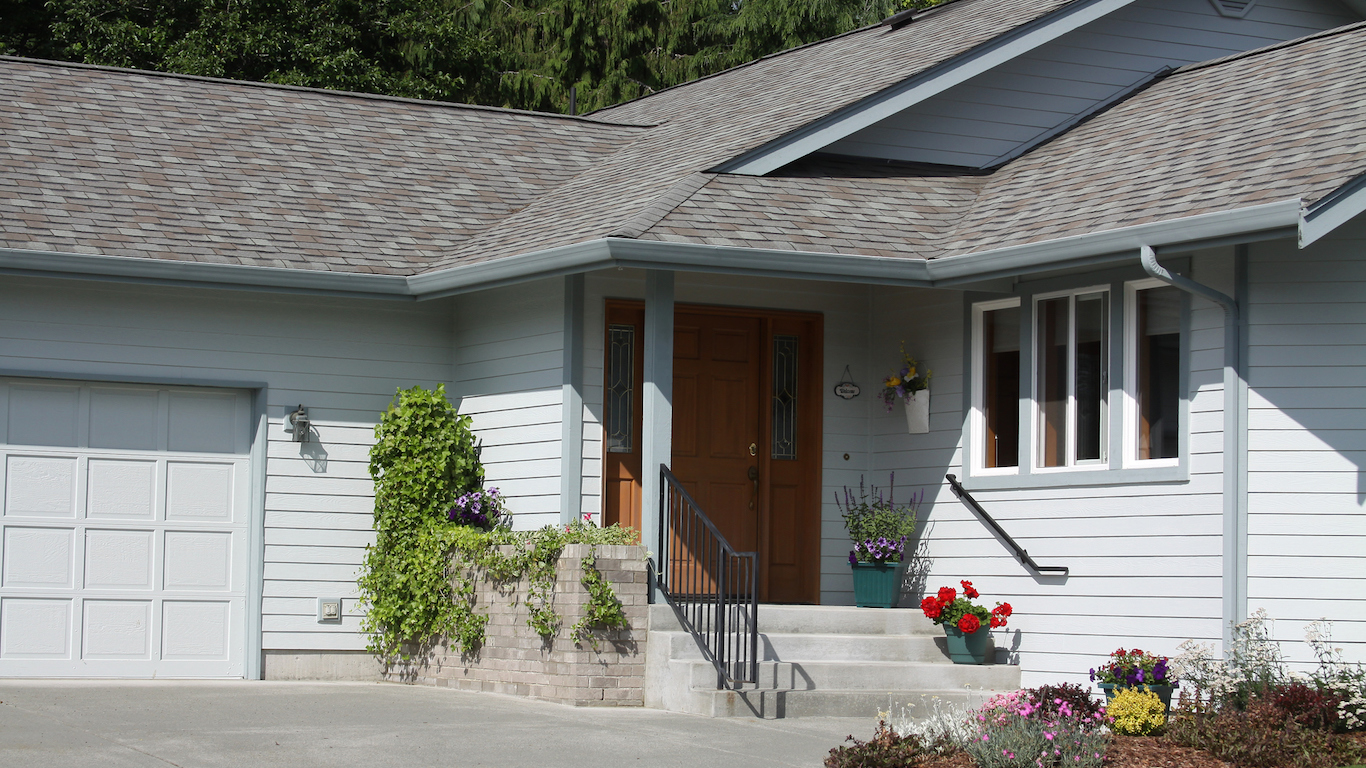
1993
Avg. floor area of a new single-family home: 2,095 sq. ft.
Avg. floor area per person: 788 sq. ft.
New homes started: 1,288,000
GDP per capita (inflation adjusted): $36,580
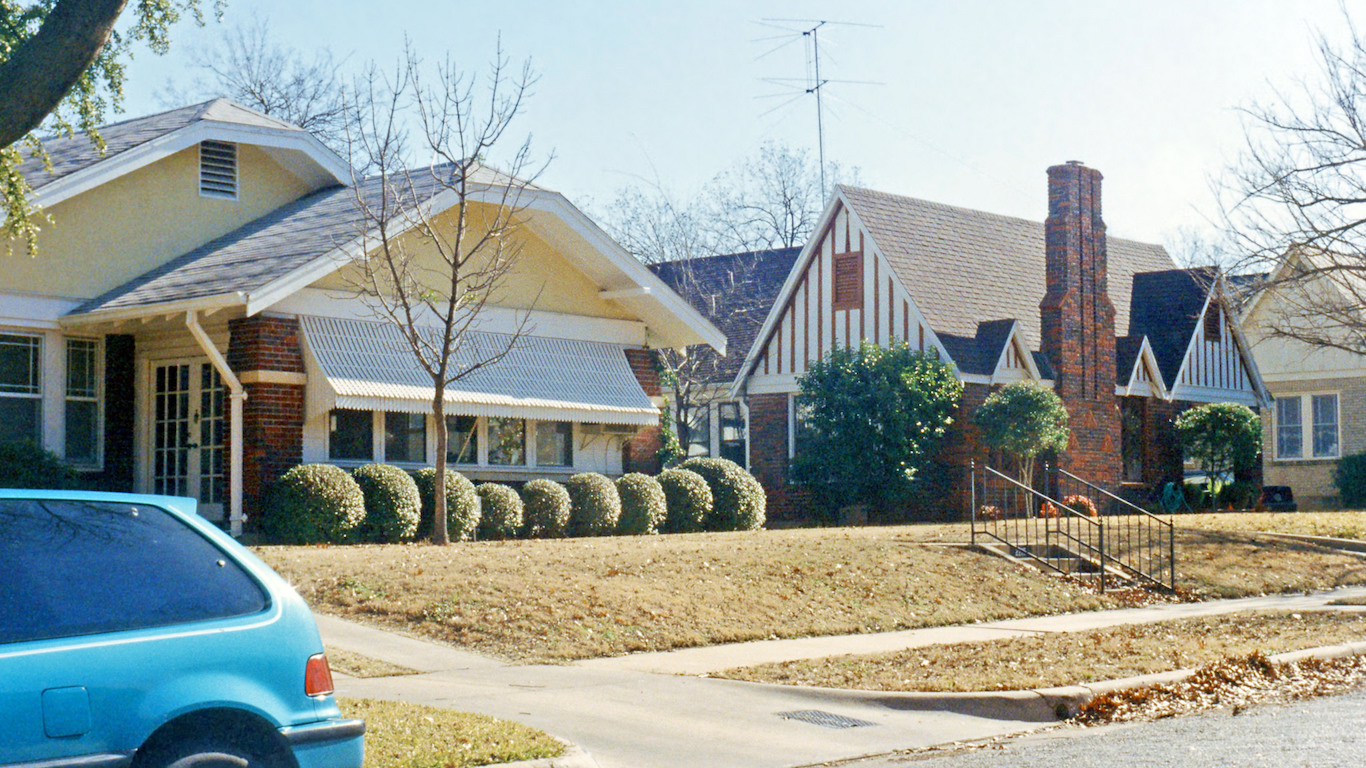
1994
Avg. floor area of a new single-family home: 2,100 sq. ft.
Avg. floor area per person: 787 sq. ft.
New homes started: 1,457,000
GDP per capita (inflation adjusted): $37,598
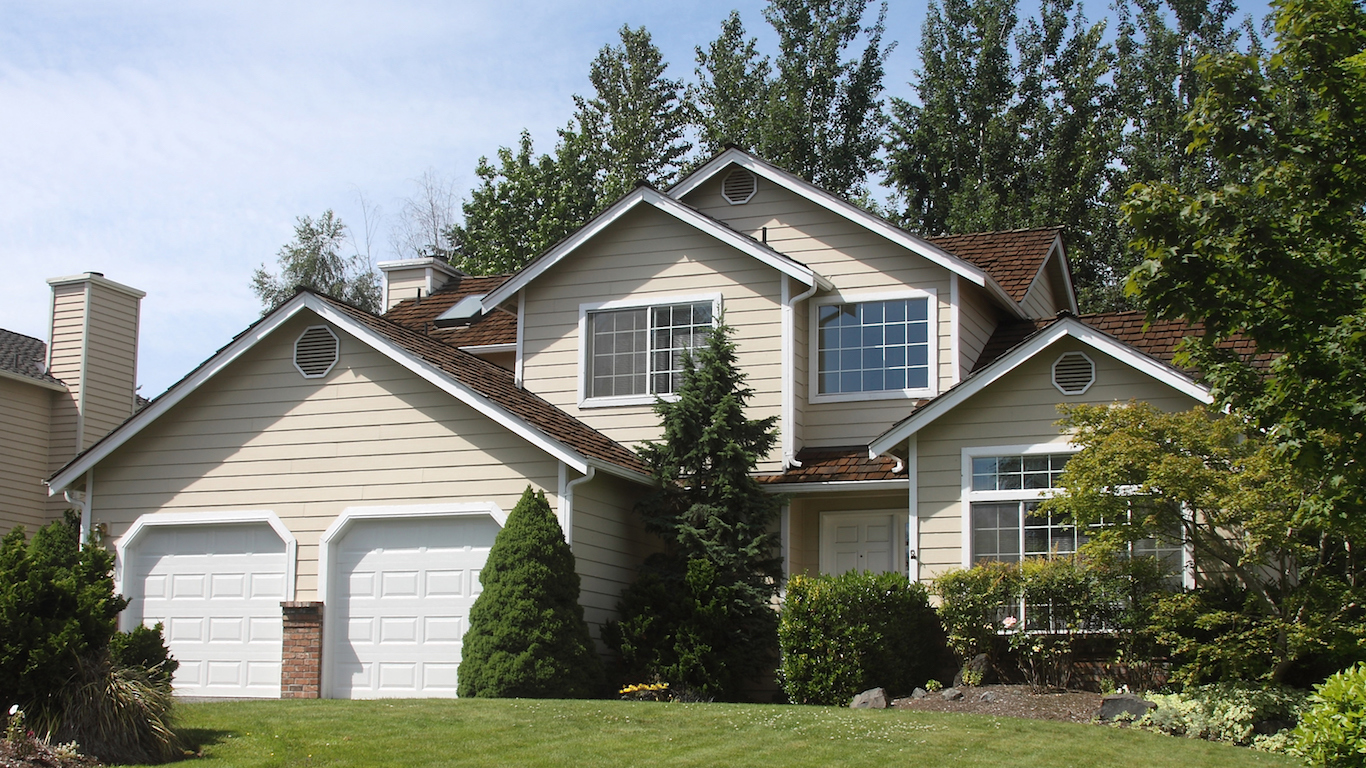
1995
Avg. floor area of a new single-family home: 2,095 sq. ft.
Avg. floor area per person: 791 sq. ft.
New homes started: 1,354,000
GDP per capita (inflation adjusted): $38,167
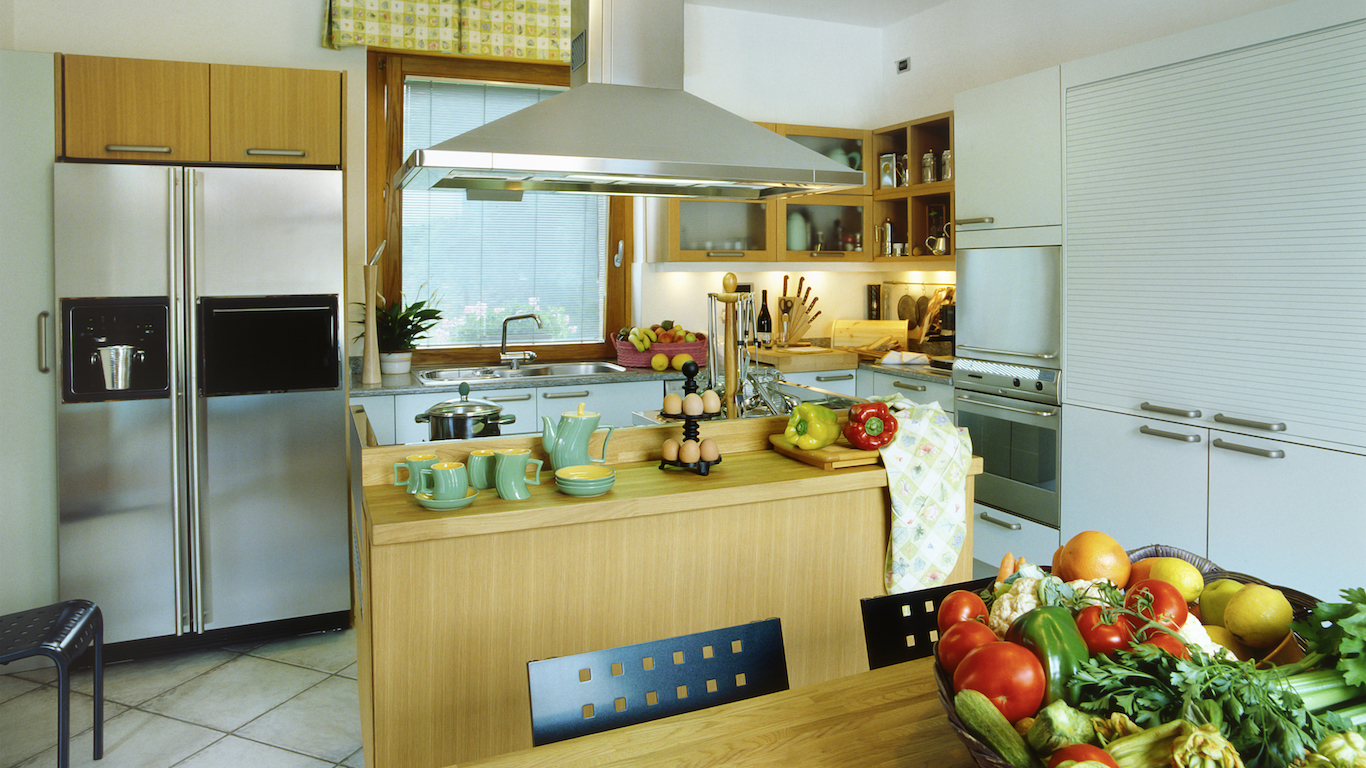
1996
Avg. floor area of a new single-family home: 2,120 sq. ft.
Avg. floor area per person: 800 sq. ft.
New homes started: 1,477,000
GDP per capita (inflation adjusted): $39,156
[in-text-ad-2]
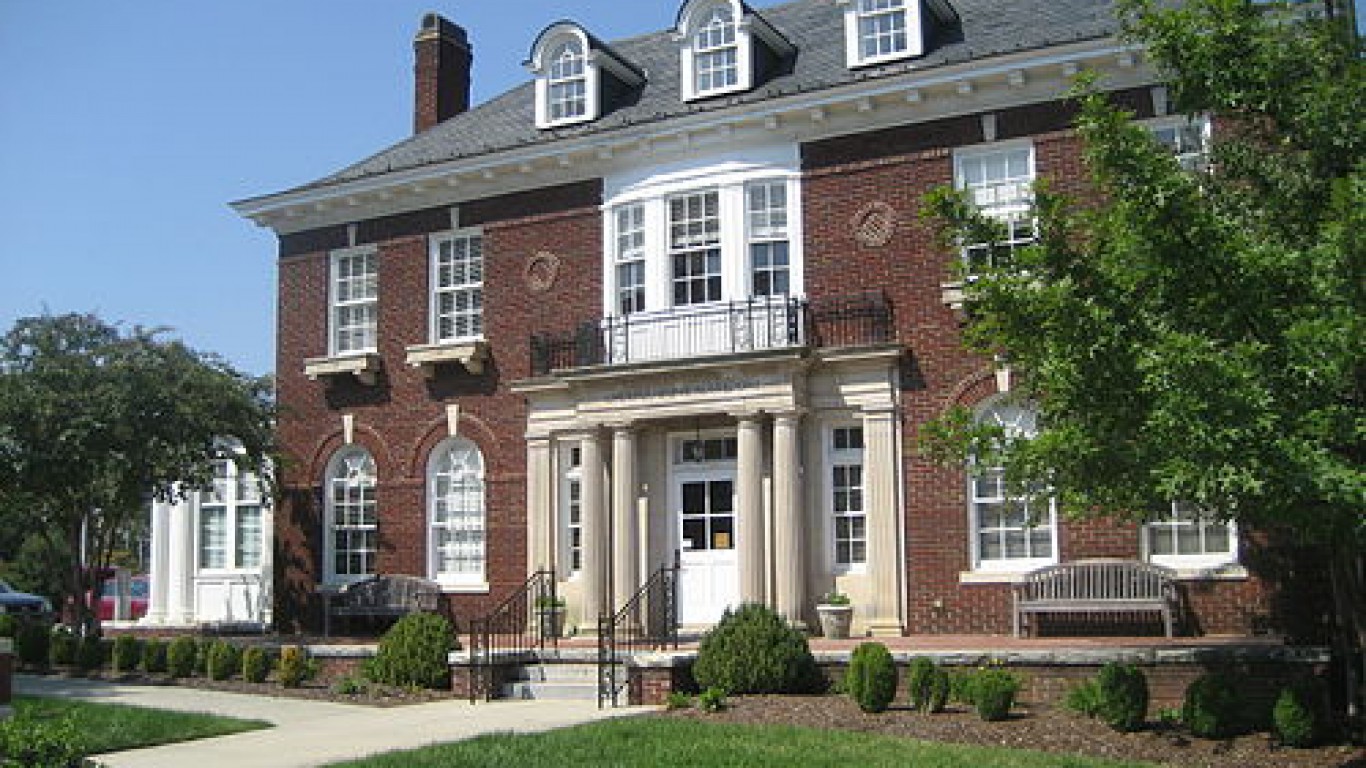
1997
Avg. floor area of a new single-family home: 2,150 sq. ft.
Avg. floor area per person: 814 sq. ft.
New homes started: 1,474,000
GDP per capita (inflation adjusted): $40,427
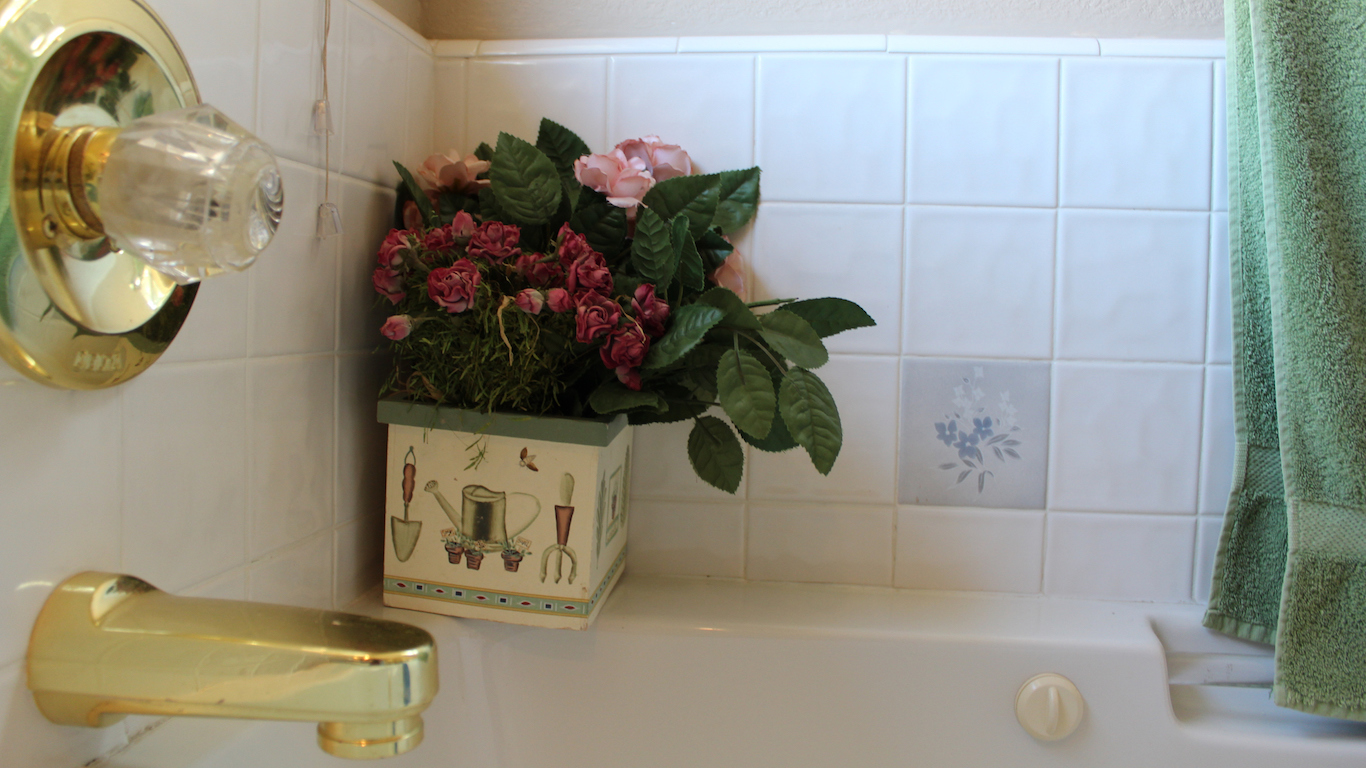
1998
Avg. floor area of a new single-family home: 2,190 sq. ft.
Avg. floor area per person: 836 sq. ft.
New homes started: 1,617,000
GDP per capita (inflation adjusted): $41,737
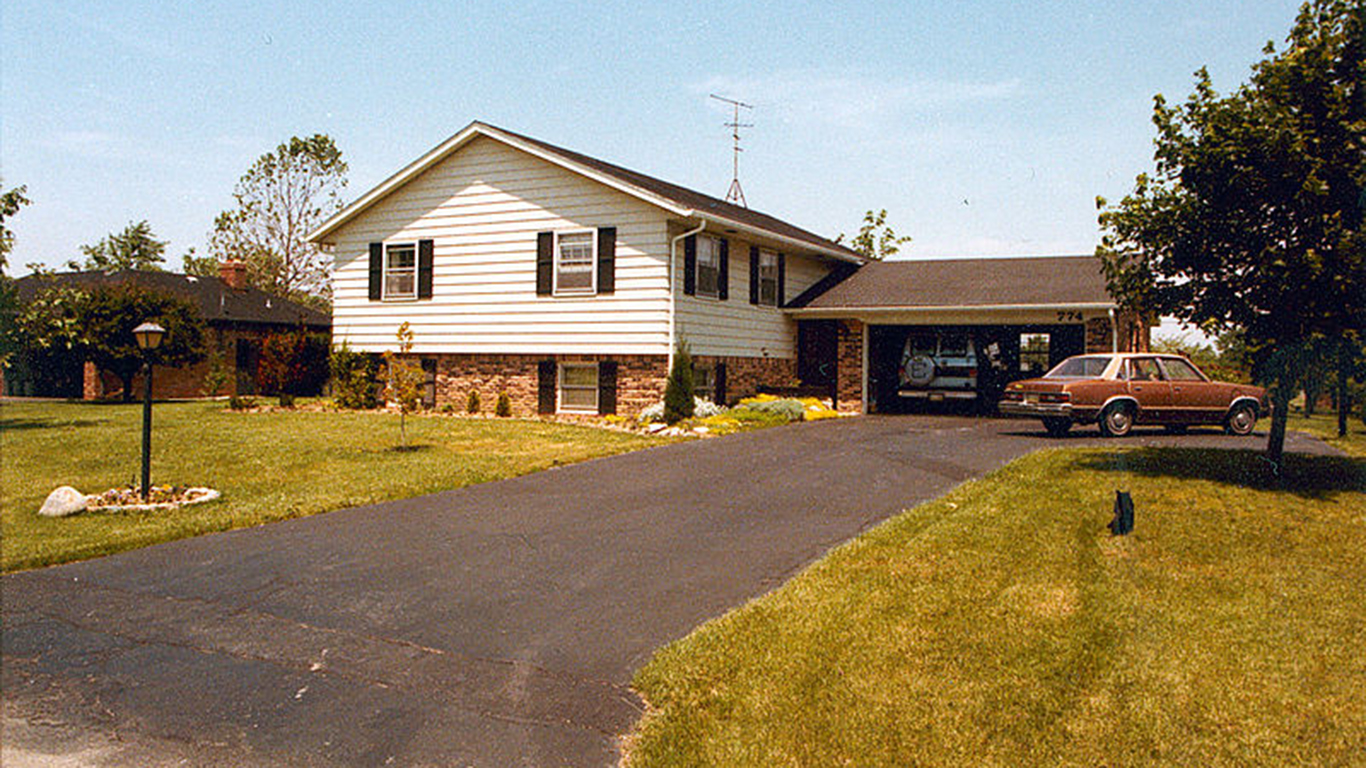
1999
Avg. floor area of a new single-family home: 2,223 sq. ft.
Avg. floor area per person: 852 sq. ft.
New homes started: 1,640,900
GDP per capita (inflation adjusted): $43,196
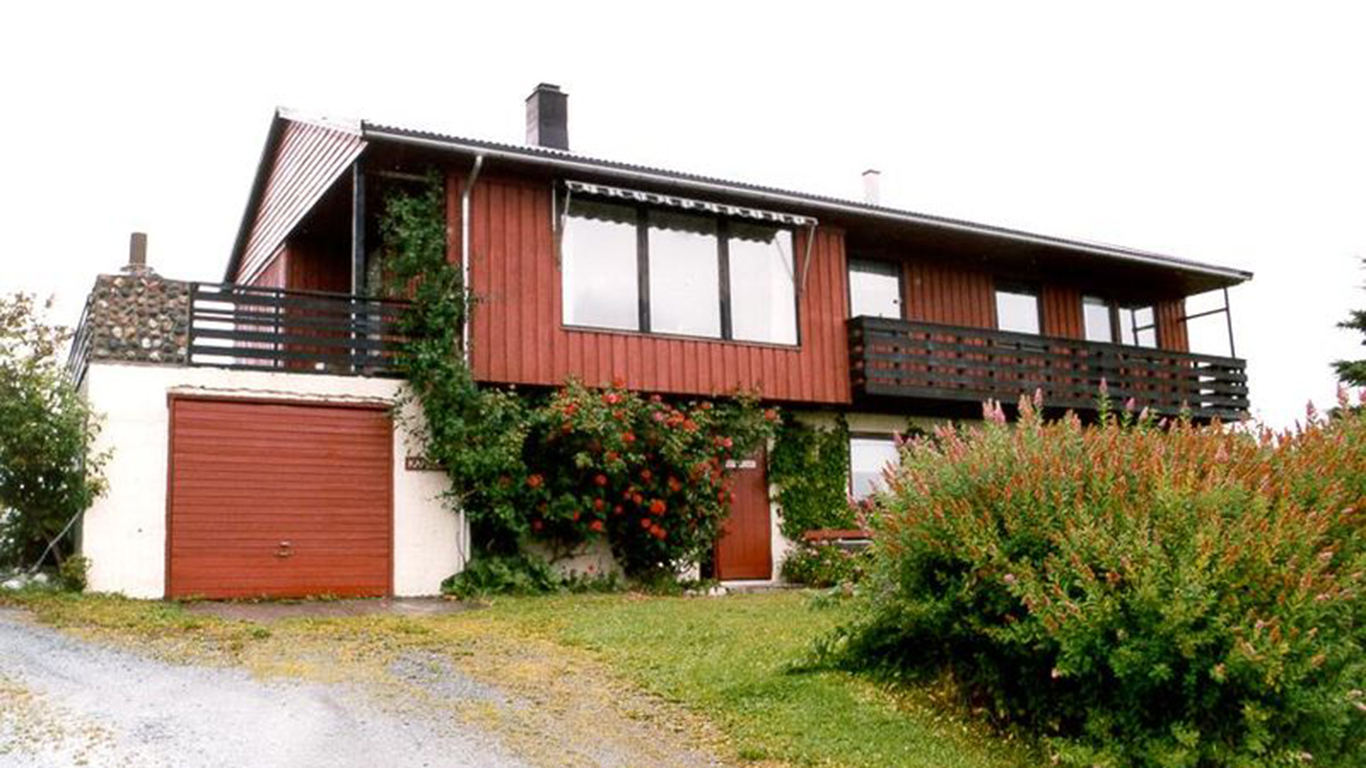
2000
Avg. floor area of a new single-family home: 2,266 sq. ft.
Avg. floor area per person: 865 sq. ft.
New homes started: 1,568,700
GDP per capita (inflation adjusted): $44,475
[in-text-ad]
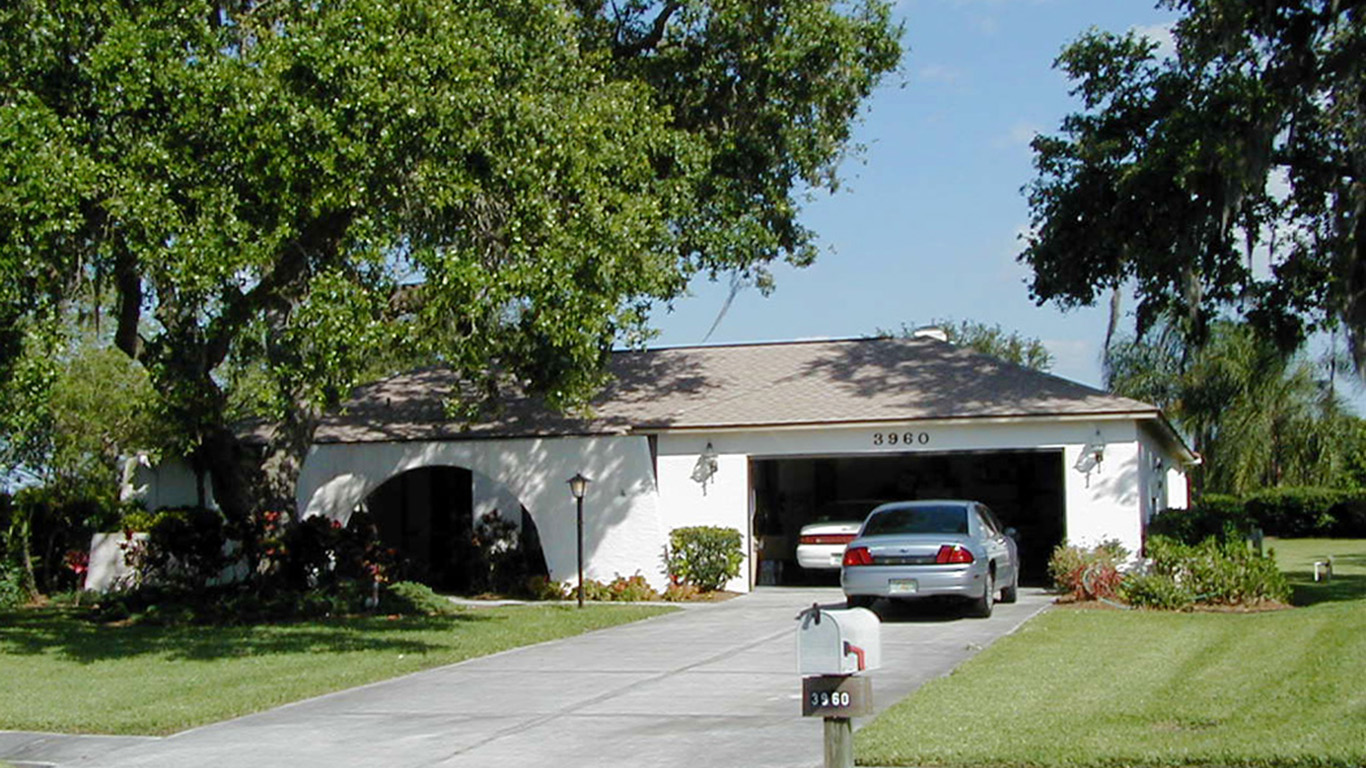
2001
Avg. floor area of a new single-family home: 2,324 sq. ft.
Avg. floor area per person: 901 sq. ft.
New homes started: 1,602,700
GDP per capita (inflation adjusted): $44,464
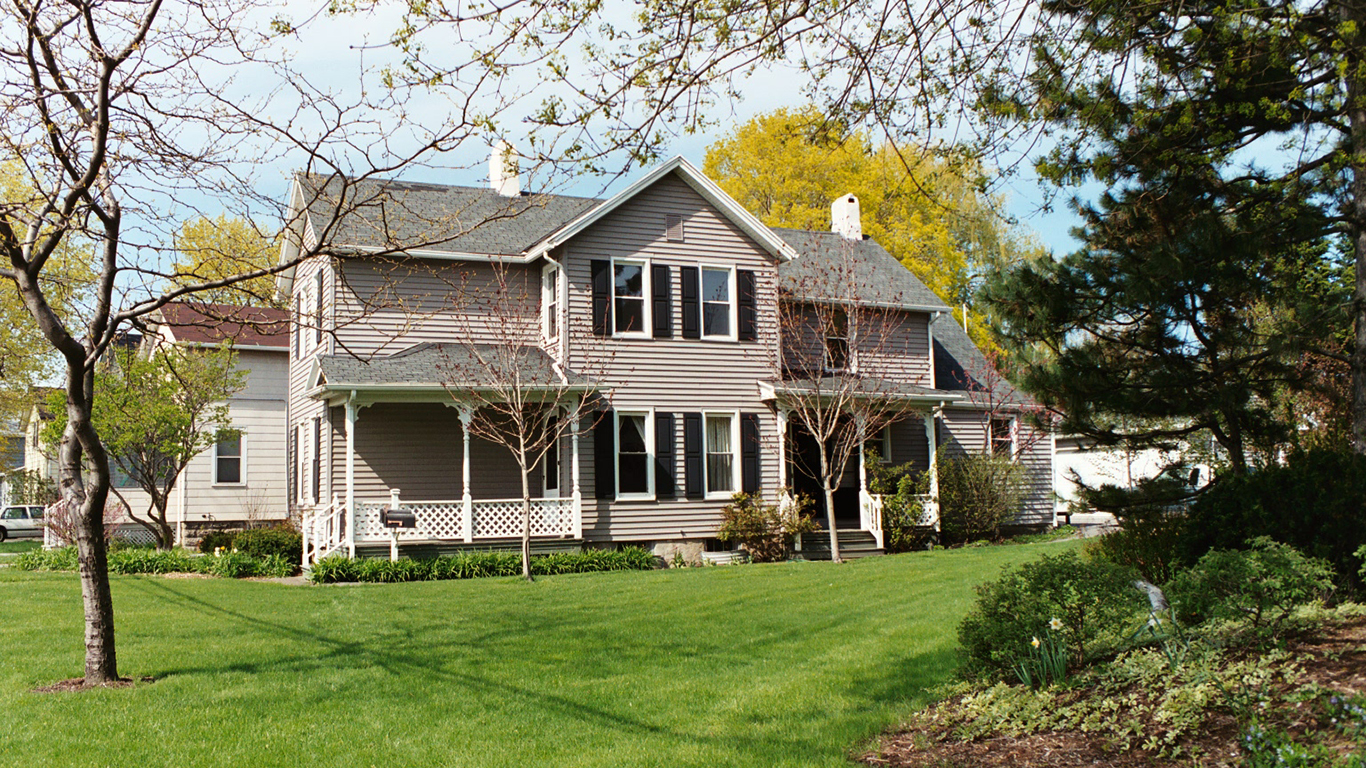
2002
Avg. floor area of a new single-family home: 2,320 sq. ft.
Avg. floor area per person: 899 sq. ft.
New homes started: 1,704,900
GDP per capita (inflation adjusted): $44,829
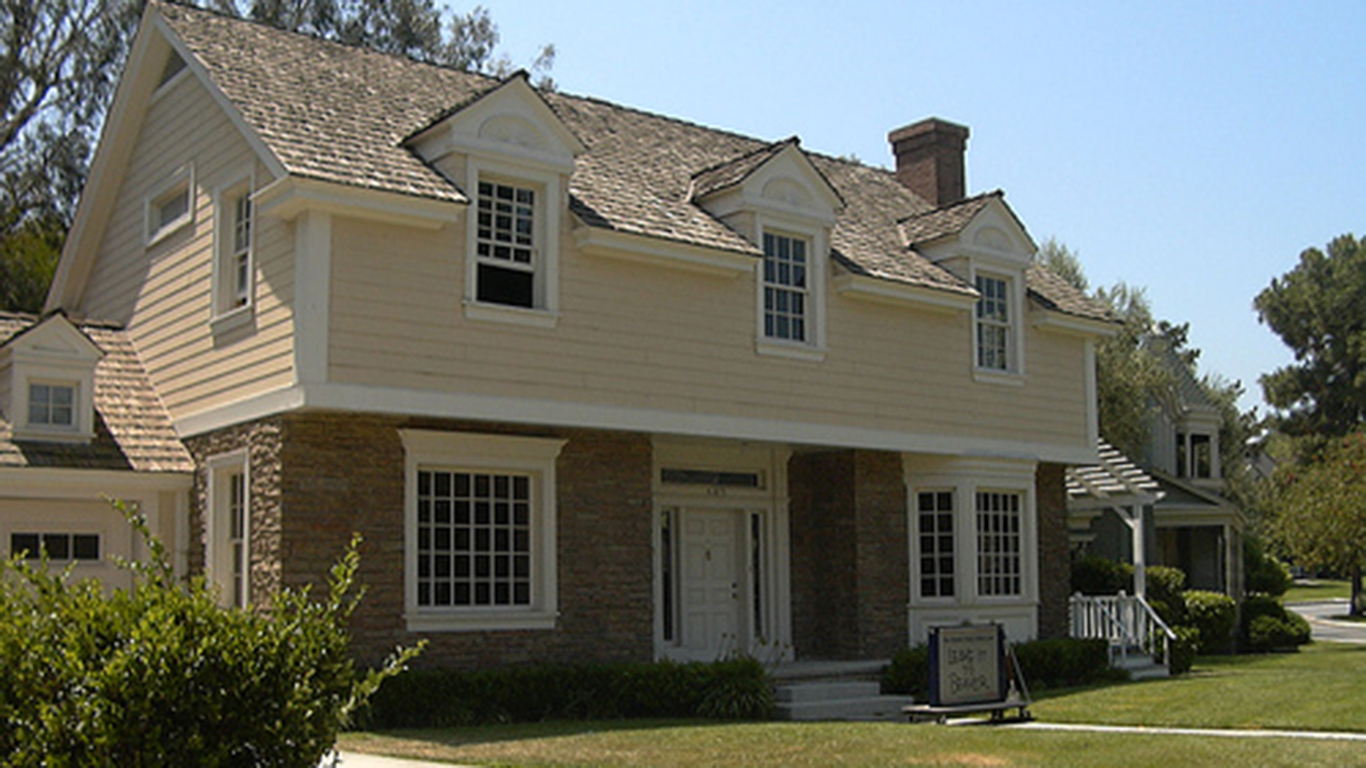
2003
Avg. floor area of a new single-family home: 2,330 sq. ft.
Avg. floor area per person: 907 sq. ft.
New homes started: 1,847,700
GDP per capita (inflation adjusted): $45,664
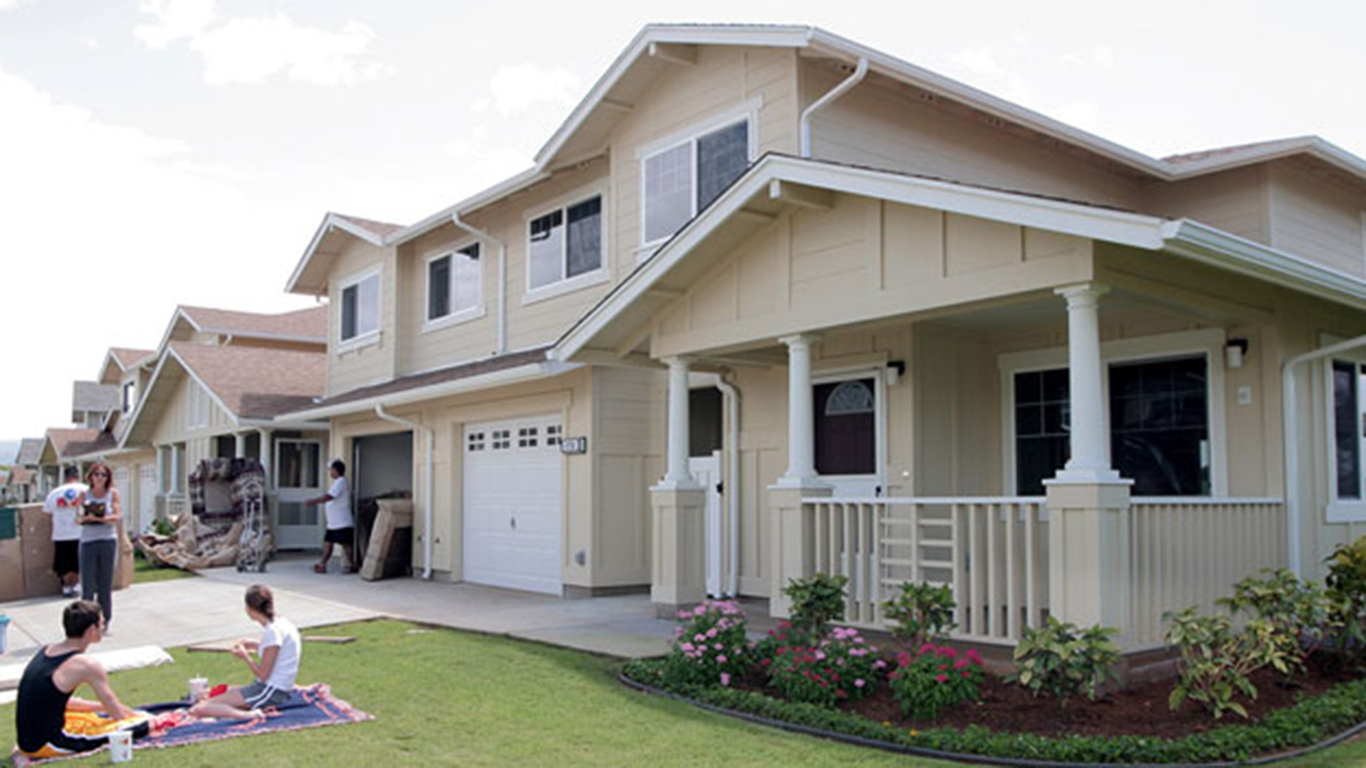
2004
Avg. floor area of a new single-family home: 2,349 sq. ft.
Avg. floor area per person: 914 sq. ft.
New homes started: 1,955,800
GDP per capita (inflation adjusted): $46,967
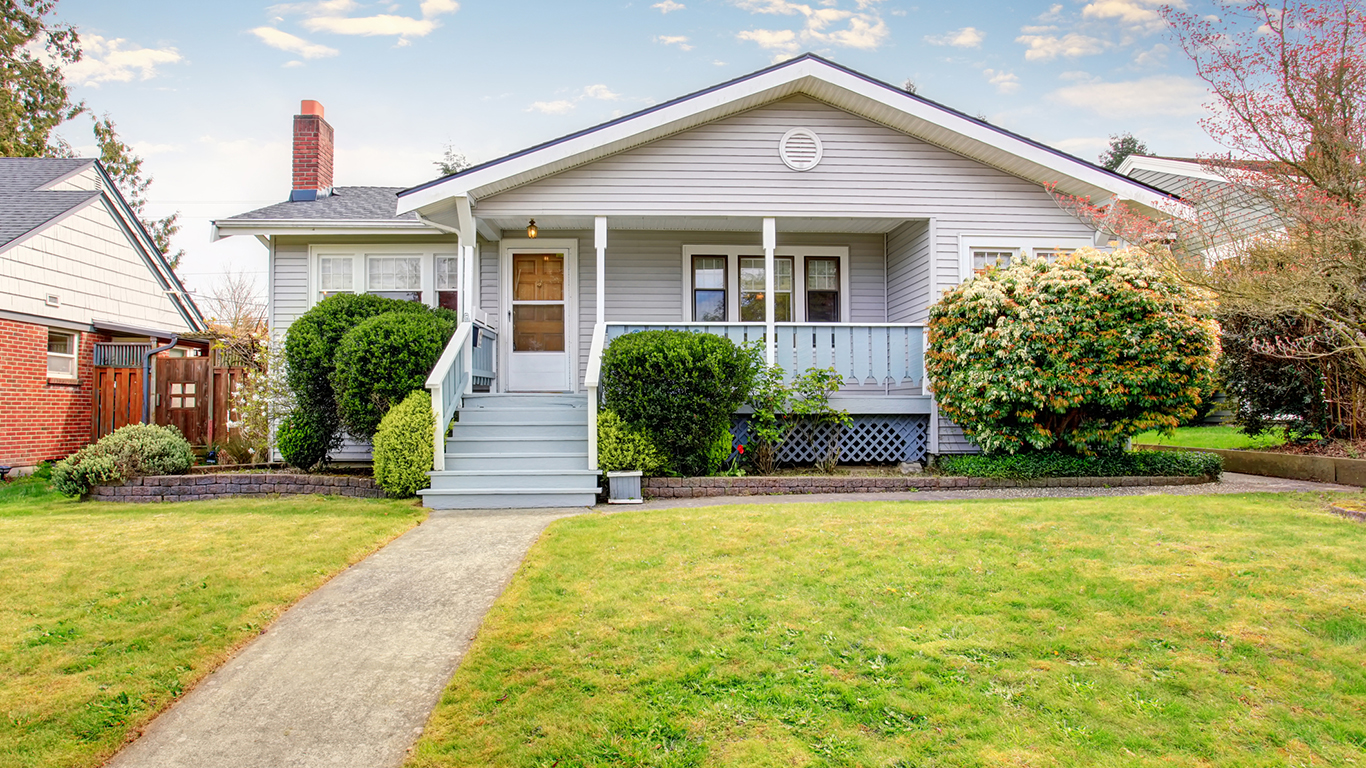
2005
Avg. floor area of a new single-family home: 2,434 sq. ft.
Avg. floor area per person: 947 sq. ft.
New homes started: 2,068,300
GDP per capita (inflation adjusted): $48,090
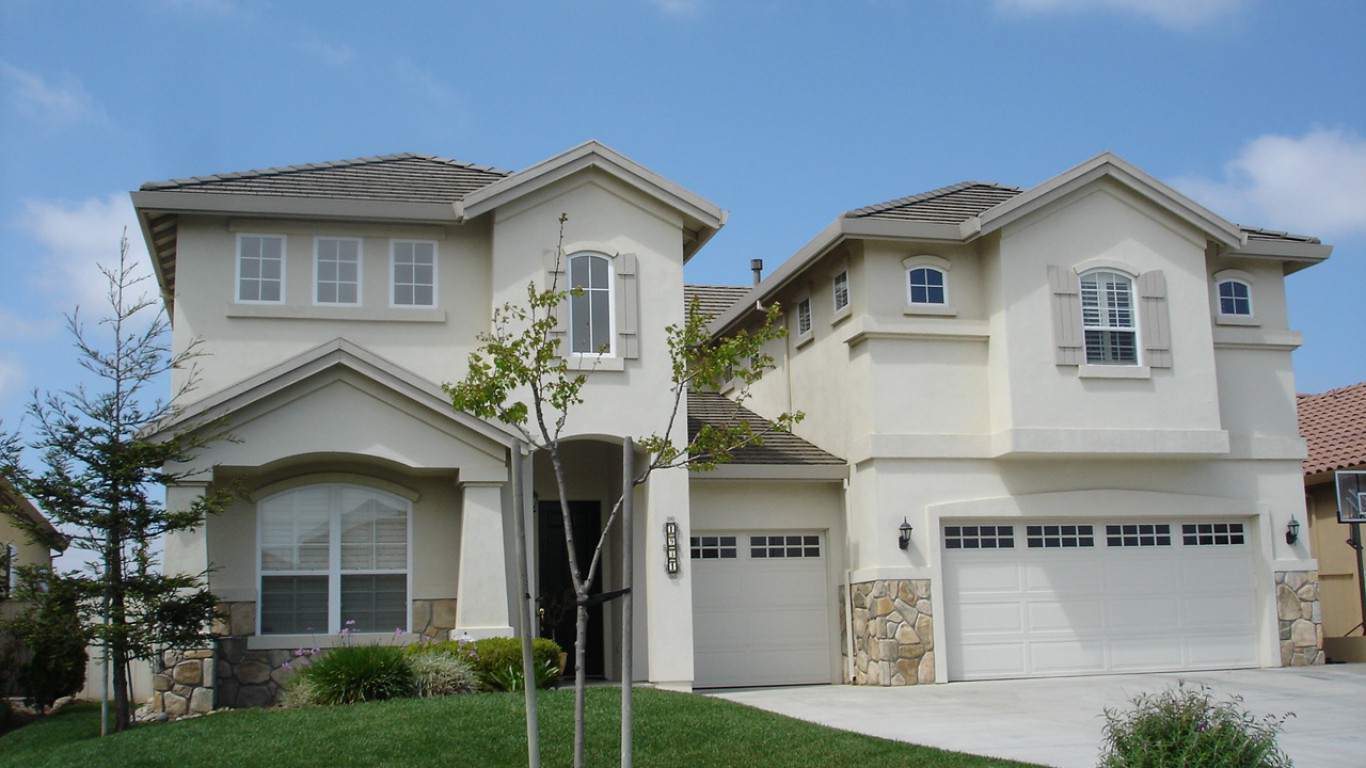
2006
Avg. floor area of a new single-family home: 2,469 sq. ft.
Avg. floor area per person: 961 sq. ft.
New homes started: 1,800,900
GDP per capita (inflation adjusted): $48,905
[in-text-ad-2]
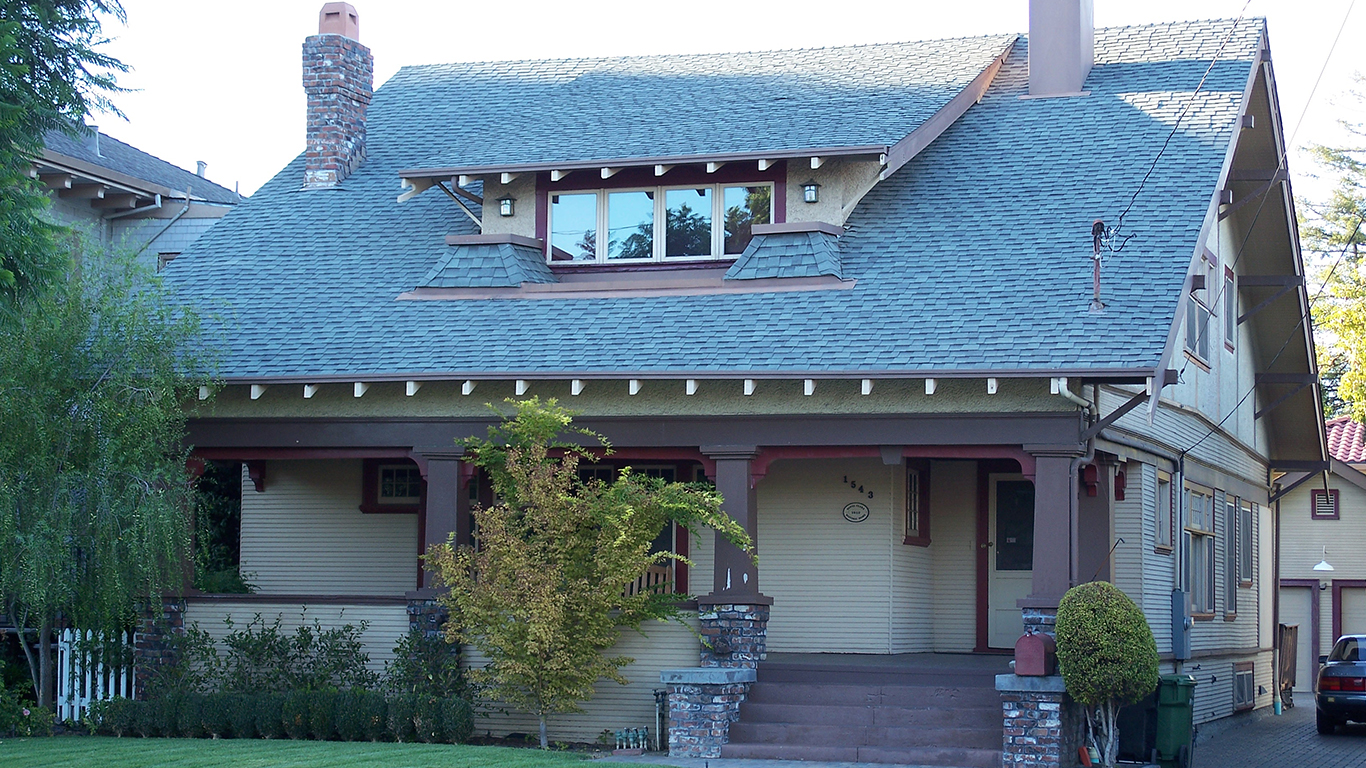
2007
Avg. floor area of a new single-family home: 2,521 sq. ft.
Avg. floor area per person: 985 sq. ft.
New homes started: 1,355,000
GDP per capita (inflation adjusted): $49,300
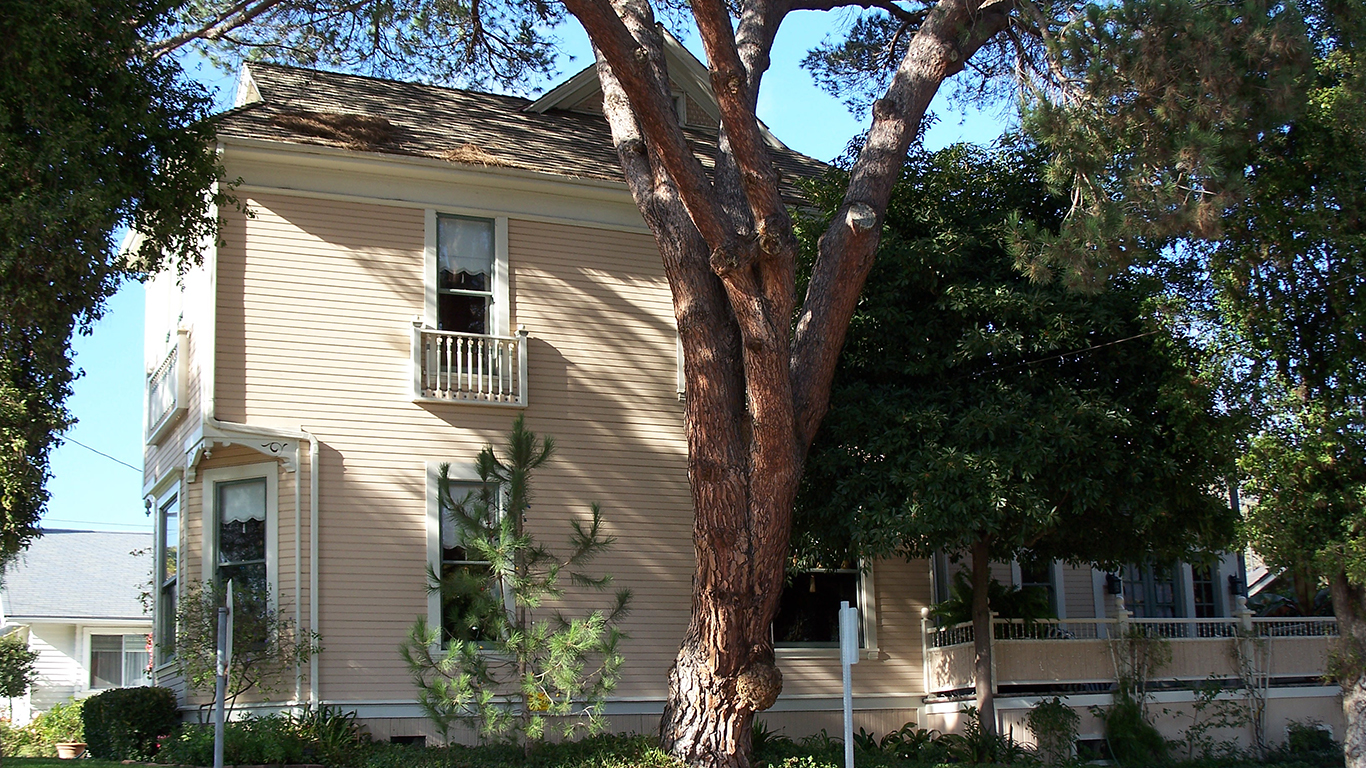
2008
Avg. floor area of a new single-family home: 2,519 sq. ft.
Avg. floor area per person: 984 sq. ft.
New homes started: 905,500
GDP per capita (inflation adjusted): $48,697
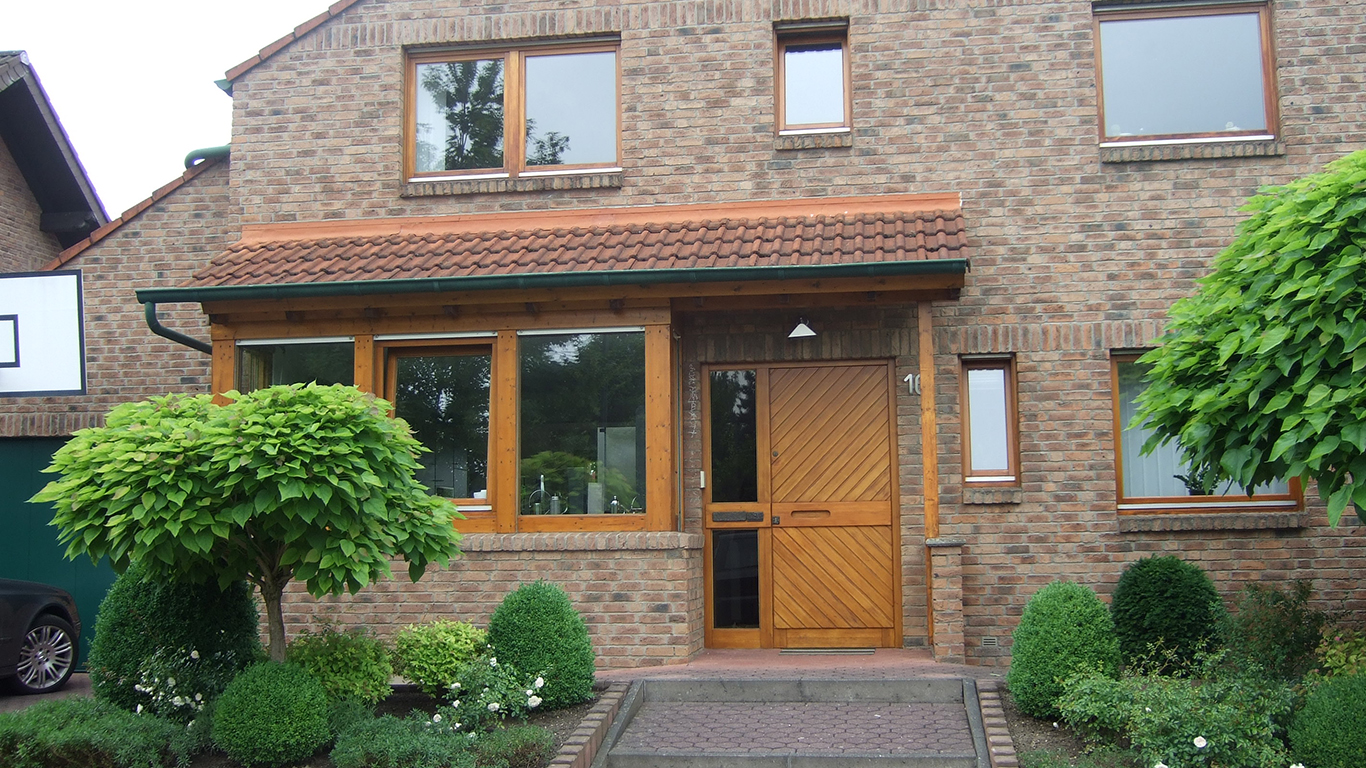
2009
Avg. floor area of a new single-family home: 2,438 sq. ft.
Avg. floor area per person: 949 sq. ft.
New homes started: 554,000
GDP per capita (inflation adjusted): $46,930
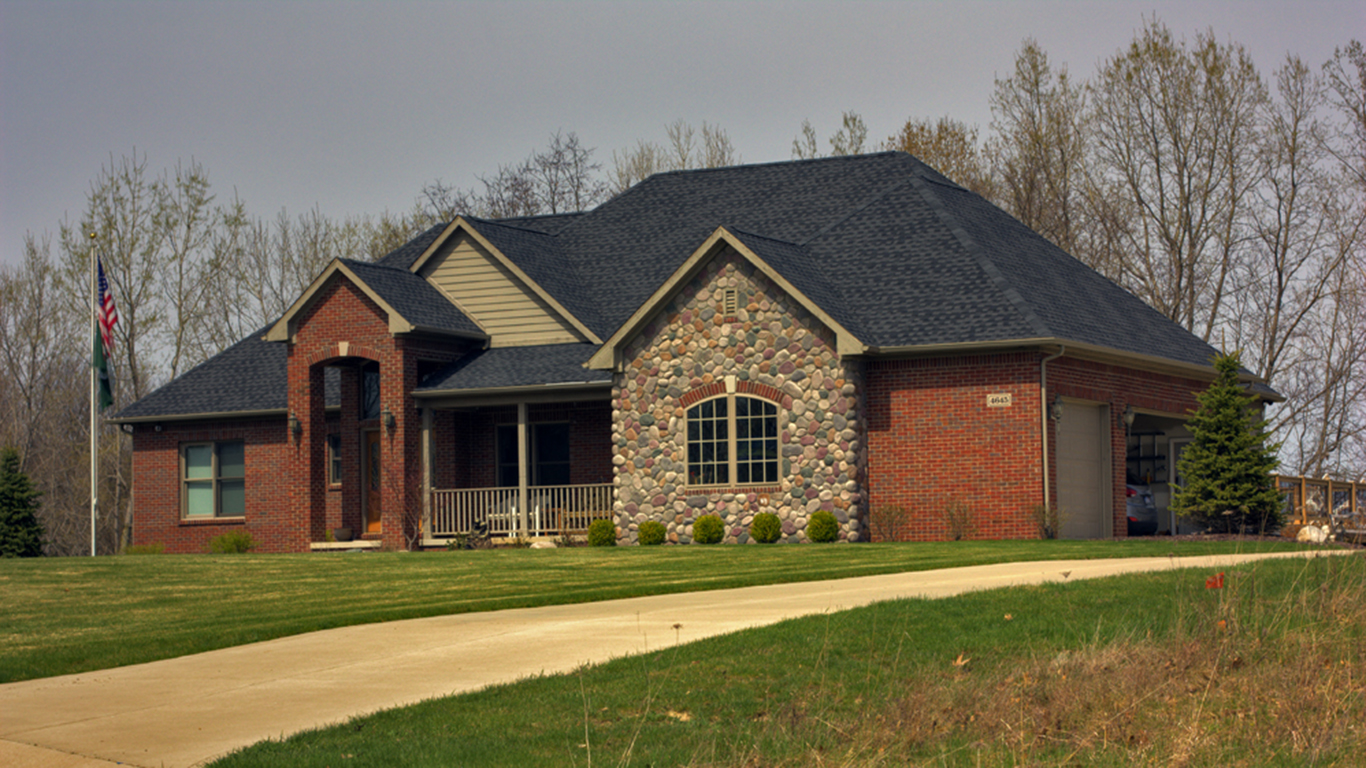
2010
Avg. floor area of a new single-family home: 2,392 sq. ft.
Avg. floor area per person: 924 sq. ft.
New homes started: 586,900
GDP per capita (inflation adjusted): $47,721
[in-text-ad]
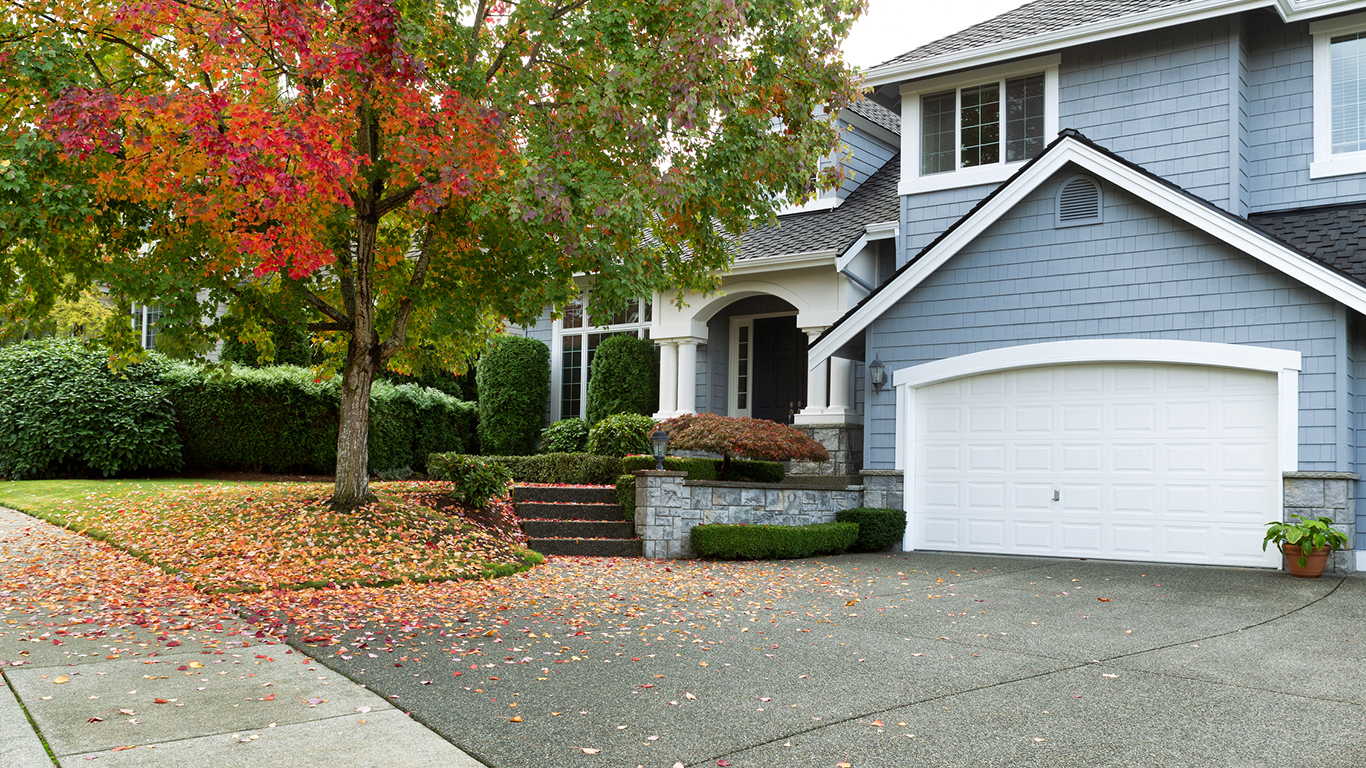
2011
Avg. floor area of a new single-family home: 2,480 sq. ft.
Avg. floor area per person: 969 sq. ft.
New homes started: 608,800
GDP per capita (inflation adjusted): $48,128
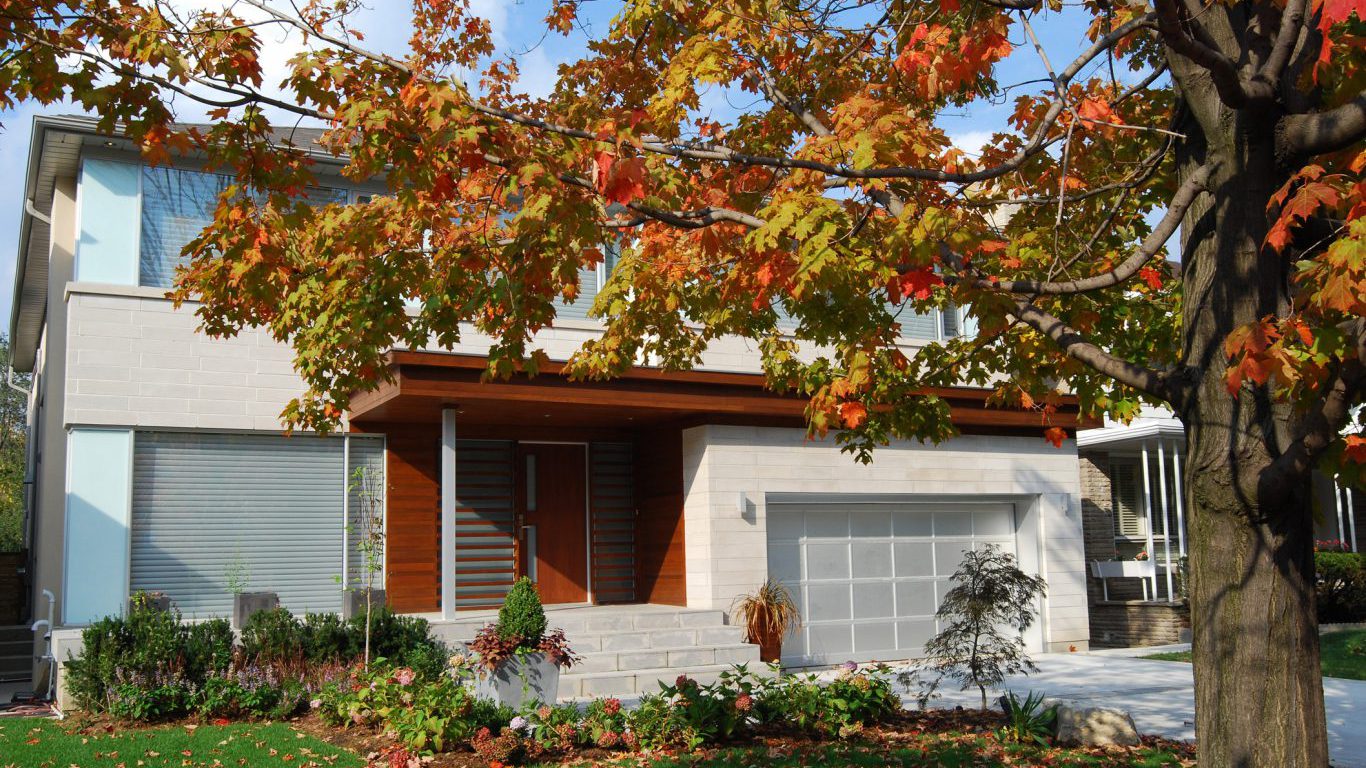
2012
Avg. floor area of a new single-family home: 2,505 sq. ft.
Avg. floor area per person: 982 sq. ft.
New homes started: 780,600
GDP per capita (inflation adjusted): $48,842
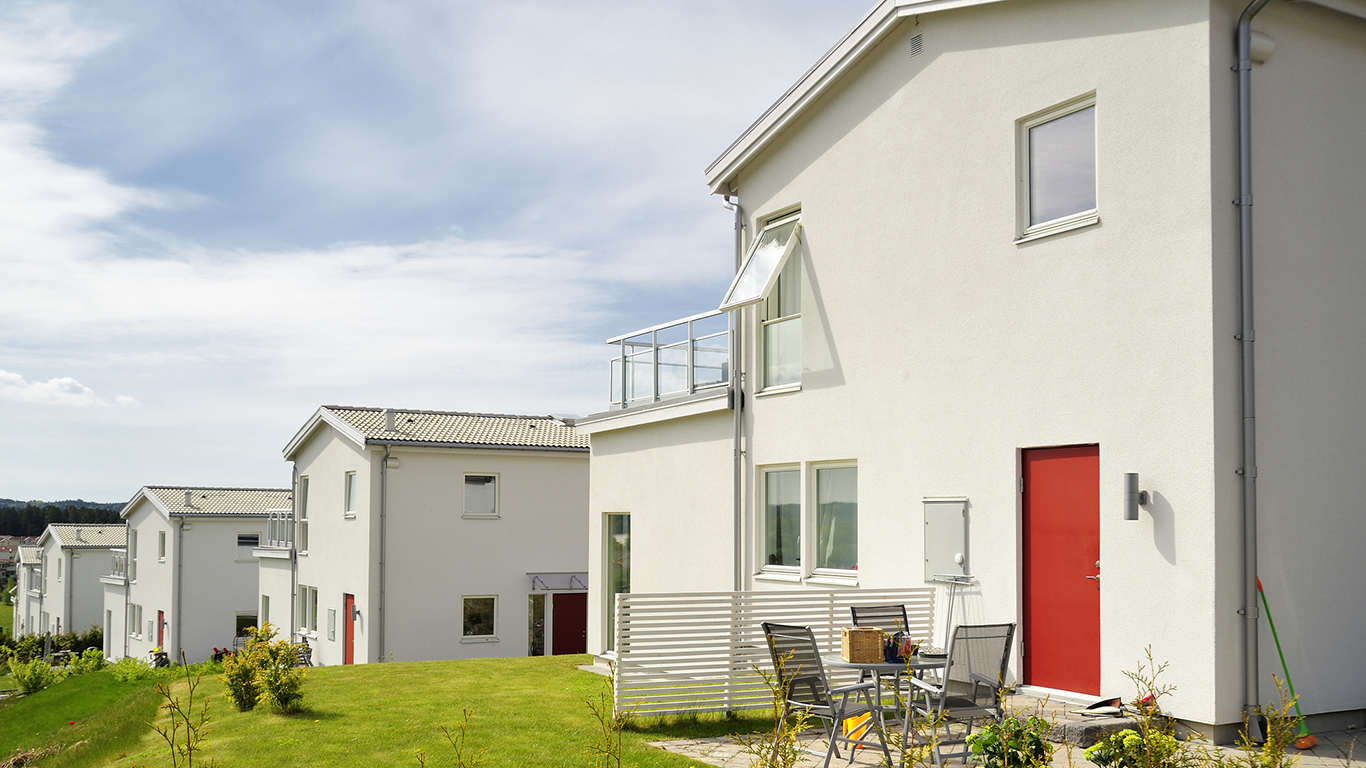
2013
Avg. floor area of a new single-family home: 2,598 sq. ft.
Avg. floor area per person: 1,023 sq. ft.
New homes started: 924,900
GDP per capita (inflation adjusted): $49,312

2014
Avg. floor area of a new single-family home: 2,657 sq. ft.
Avg. floor area per person: 1,046 sq. ft.
New homes started: 1,003,300
GDP per capita (inflation adjusted): $50,206
[in-text-ad-2]
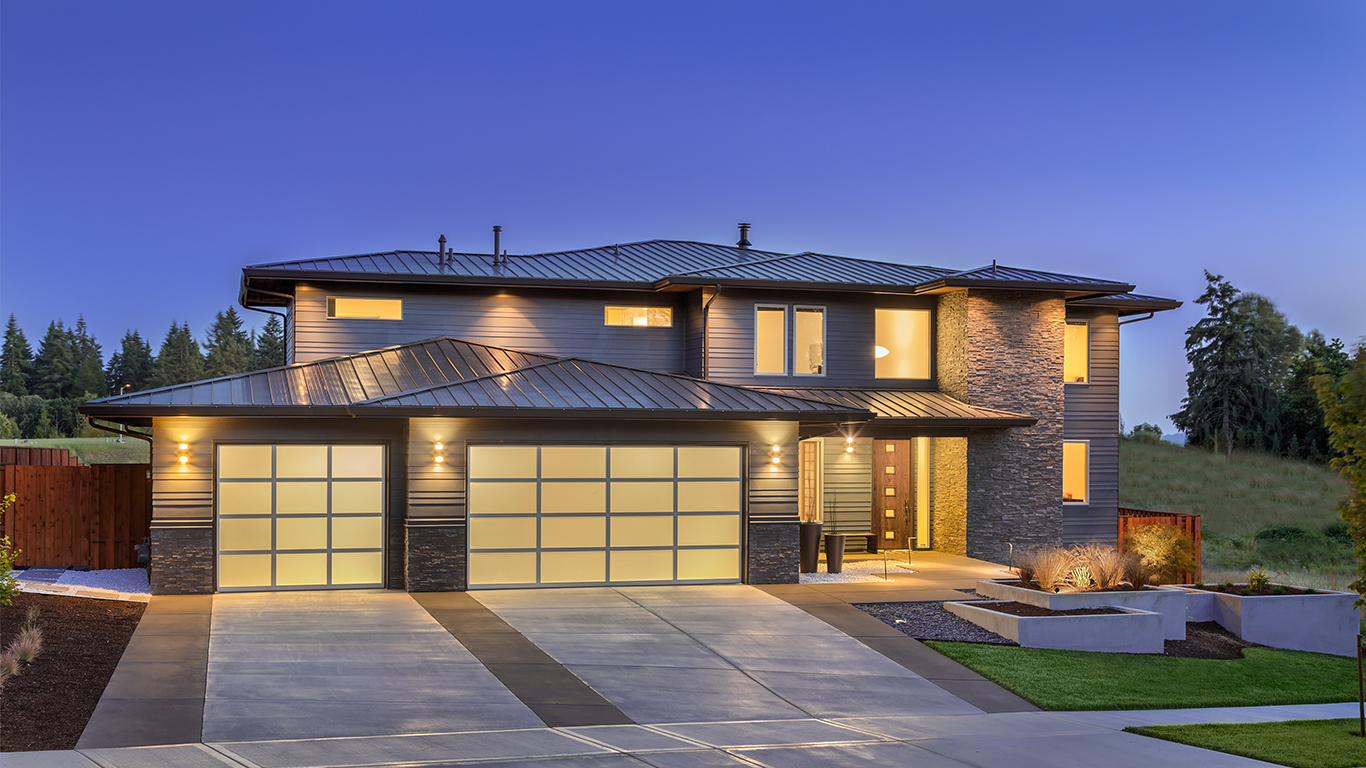
2015
Avg. floor area of a new single-family home: 2,687 sq. ft.
Avg. floor area per person: 1,058 sq. ft.
New homes started: 1,111,800
GDP per capita (inflation adjusted): $51,262
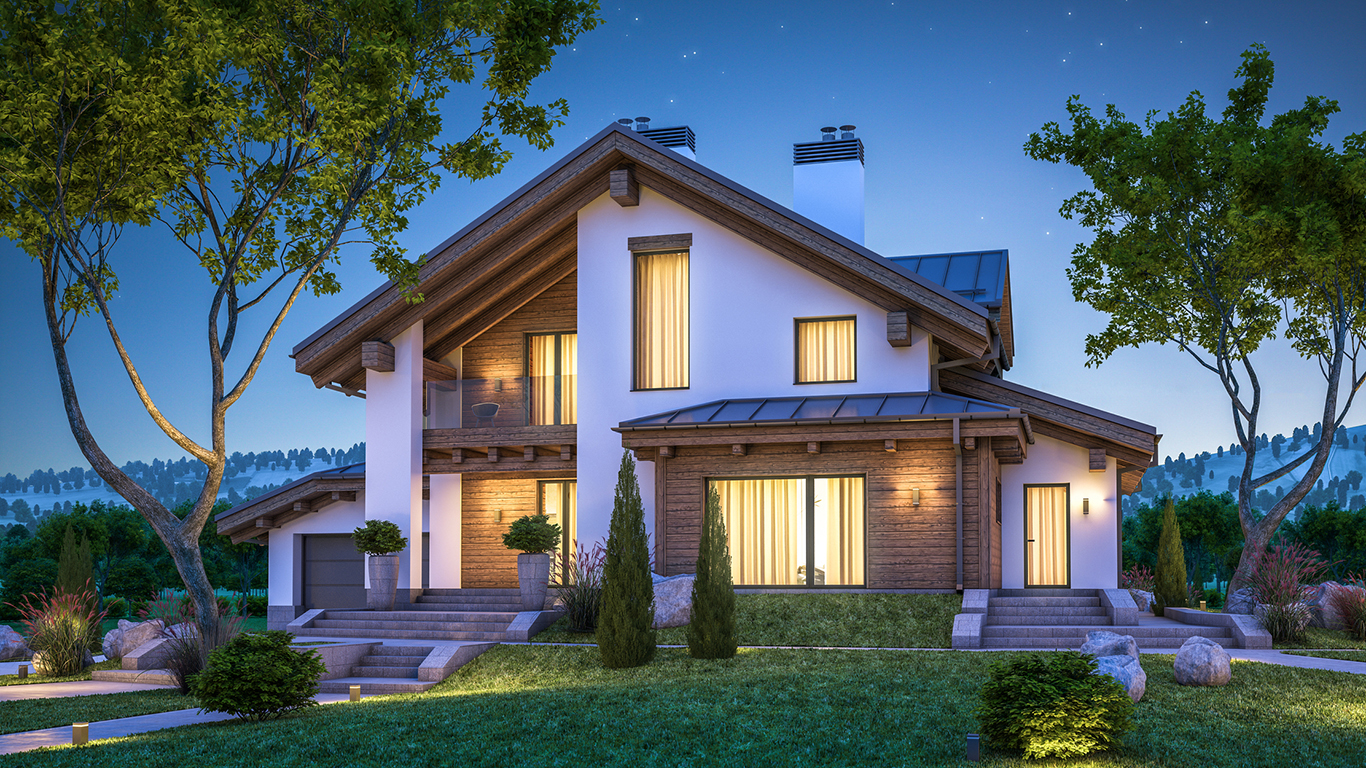
2016
Avg. floor area of a new single-family home: 2,640 sq. ft.
Avg. floor area per person: 1,039 sq. ft.
New homes started: 1,173,800
GDP per capita (inflation adjusted): $51,646
Detailed Findings
A number of factors, including the end of World War II, the G.I. bill, and the advent of the affordable family automobile, led to the rapid expansion of the American suburbs. Between 1945 and 1946, the number of new housing starts more than tripled, increasing from 326,000 to 1.02 million in just one year. The total value of construction grew accordingly, from $6.7 billion to $25.4 billion, adjusting for inflation.
The Levittown house was a popular model for a suburban home. At just 750 square feet, the homes were relatively inexpensive and ready for mass production. In 1950, the year Time magazine estimated that Levitt and Sons built one out of every eight houses in the United States, the average size of a newly built single-family home was 983 square feet — slightly smaller than a decade prior, when it was 1,177 square feet.
The 20th century was a period of economic growth and prosperity for the American consumer, as was the 21st century in the most part. With inflation-adjusted GDP per capita increasing from $10,164 in 1920 to $51,646 in 2016, Americans today are as wealthy as they’ve ever been. Home sizes have also increased, keeping pace with consumer demand. The average single-family home built today is 2,657 square feet — more than twice the average single-family home built in 1920.
Just 9.2% of the population lived in the suburbs in 1920. By 1950, that figure had more than doubled to 23.3%, and by 2000, half of all Americans lived in the suburbs. One of the largest 10-year growth periods in home size occurred between 1953 to 1963. During that decade alone, the average size of a new single-family home grew by nearly 60%.
Americans actually have more room than their rising home sizes suggests because as home sizes grew, the average number of occupants in a household has declined steadily — from 4.34 people in 1920 to 2.54 people today, a historical low. So while the size of an average home has more than doubled since 1920, the average square footage per person has more than quadrupled.
One major reason for the falling number of people in a household is the changing composition of the American family. Marriage rates are low, and many more children are growing up in one-parent households than ever before. The share of one-parent families with children under the age of 18 has grown from 7.4% of all families with children in 1950 to 31.3% in 2015. Similarly, more adults are living alone than ever before. The single-person occupancy rate increased from 7.7% in 1940 to 26.7% in 2010.
Methodology
To determine the average size of a newly constructed single-family home between 1971 and 2016, 24/7 Wall St. used survey data from the Census Bureau’s American Housing Survey. For the years 1963 and 1970 we used data from the Census Bureau’s U.S. Department of Housing and Urban Development’s 1969 “Characteristics of New One-Family Homes” construction report. For the years 1940, 1950, and 1954 to 1956, we used the Bureau of Labor Statistics New Housing and its Materials 1940-56 report. For all other years, we estimated the average size of a newly constructed home using construction data on residential housing starts and total residential floor space constructed in a given year from the Census Bureau’s annual “Statistical Abstracts of the United States” and its “Historical Statistics of the United States, Colonial Times to 1970” report. We took the quotient of total residential floor space and total residential housing starts and made adjustments to account for the inclusion of multi-family housing units and exclusion of various states in the national tally of total floor space constructed. We also adjusted housing starts to better approximate housing completions. Average household size also came from the Census Bureau. GDP per capita figures for years 1929 to 2016 are from the Bureau of Economic Analysis. GDP per capita figures for years 1920 to 1928, which were not available from the BEA, came from estimates by the Maddison Project.
After two decades of reviewing financial products I haven’t seen anything like this. Credit card companies are at war, handing out free rewards and benefits to win the best customers.
A good cash back card can be worth thousands of dollars a year in free money, not to mention other perks like travel, insurance, and access to fancy lounges.
Our top pick today pays up to 5% cash back, a $200 bonus on top, and $0 annual fee. Click here to apply before they stop offering rewards this generous.
Flywheel Publishing has partnered with CardRatings for our coverage of credit card products. Flywheel Publishing and CardRatings may receive a commission from card issuers.
Thank you for reading! Have some feedback for us?
Contact the 24/7 Wall St. editorial team.